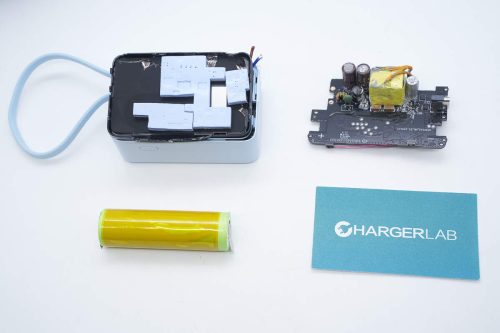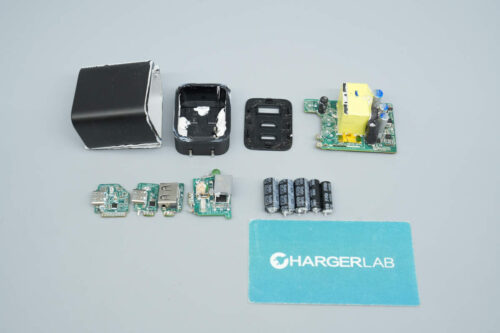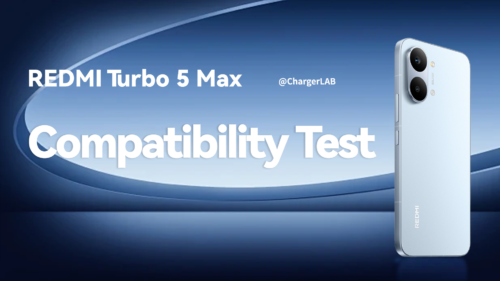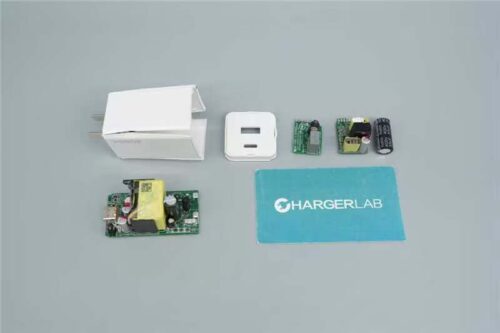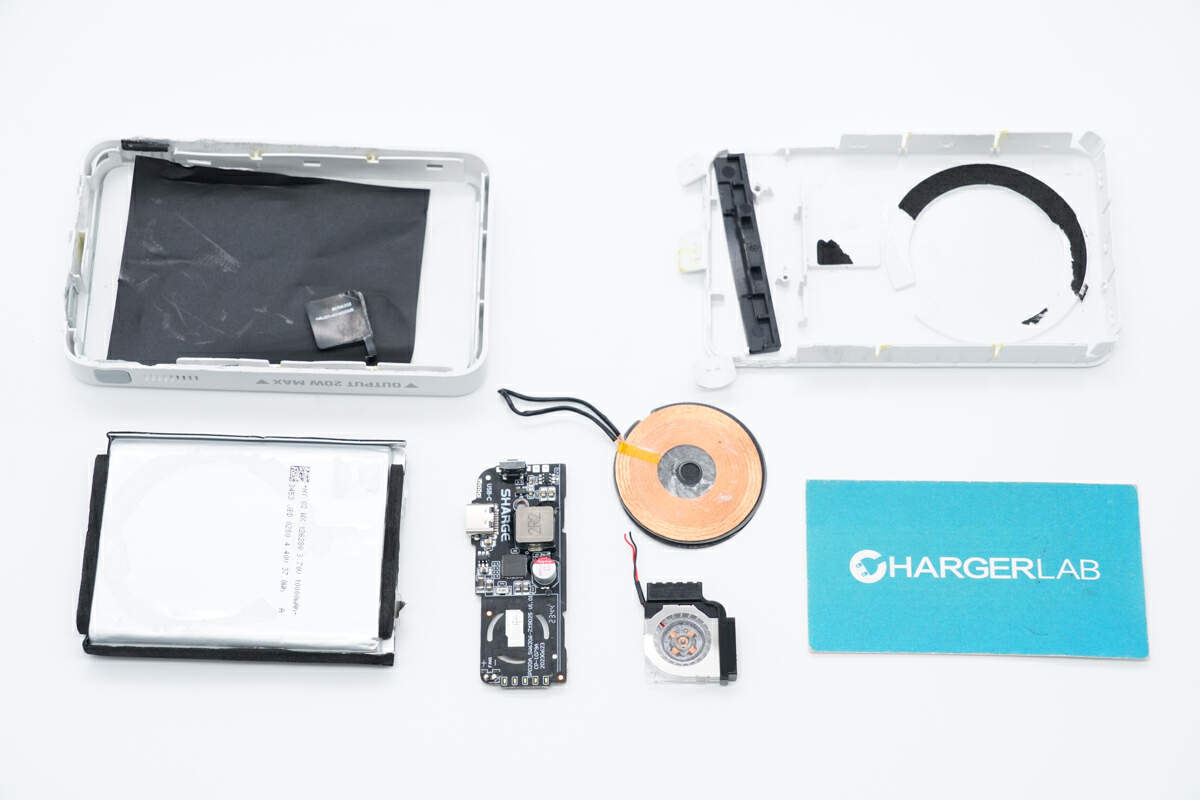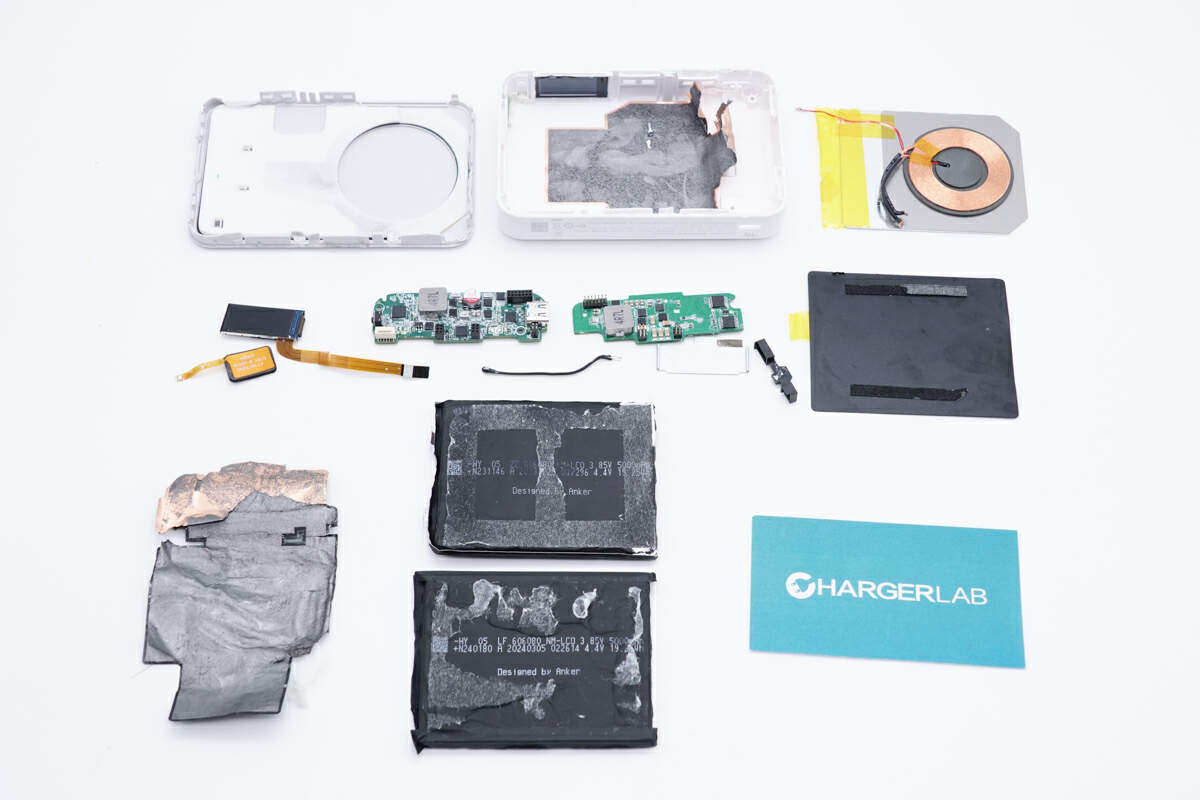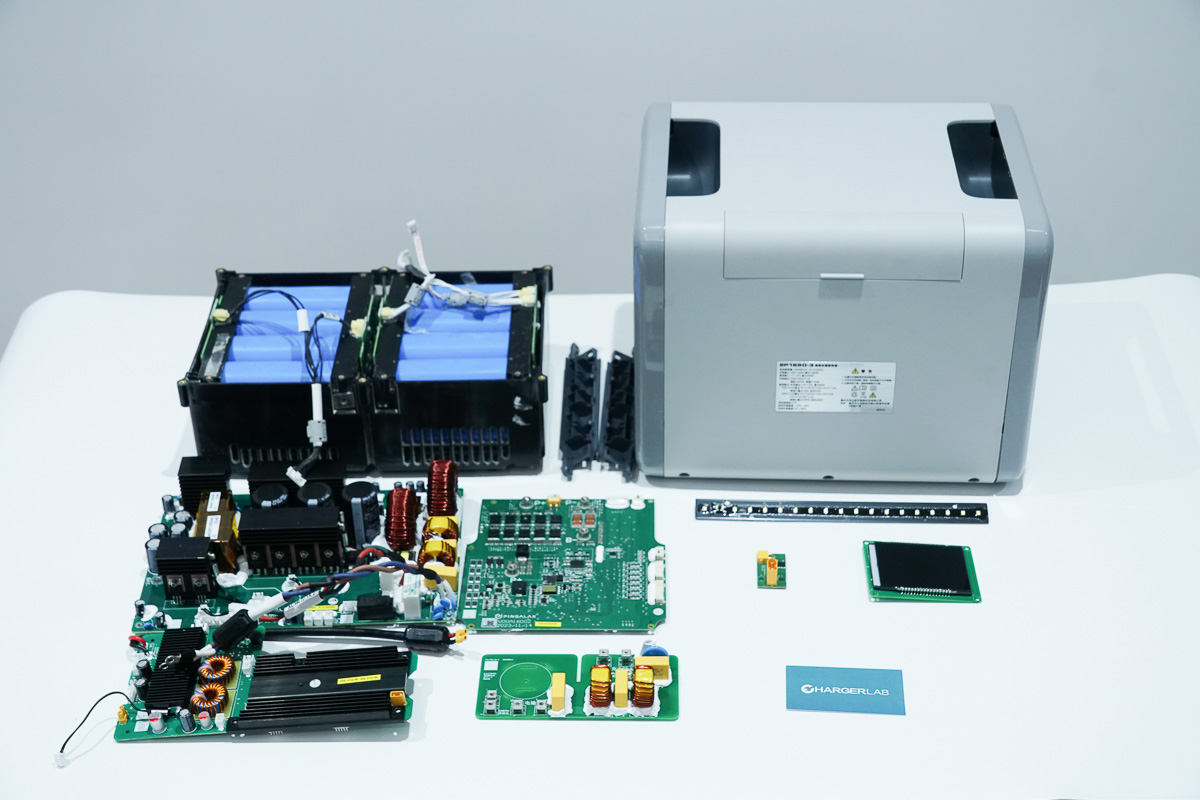Introduction
This time, we bring you a teardown of the Xiaomi 3-in-1 power bank. It combines a charger, power bank, and an integrated cable all in one. The battery capacity is 5000mAh. It features a digital display that lets you check the remaining power at any time. It supports Xiaomi's proprietary fast charging at 33W and 22.5W.
Next, let’s take it apart to see its internal components and structure.
Product Appearance
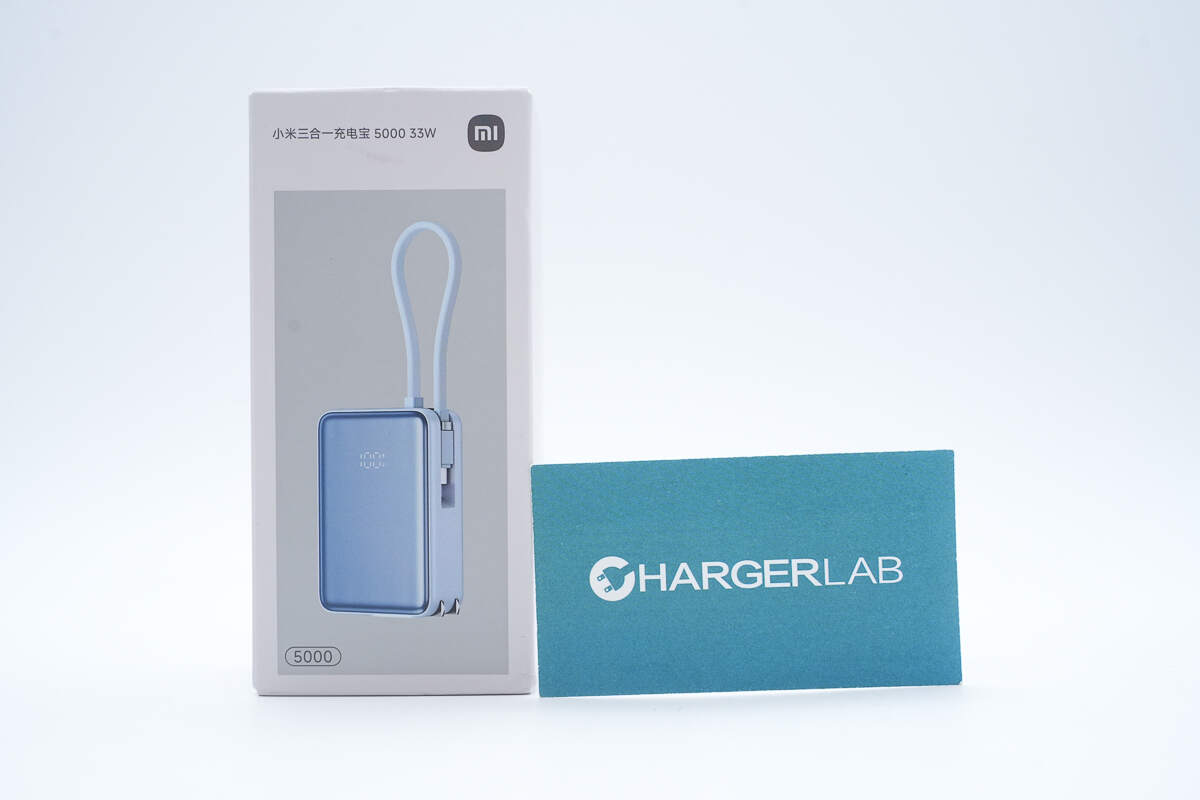
The front of the packaging box features the Xiaomi logo, the product name, and an image of the device.
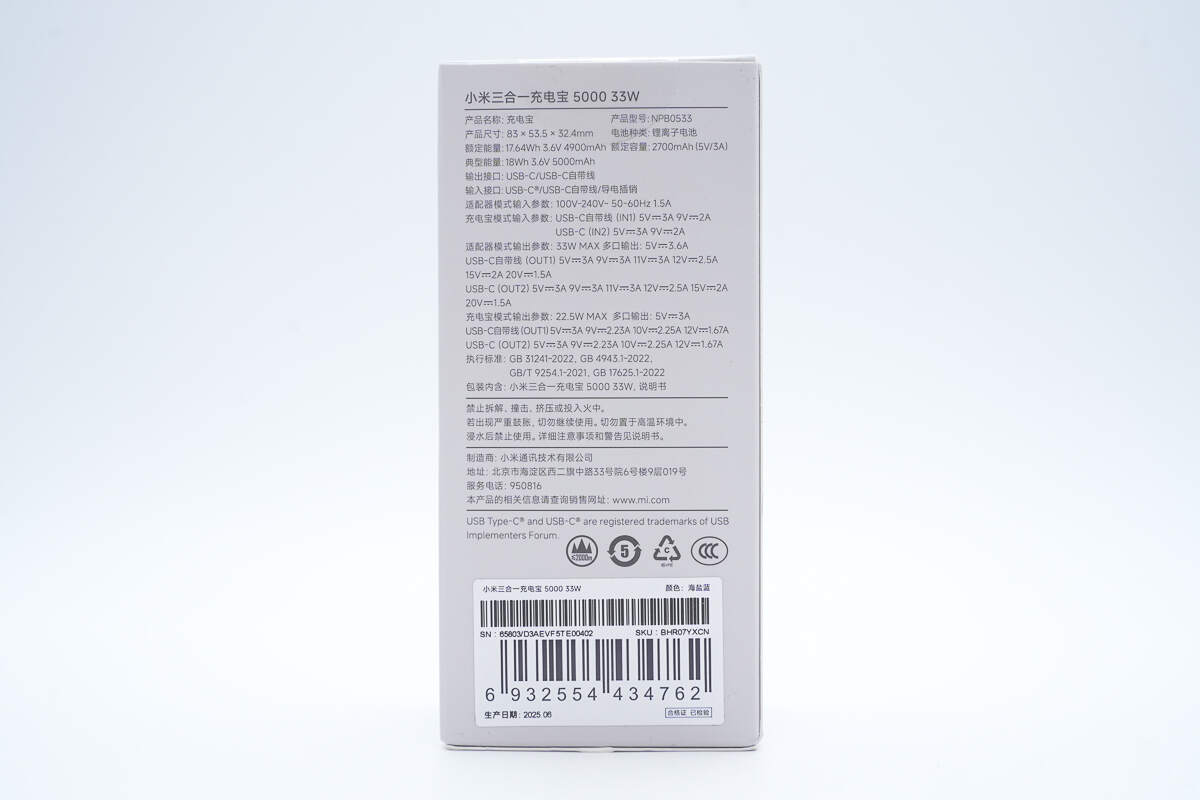
The back of the packaging displays the specifications.
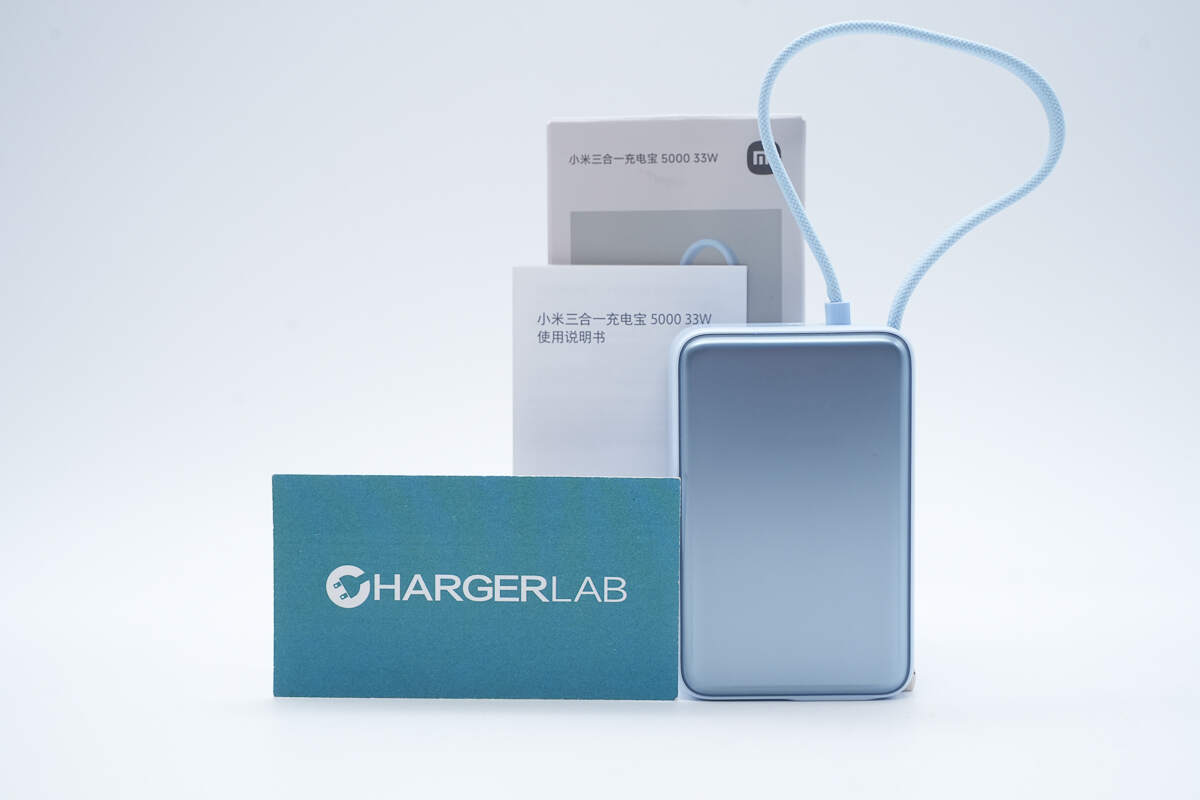
The package includes the power bank and some documents.
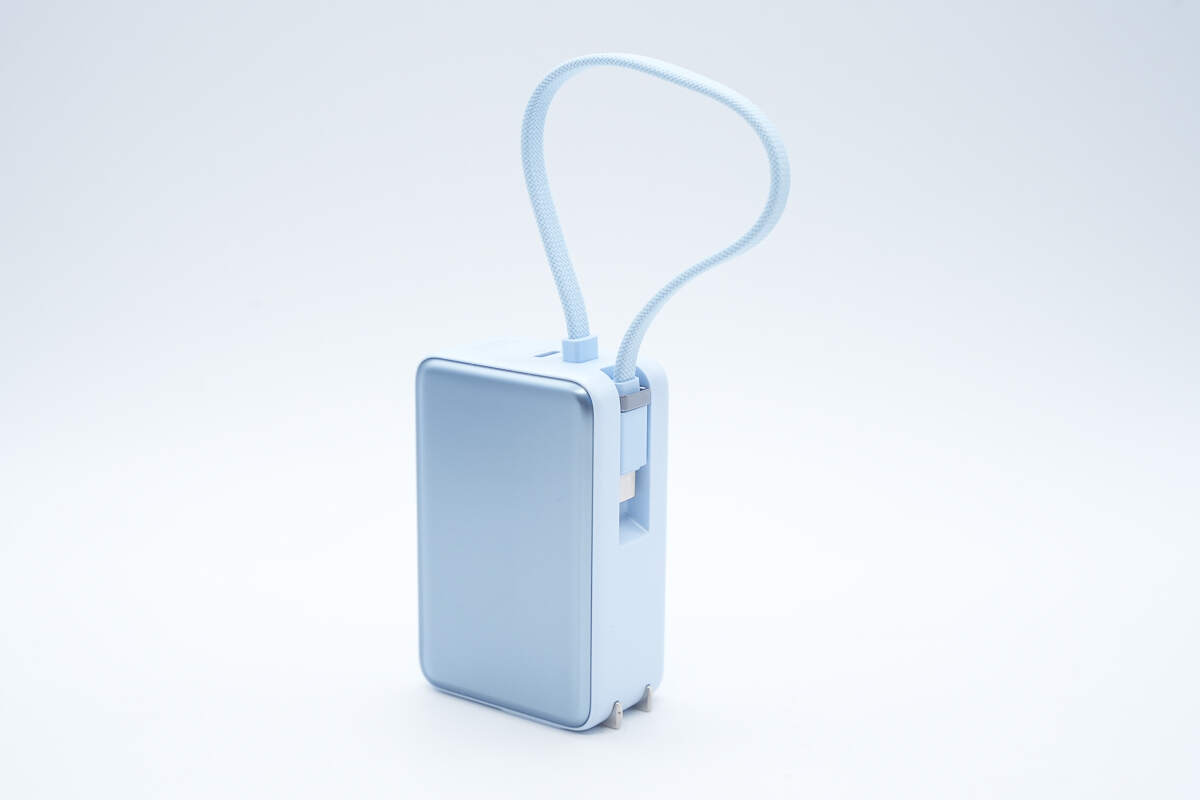
The design style is minimalist, with a compact body and a sandblasted finish on the front.
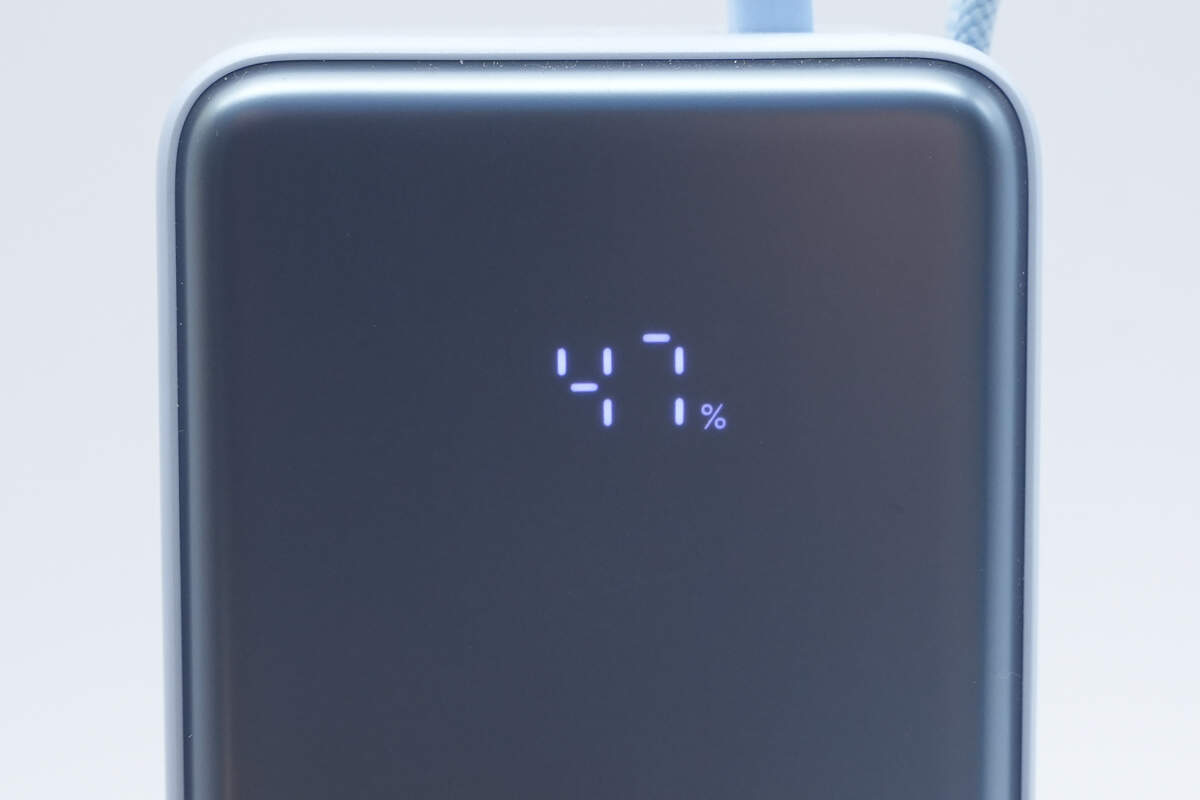
There is a digital display on the front that shows the remaining battery level.
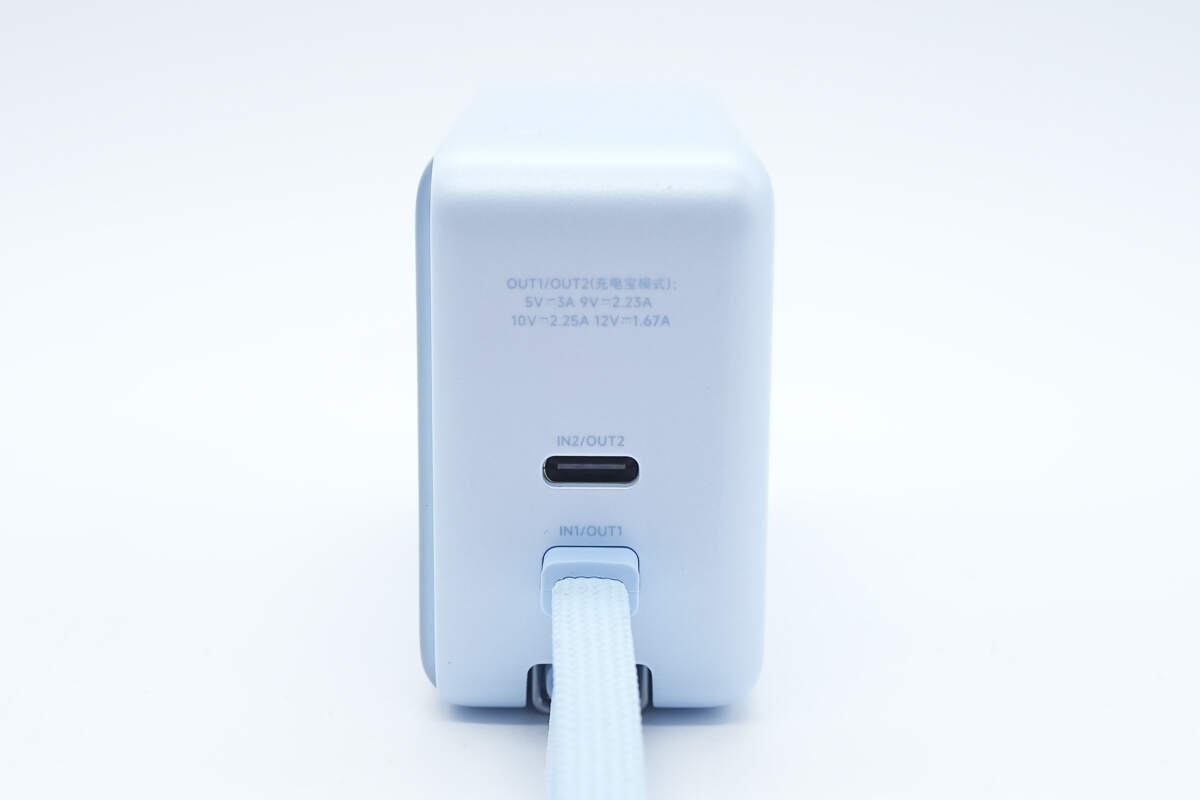
The top features a USB-C port and an integrated USB-C cable.
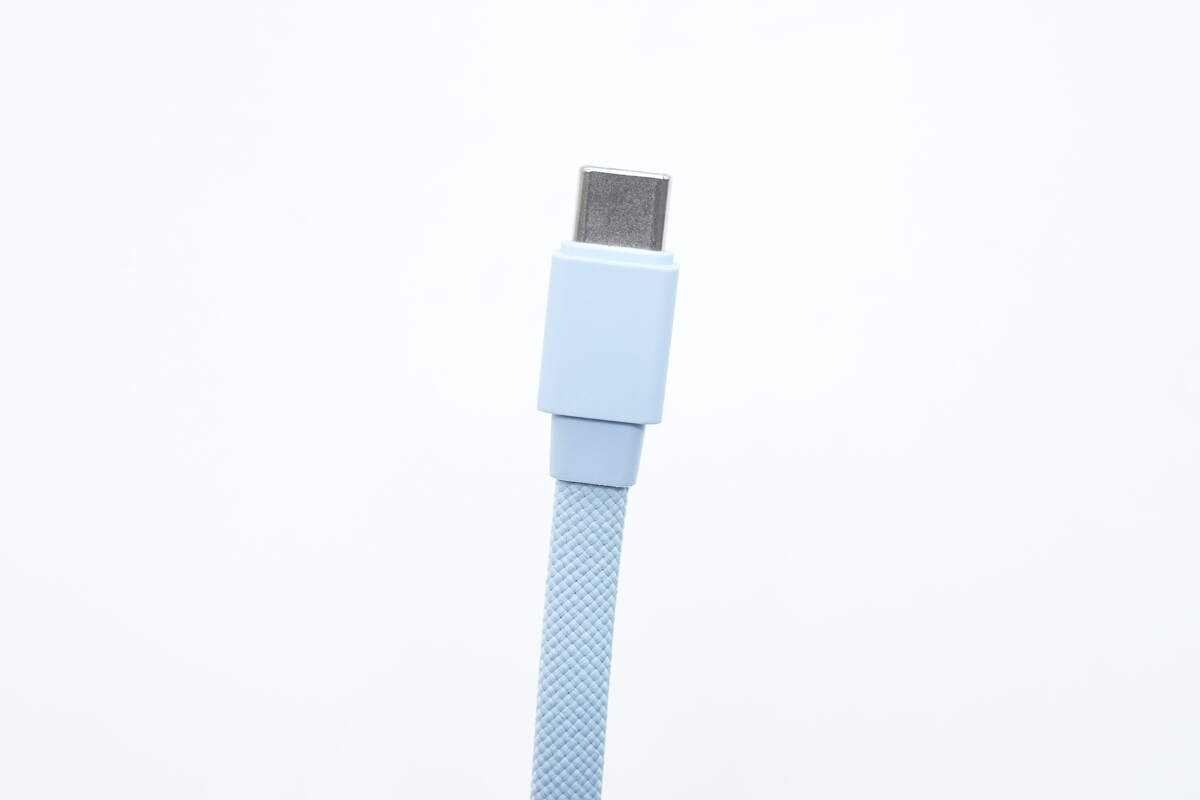
The USB-C cable is braided, making it more durable.
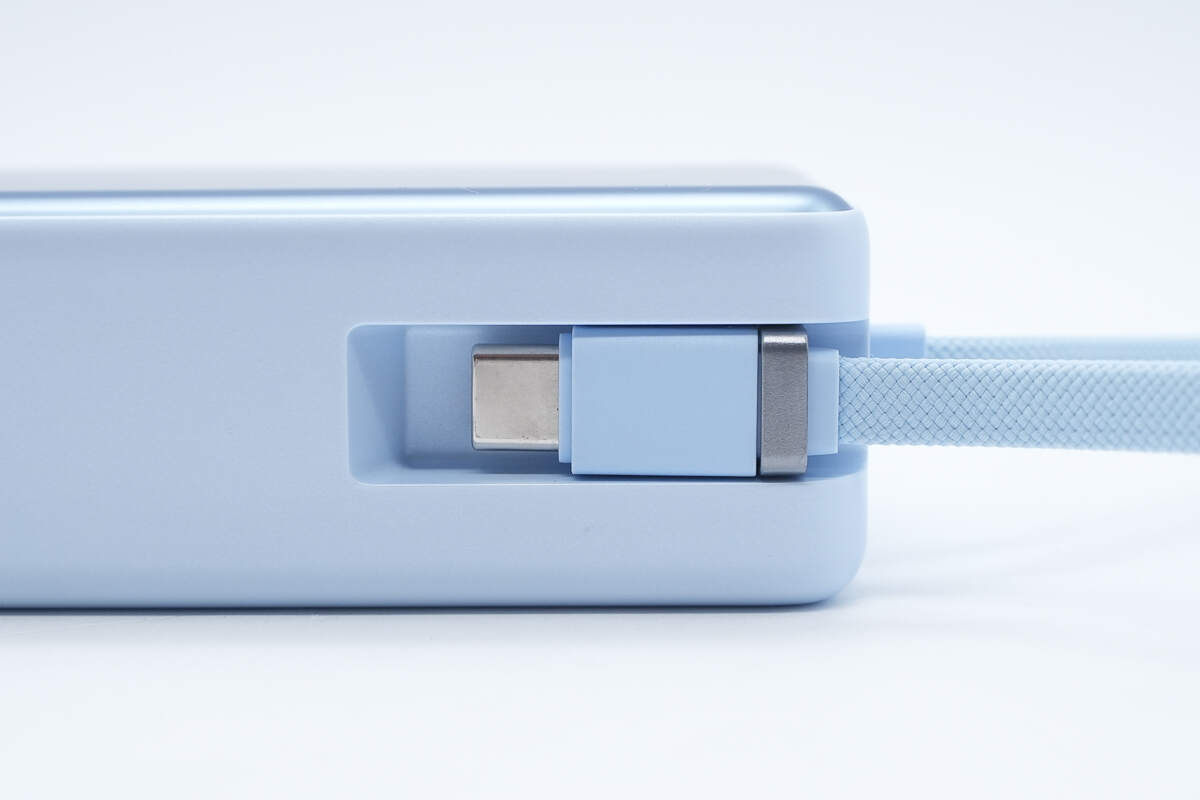
The side has a metal latch and a storage groove to secure the cable.
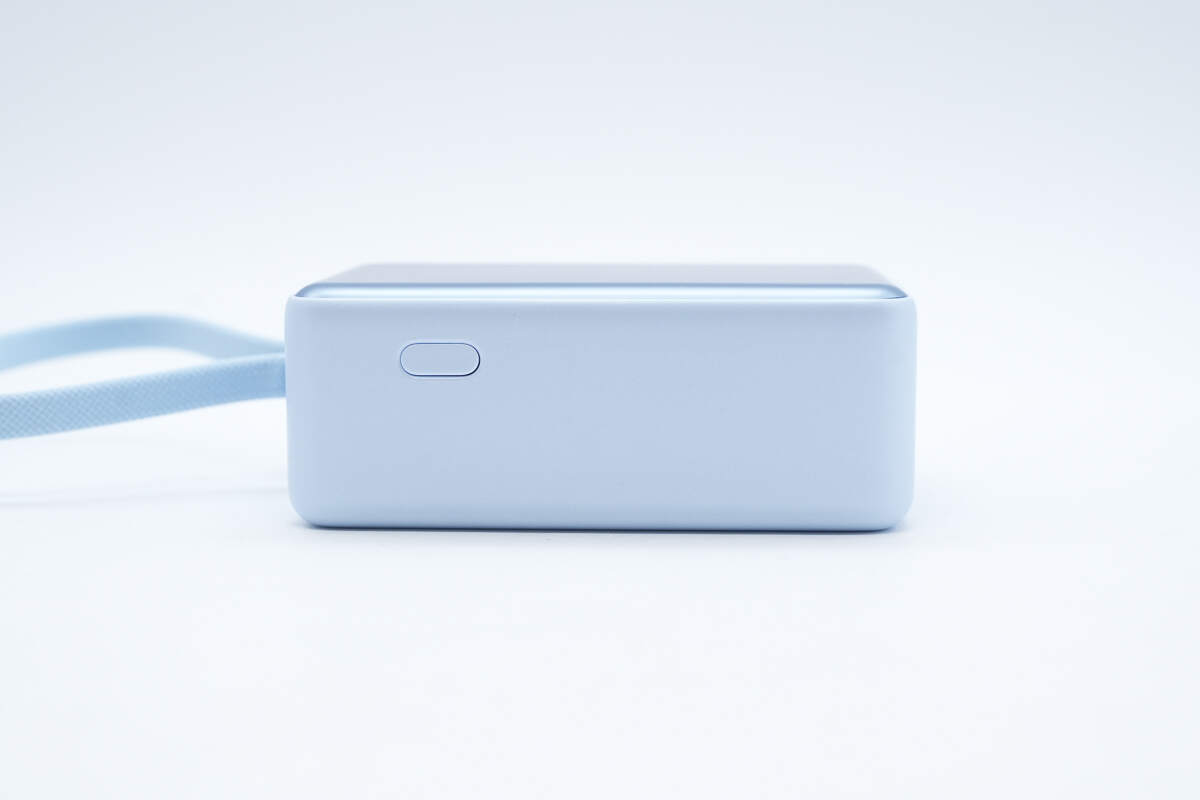
On the other side, there is a power button.
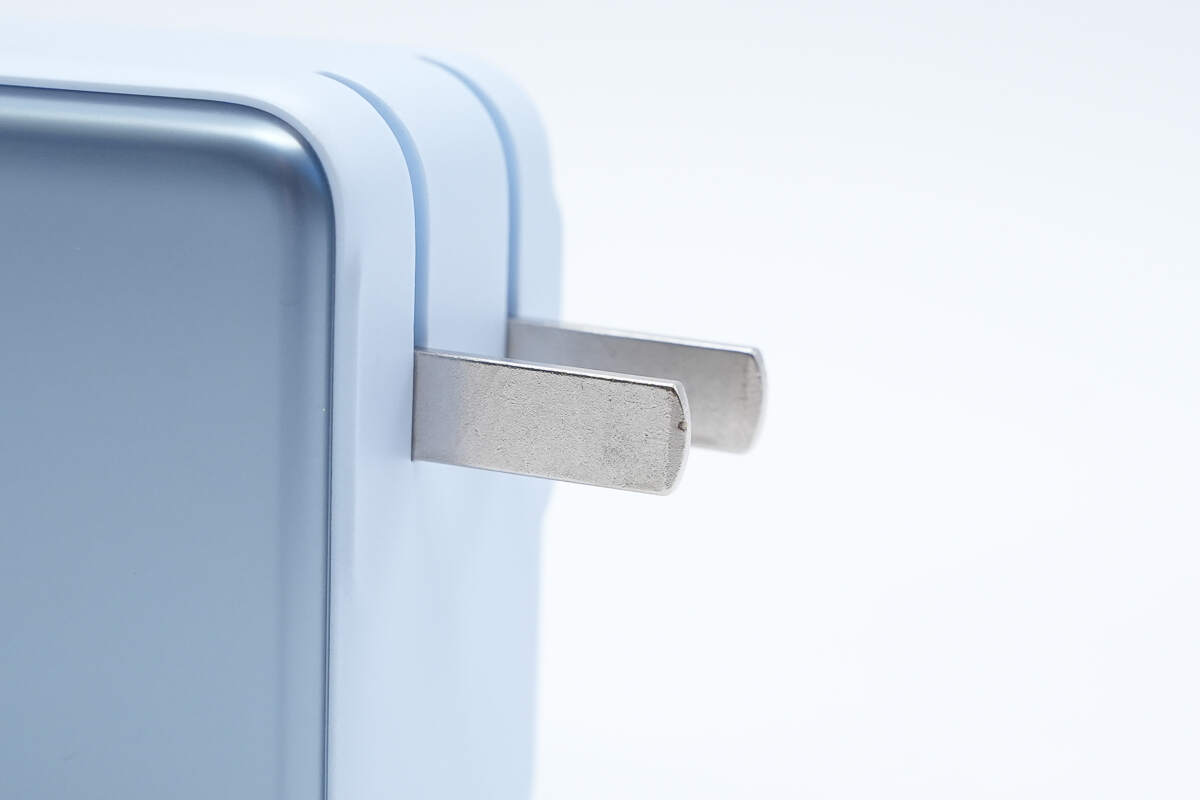
It is equipped with foldable plug pins.
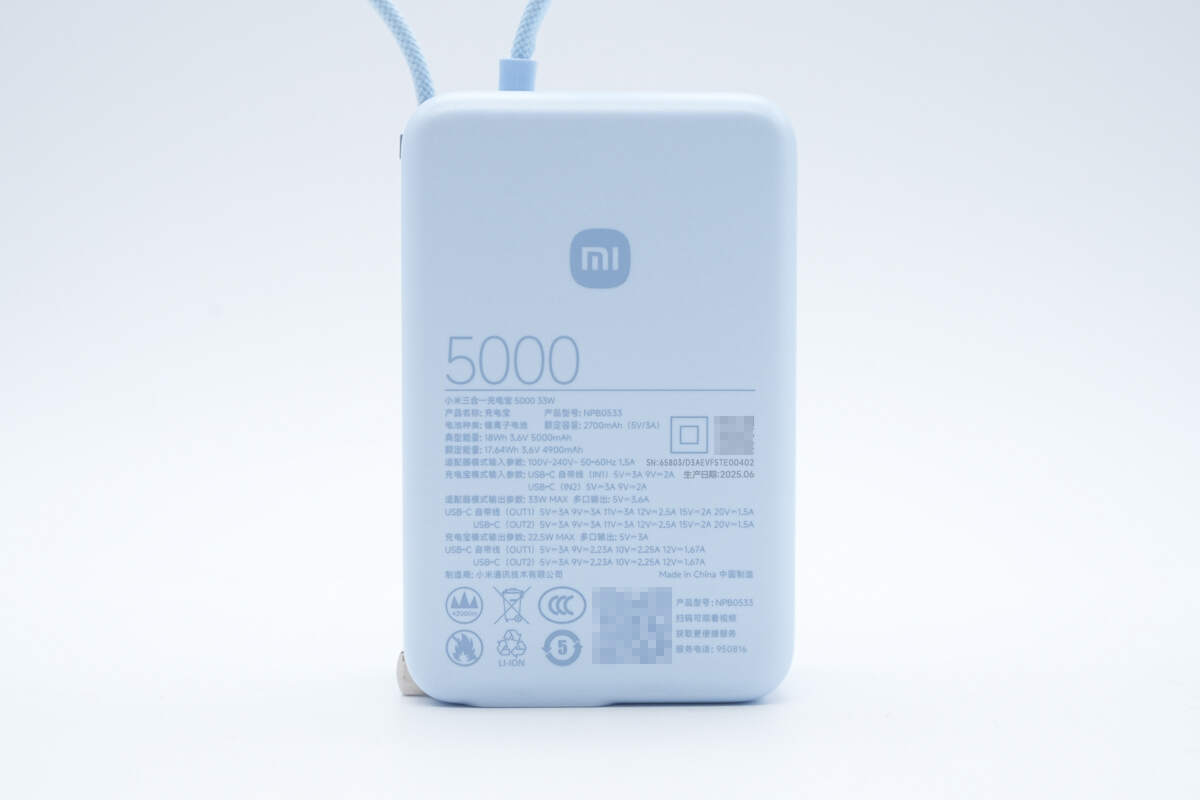
The spec info is printed on the back.
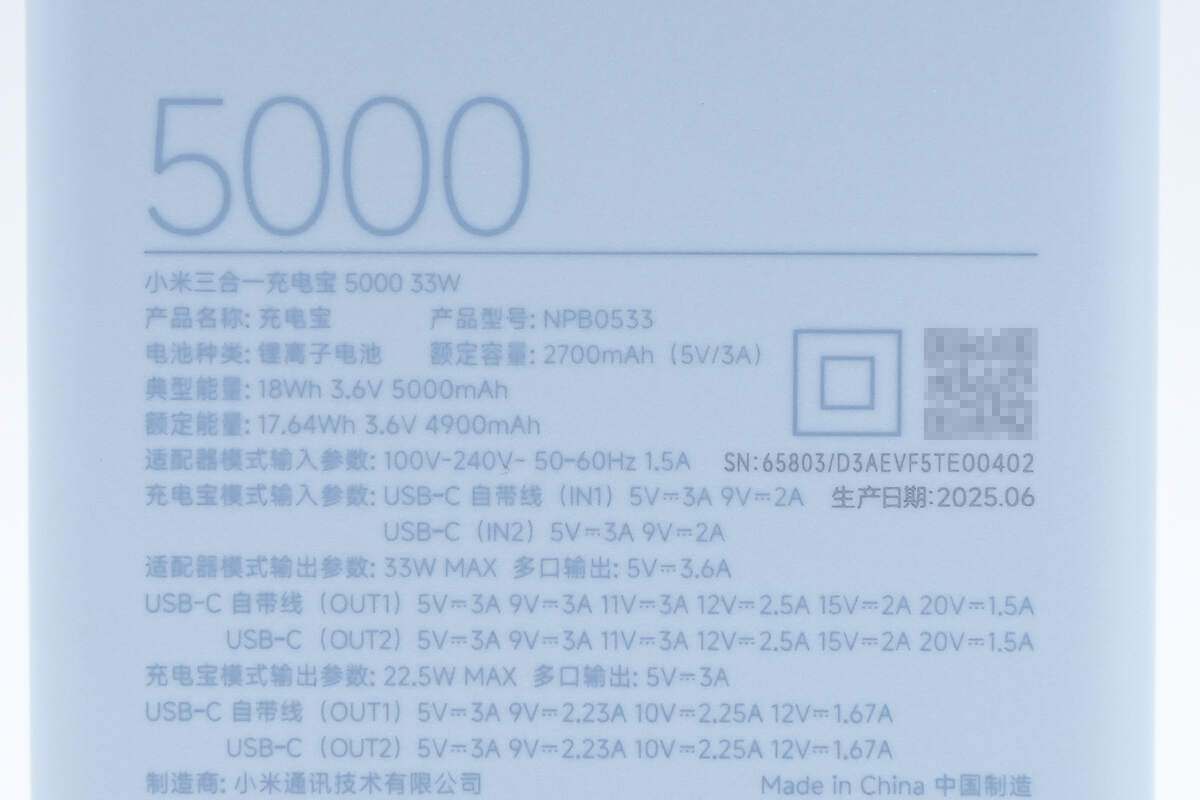
Model: NPB0533
Battery type: Lithium-ion battery
Rated capacity: 2700mAh (5V3A)
Typical energy: 18Wh 3.6V 5000mAh
Rated energy: 17.64Wh 3.6V 4900mAh
Adapter mode input parameters: 100-240V\~50/60Hz 1.5A
Adapter mode output parameters: 33W MAX
Multi-port output: 5V 3.6A
USB-C built-in cable: 5V 3A, 9V 3A, 11V 3A, 12V 2.5A, 15V 2A, 20V 1.5A
USB-C: 5V 3A, 9V 3A, 11V 3A, 12V 2.5A, 15V 2A, 20V 1.5A
Power bank mode input parameters:
USB-C built-in cable: 5V 3A, 9V 2A
USB-C: 5V 3A, 9V 2A
Power bank mode output parameters: 22.5W MAX
Multi-port output: 5V 3A
USB-C built-in cable: 5V 3A, 9V 2.23A, 10V 2.25A, 12V 1.67A
USB-C: 5V 3A, 9V 2.23A, 10V 2.25A, 12V 1.67A
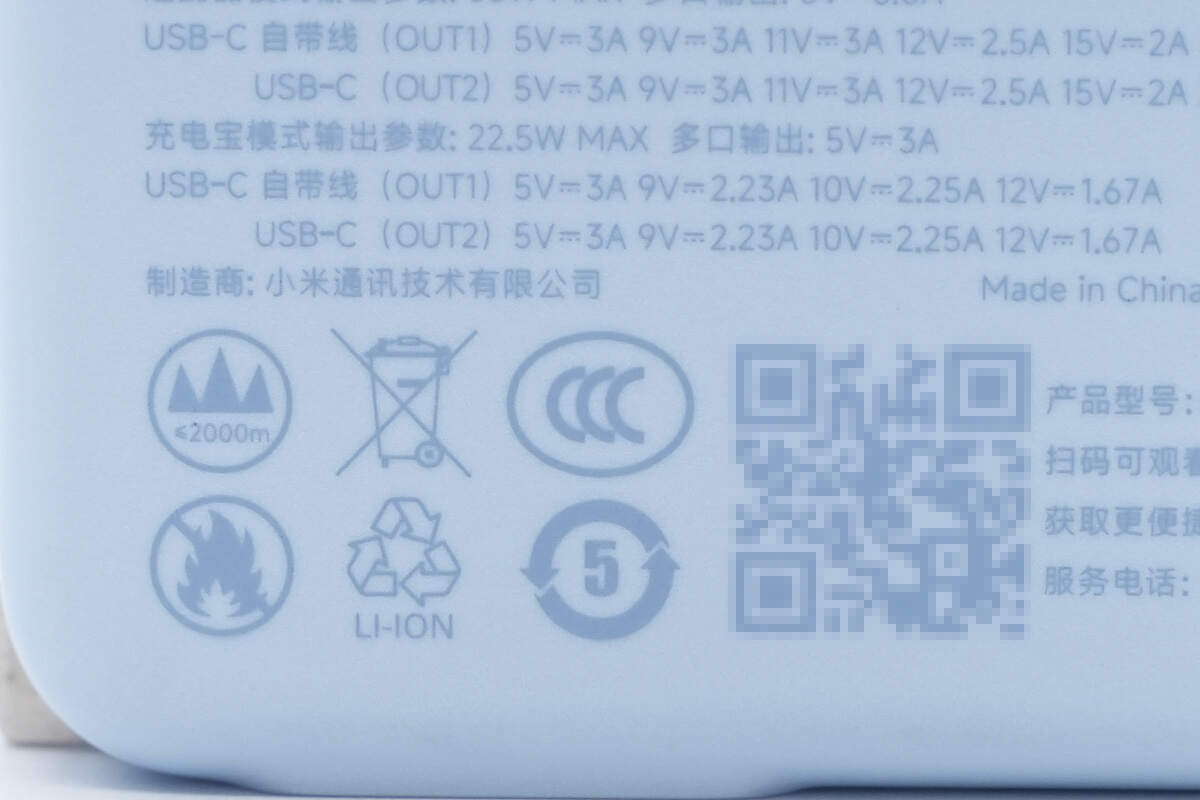
It has passed the CCC certification.
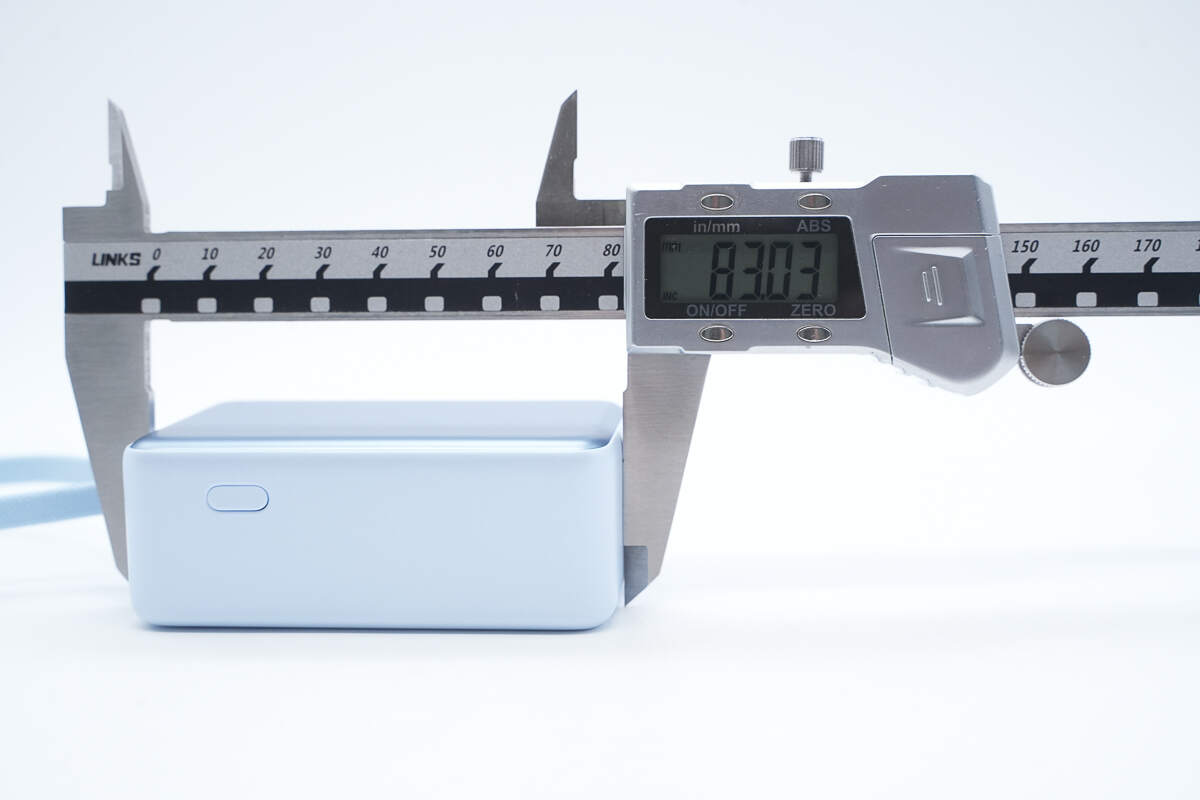
The length of the power bank is about 83.03 mm (3.27 inches).
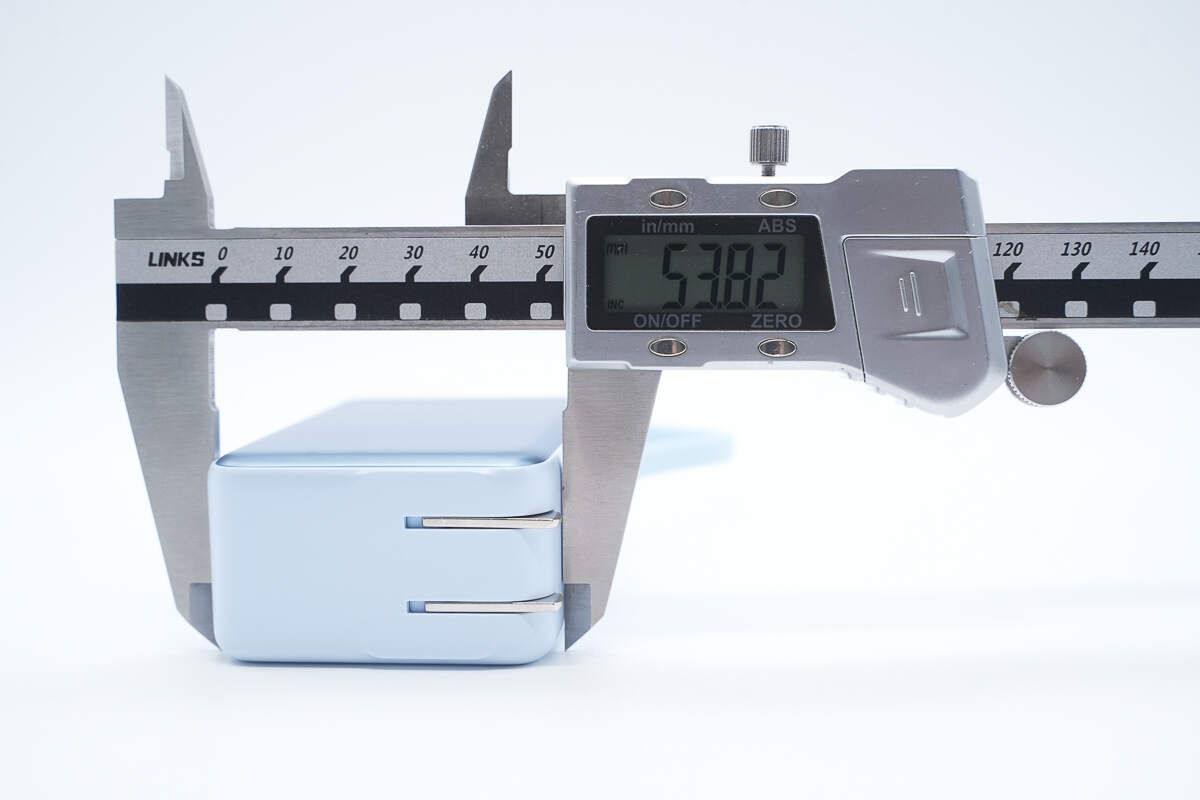
The width is about 53.82 mm (2.12 inches).
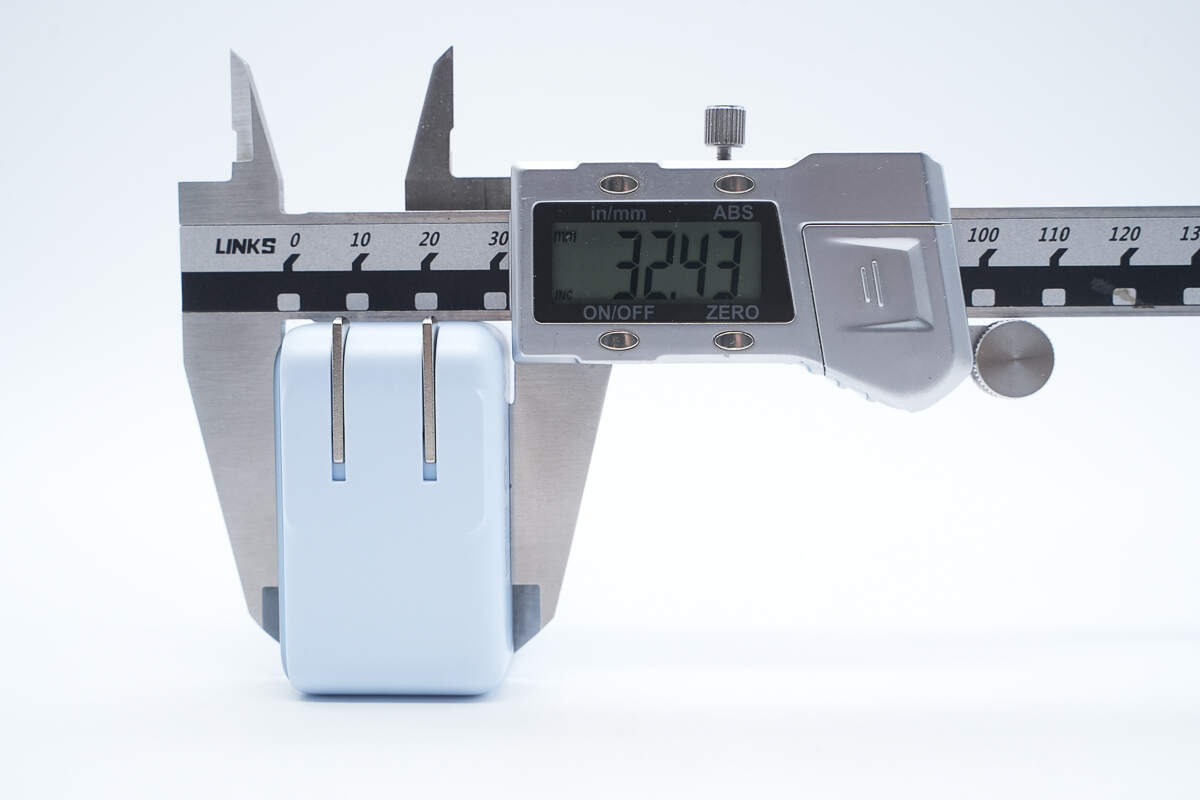
The thickness is about 32.43 mm (1.28 inches).
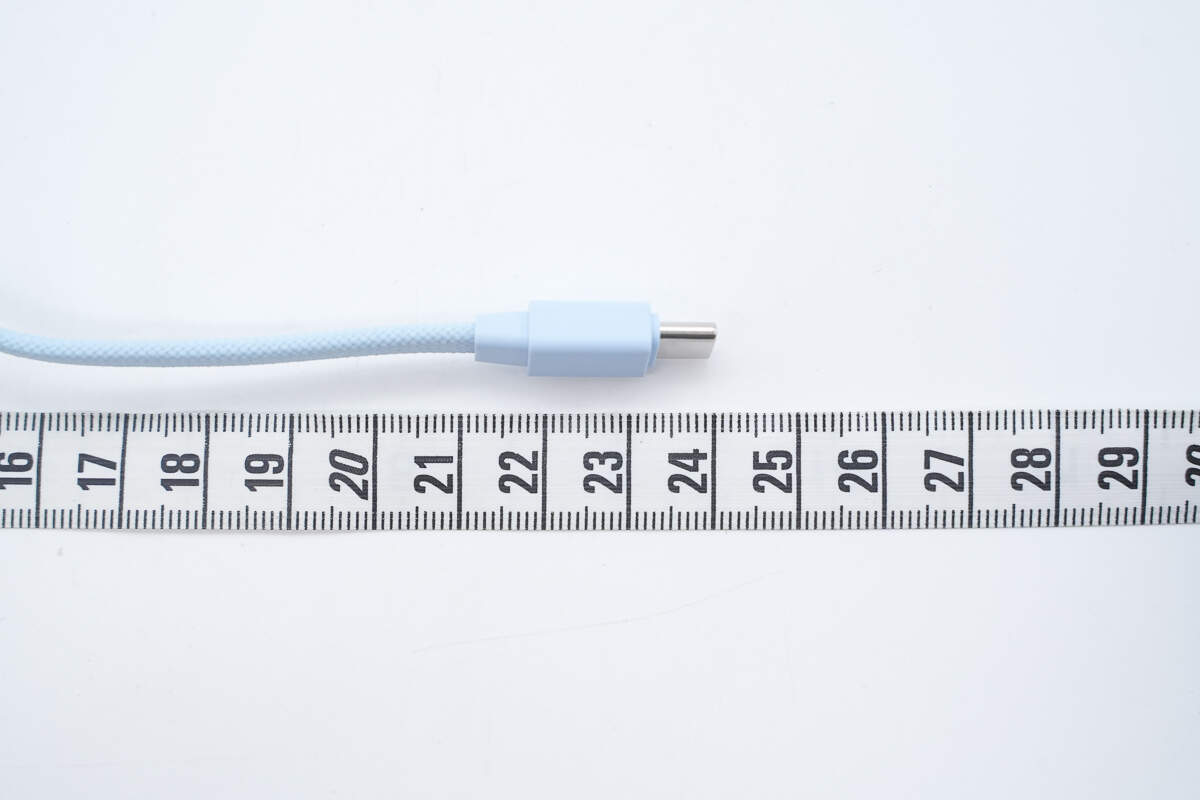
The length of the cable is about 24 cm (9.45 inches).
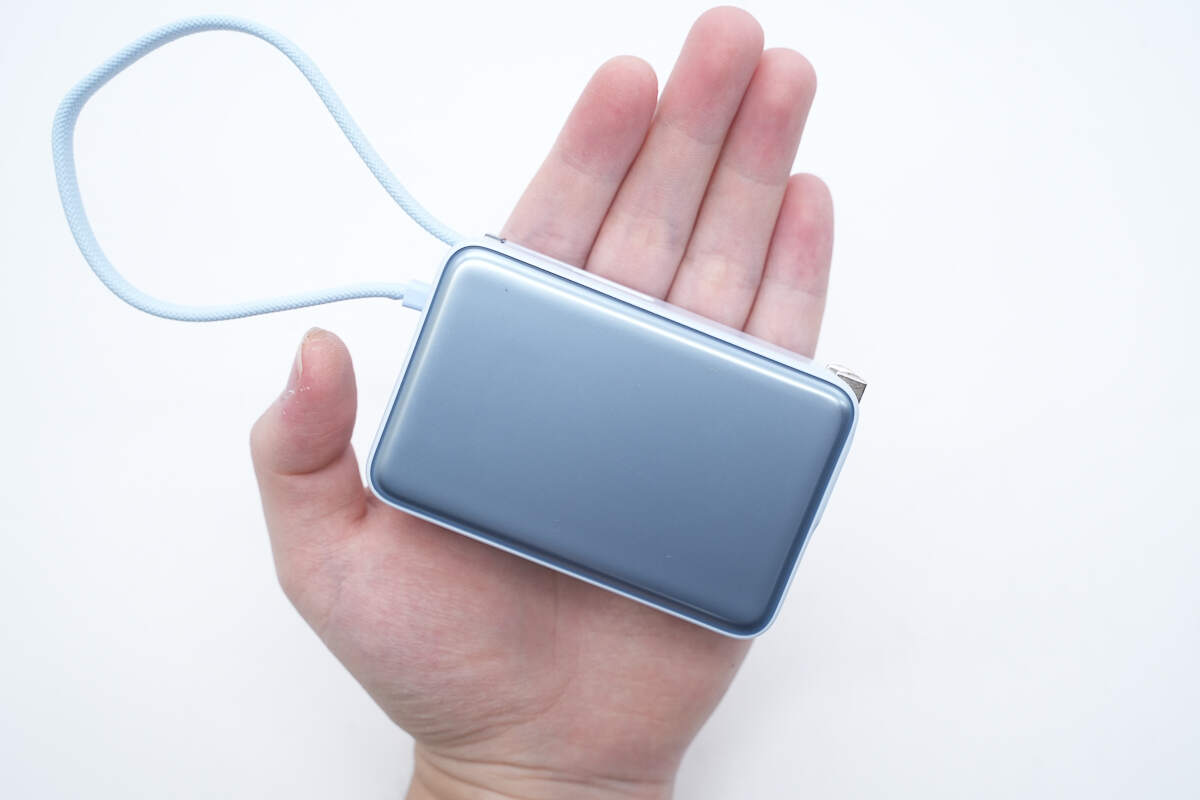
That's how big it is in the hand.
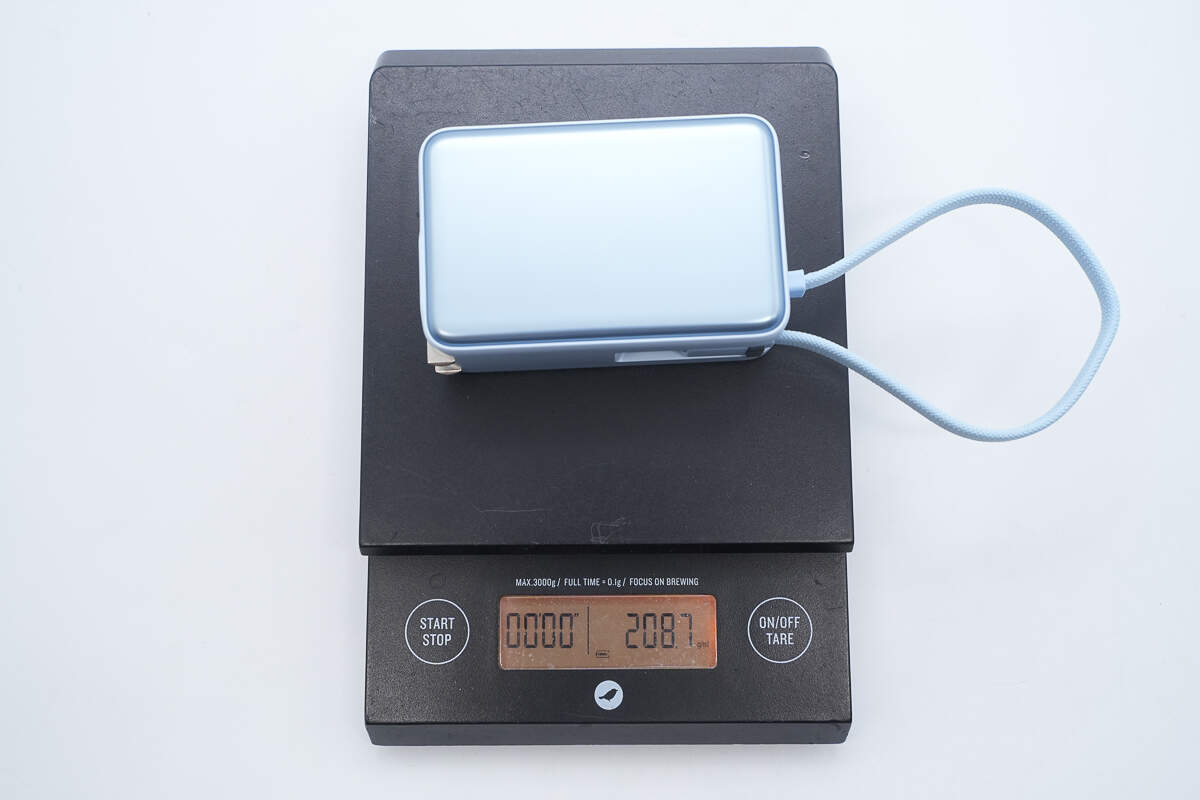
The weight is about 209 g (7.37 oz).
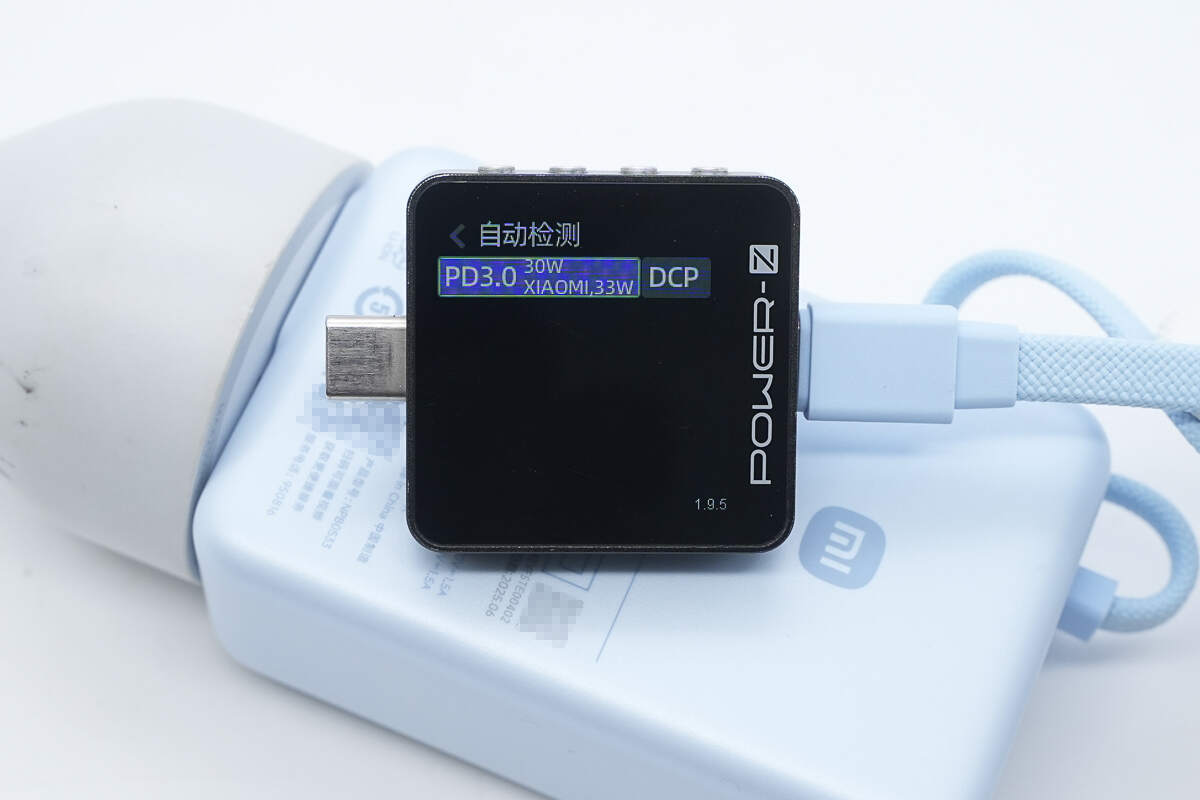
In charger mode, the USB-C cable output supports PD3.0, DCP charging protocols, as well as Xiaomi’s proprietary 33W protocol.
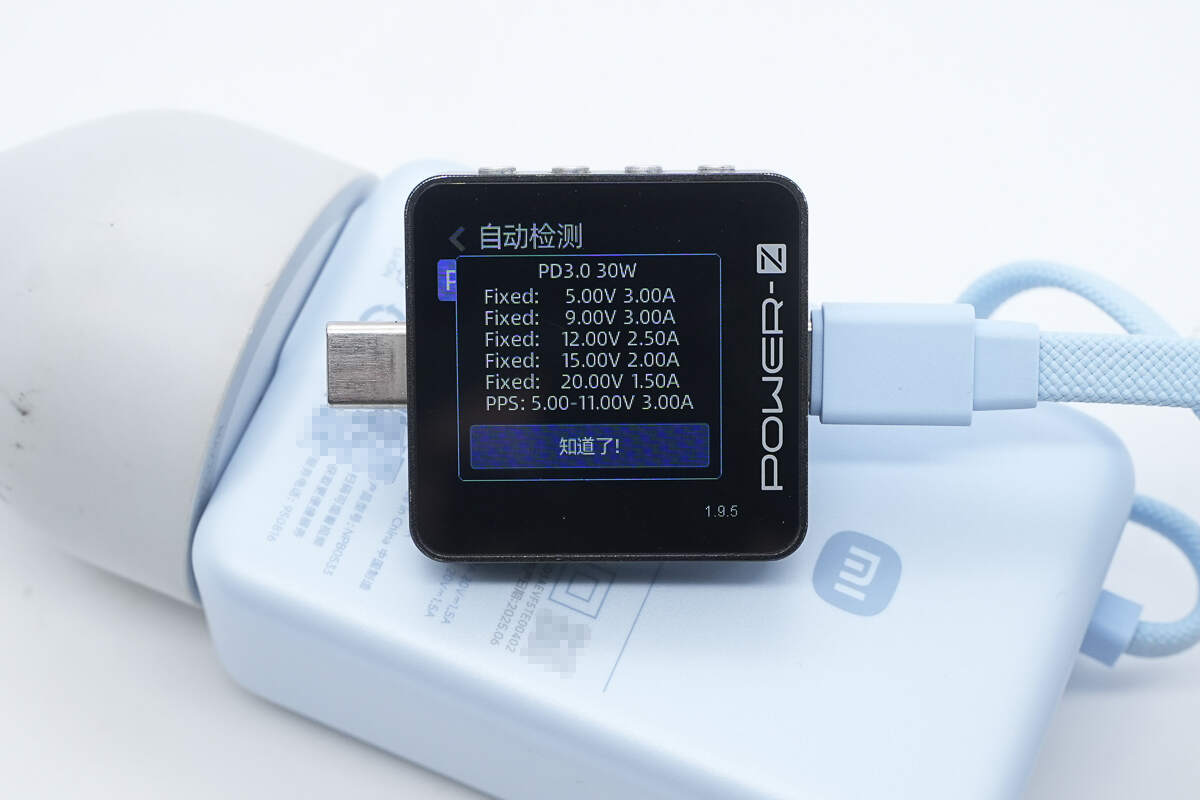
And it has five fixed PDOs of 5V3A, 9V3A, 12V2.5A, 15V2A, and 20V1.5A, as well as one Xiaomi proprietary voltage range of 5-11V3A.
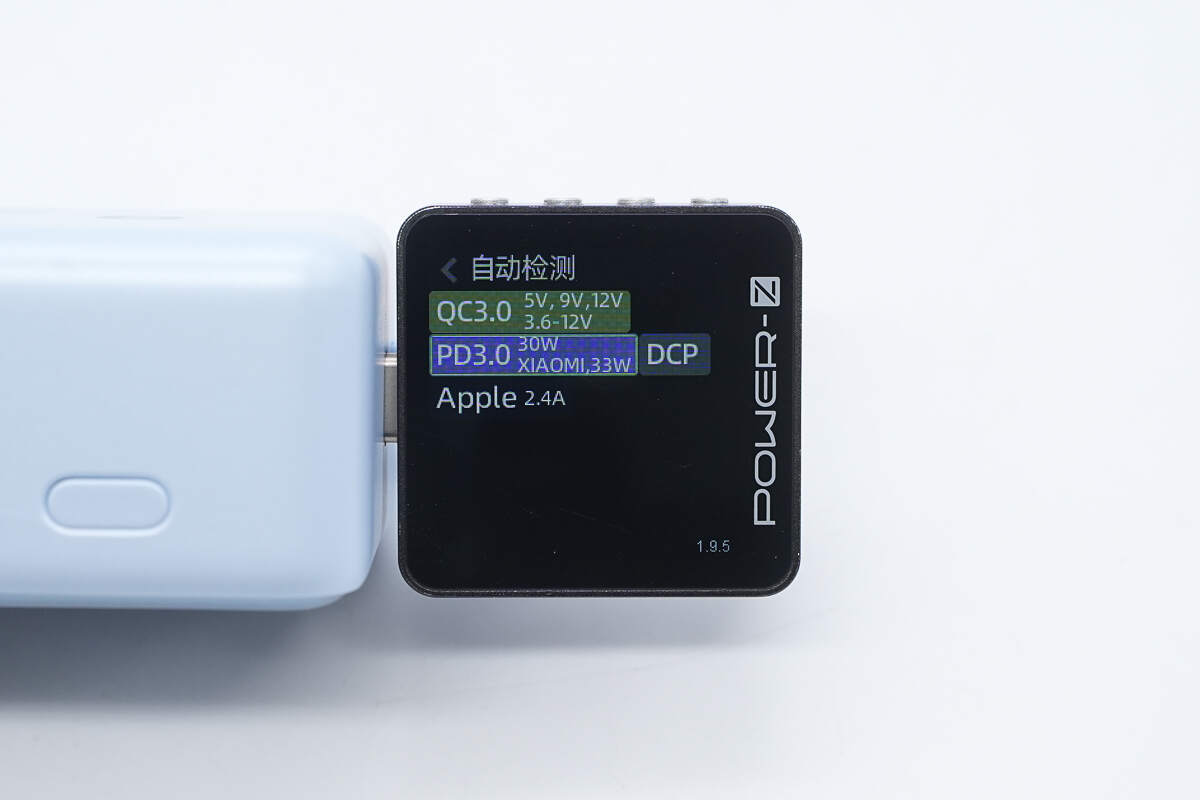
The USB-C port supports QC3.0, PD3.0, DCP, and Apple 2.4A charging protocols, as well as Xiaomi’s 33W proprietary protocol.
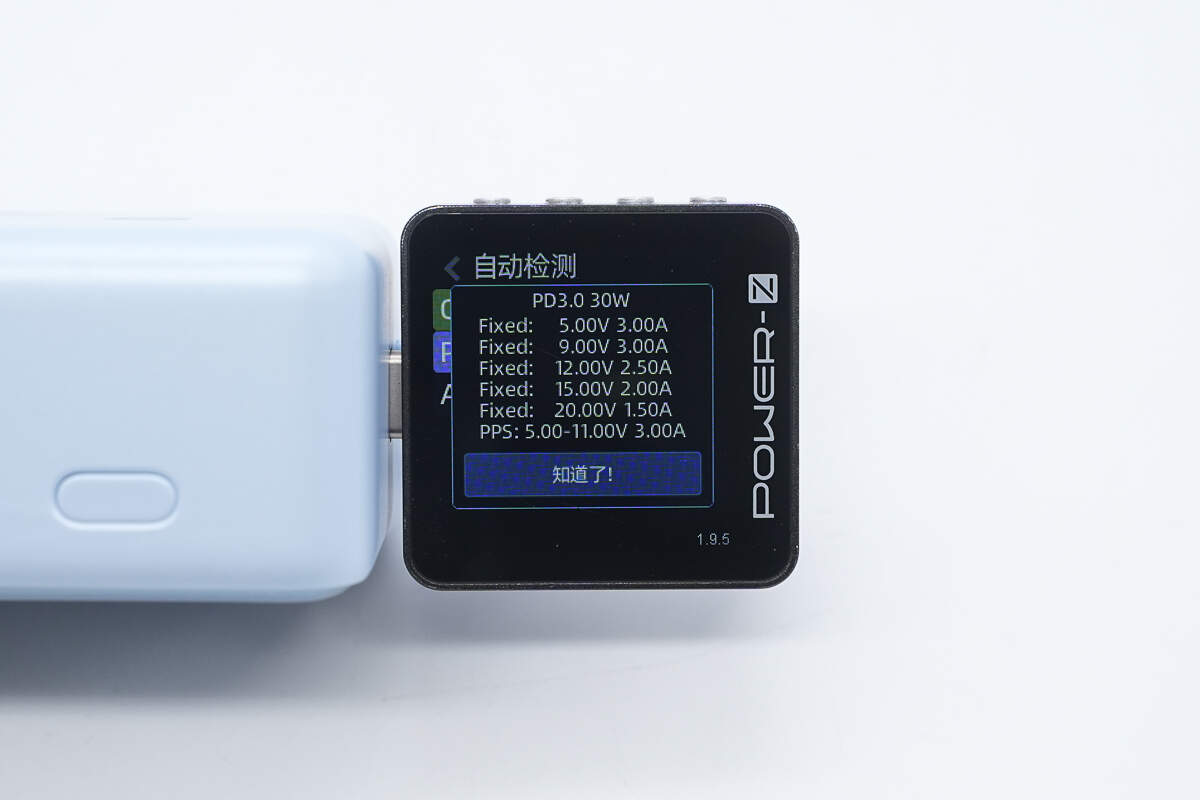
And it has five fixed PDOs of 5V3A, 9V3A, 12V2.5A, 15V2A, and 20V1.5A, as well as one Xiaomi proprietary voltage range of 5-11V3A.
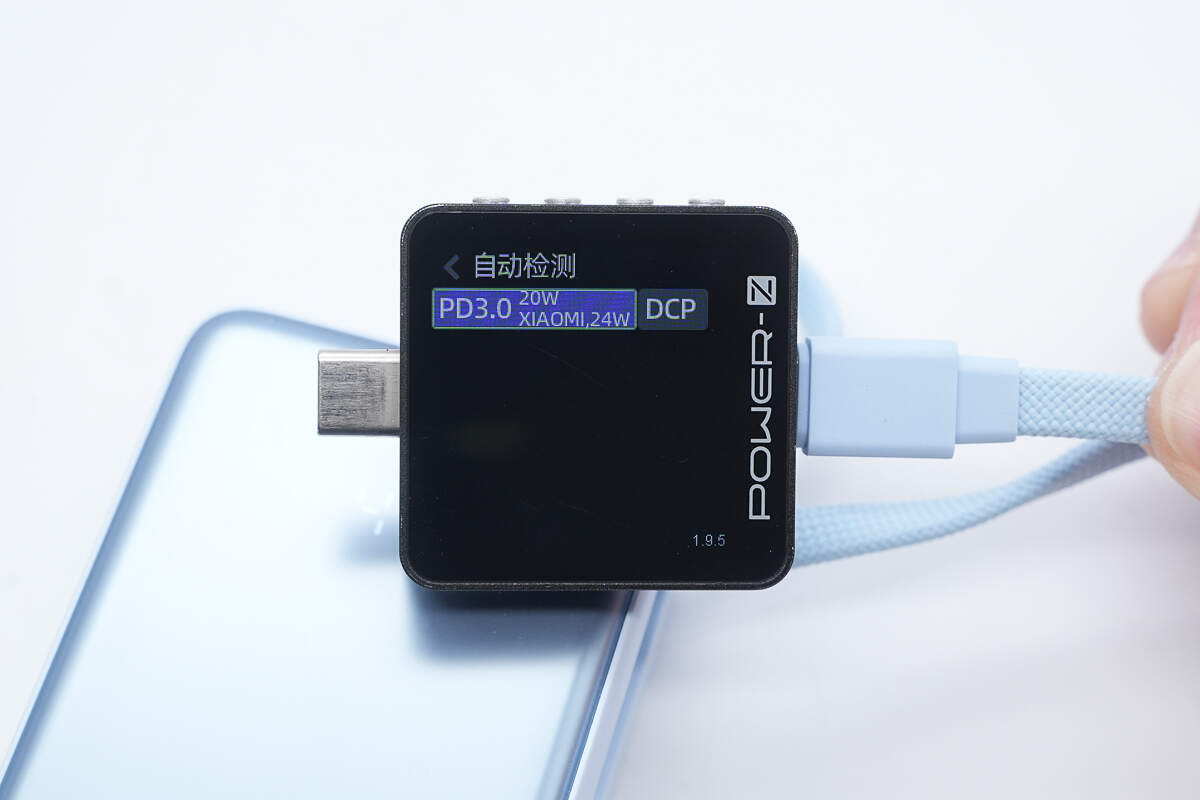
In power bank mode, the USB-C cable supports PD3.0, DCP protocols, as well as Xiaomi’s proprietary 24W protocol.
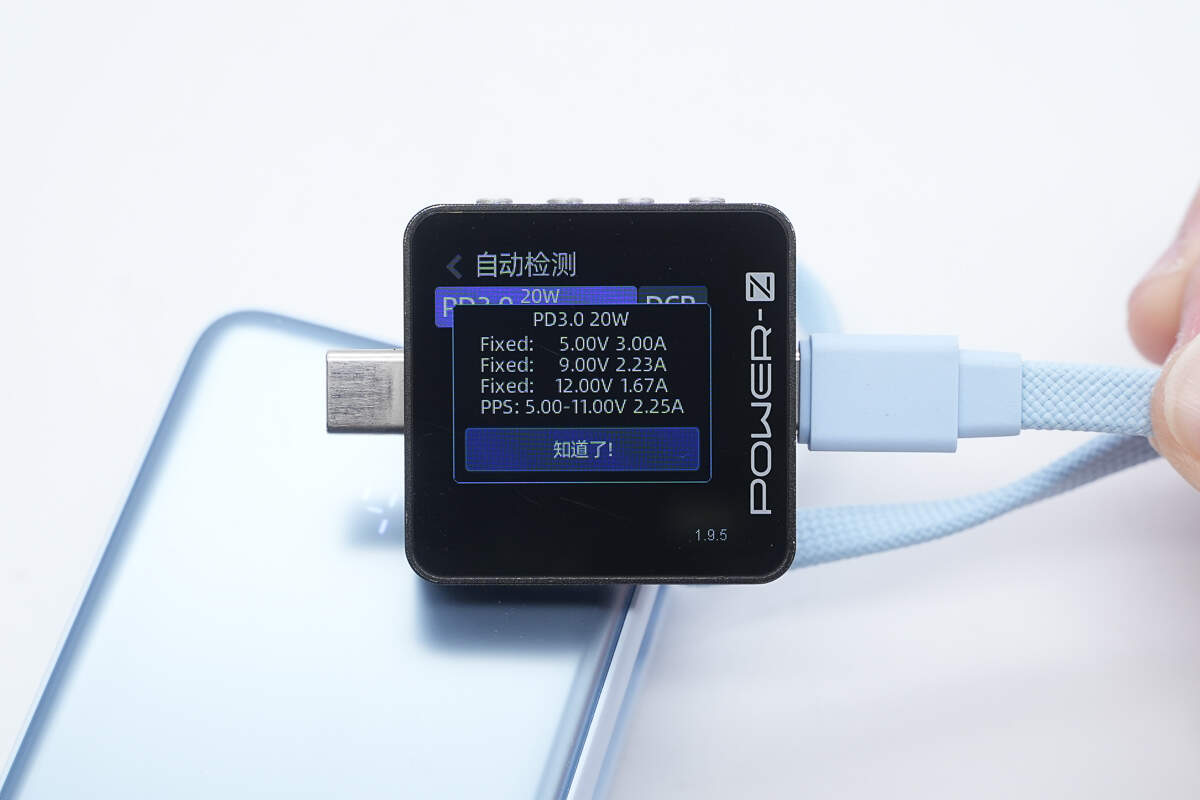
And it has three fixed PDOs of 5V3A, 9V2.23A, and 12V1.67A, as well as one Xiaomi proprietary voltage range of 5-11V2.25A.
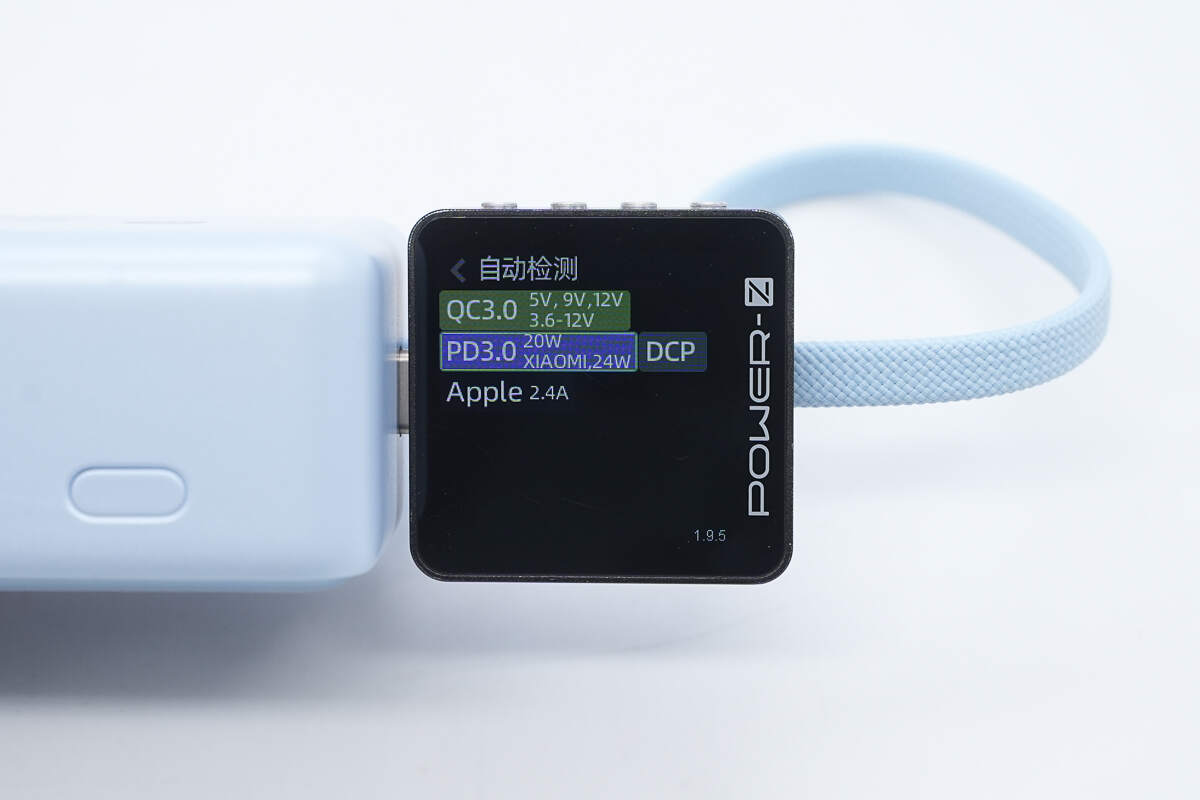
The USB-C port supports QC3.0, PD3.0, DCP, and Apple 2.4A charging protocols, as well as Xiaomi’s 24W proprietary protocol.
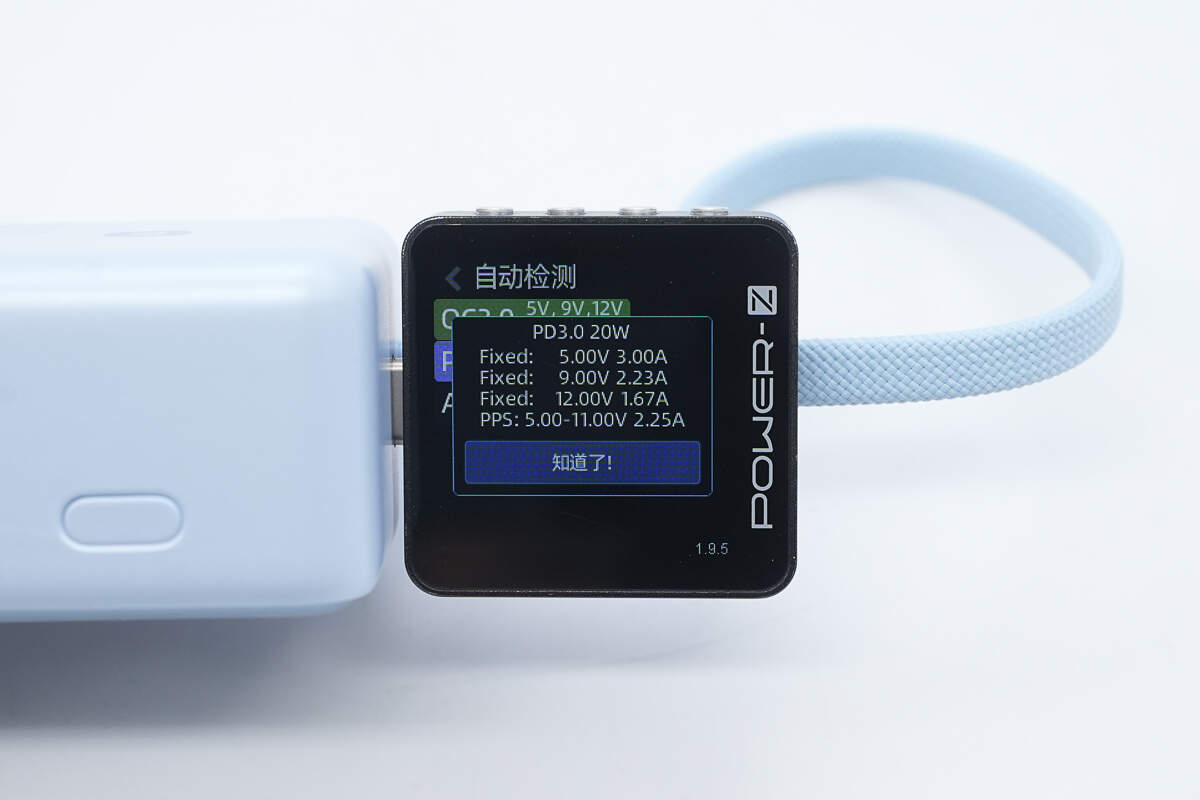
And it has three fixed PDOs of 5V3A, 9V2.23A, and 12V1.67A, as well as one Xiaomi proprietary voltage range of 5-11V2.25A.
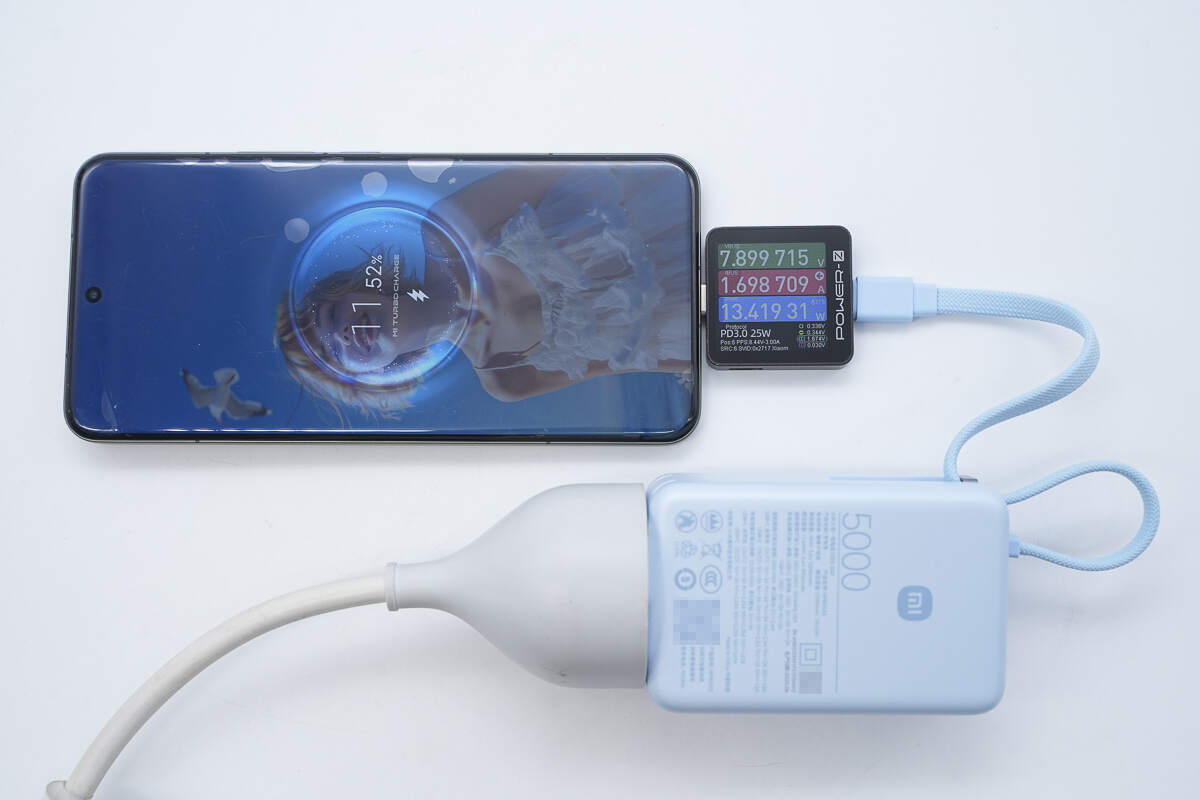
In charger mode, using the USB-C cable to charge the Xiaomi 15 Pro successfully activates Xiaomi Surge Fast Charging.
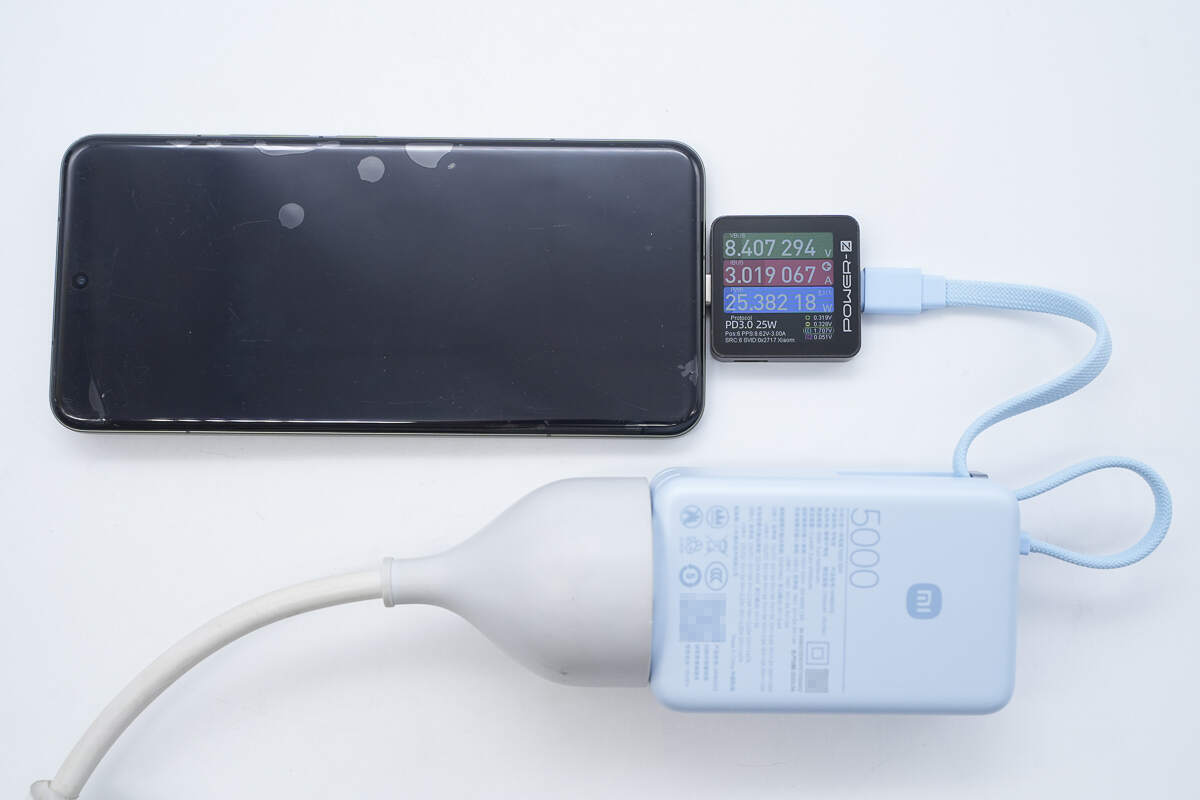
When the charging power reaches a stable state, the power is about 25.38W.
Teardown
Next, let's take it apart to see its internal components and structure.
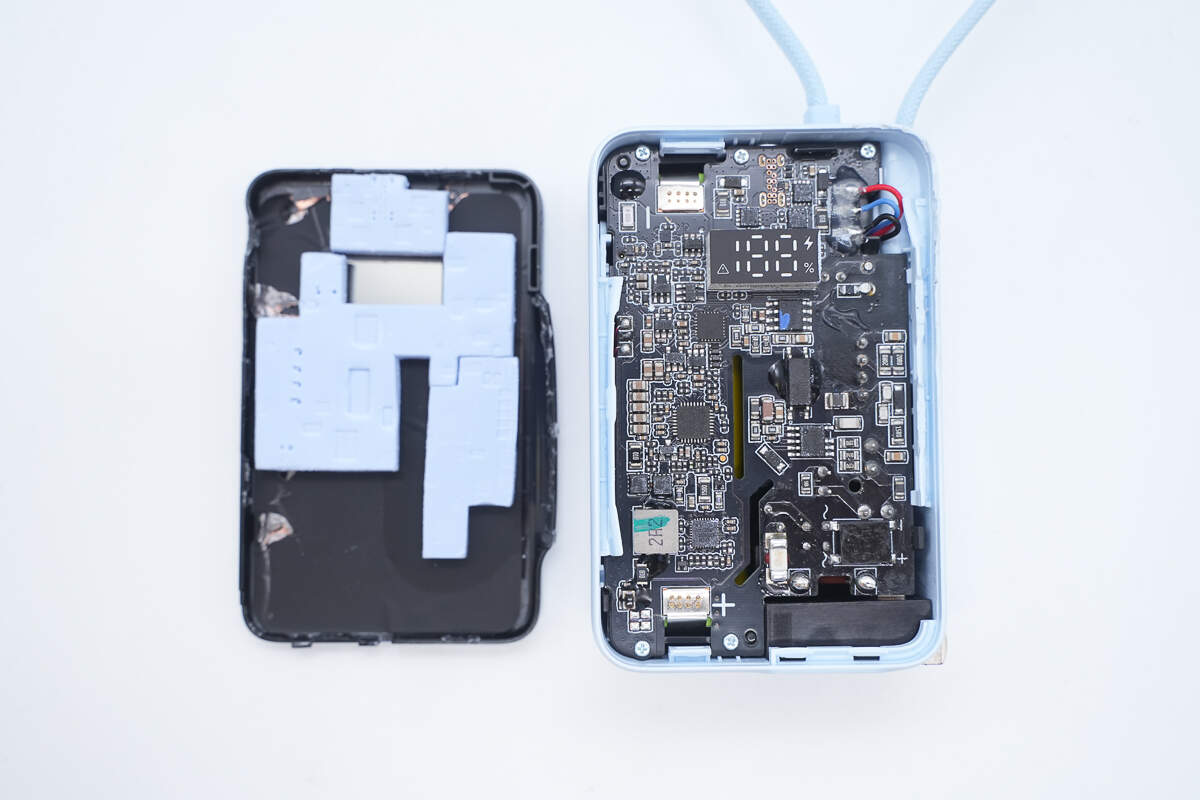
Removing the front casing reveals that it is secured with snap-fit clips.
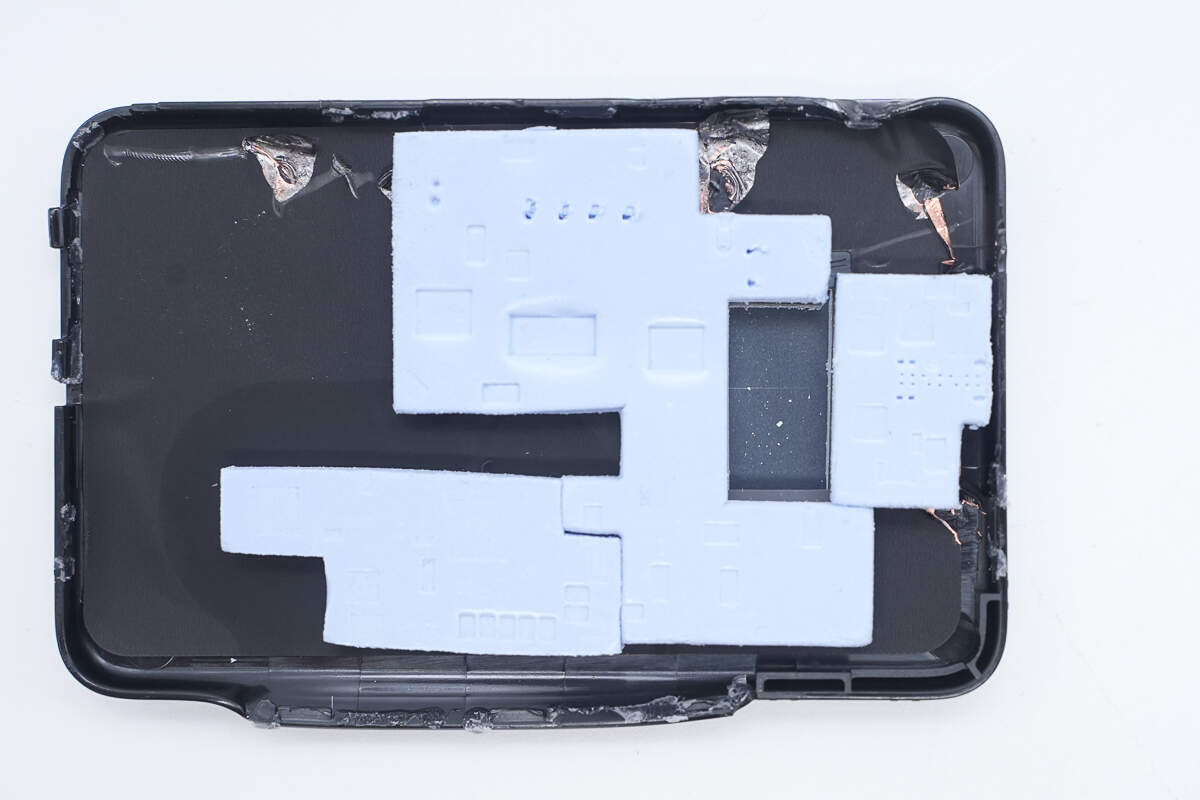
The inside of the casing is lined with heat-dissipating copper foil and blue thermal pads.
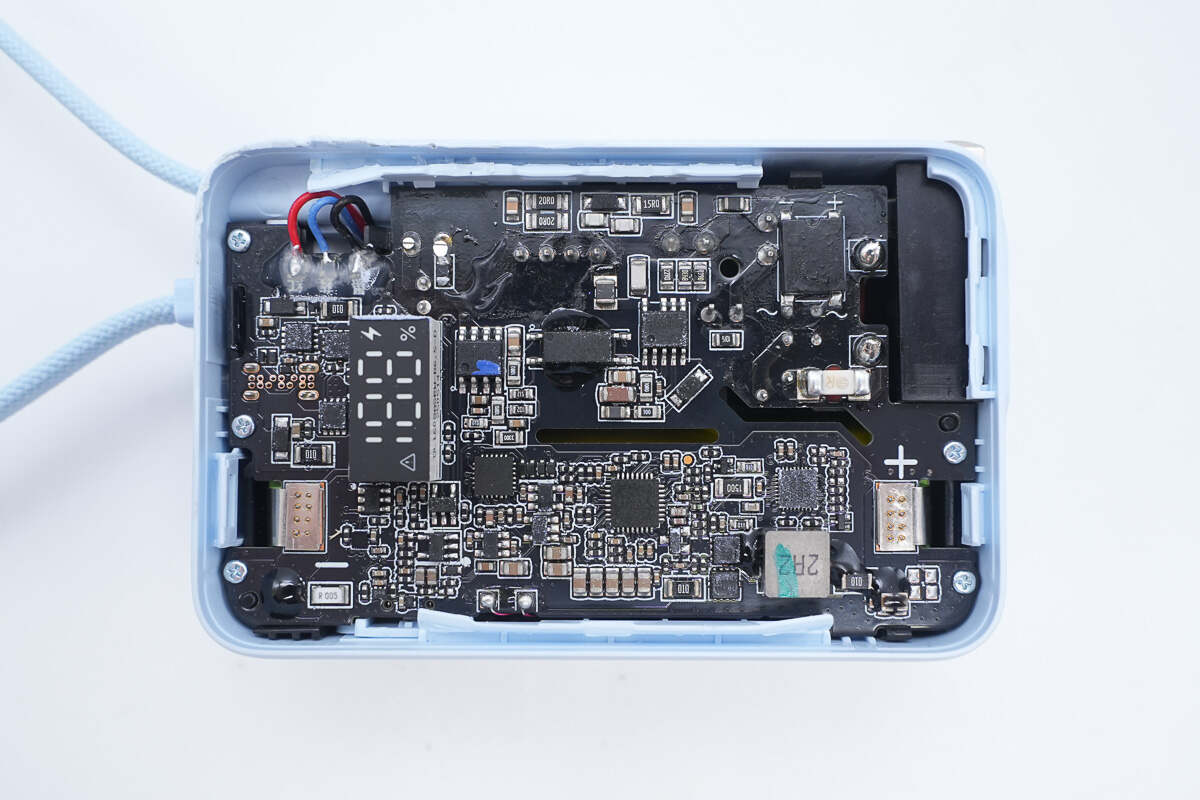
The PCB is secured with screws, and the wire connections are fixed with adhesive.
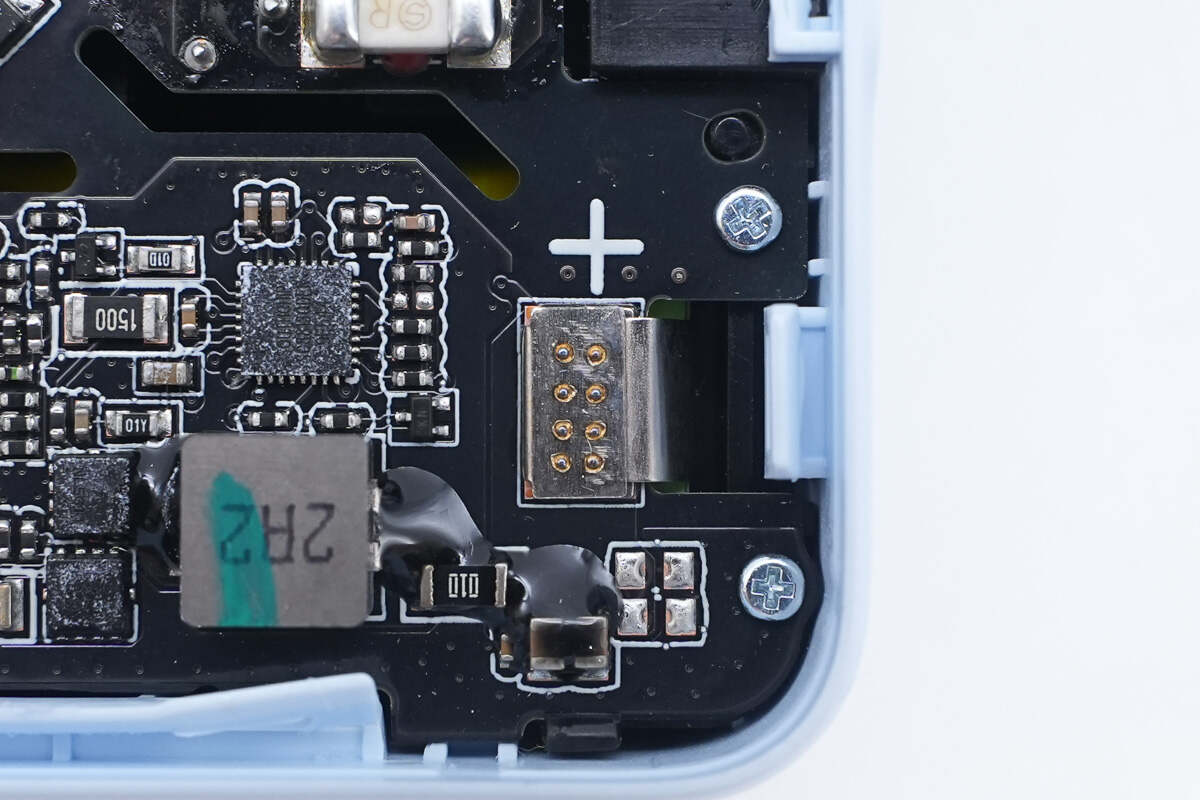
The battery cell is connected to the PCB via a nickel strip spot-welded.
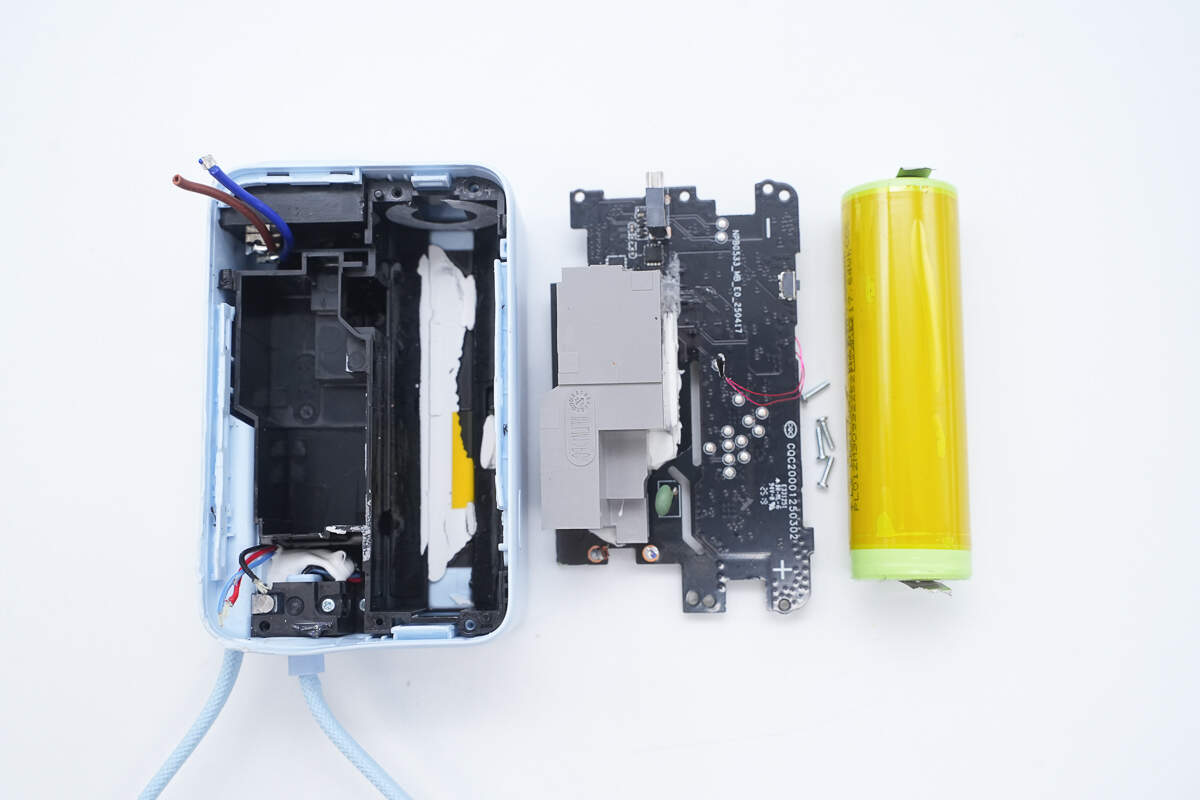
Separating the PCB and the battery cell reveals a black plastic casing underneath with isolation layers, and glue applied inside the battery compartment to help secure the cell.
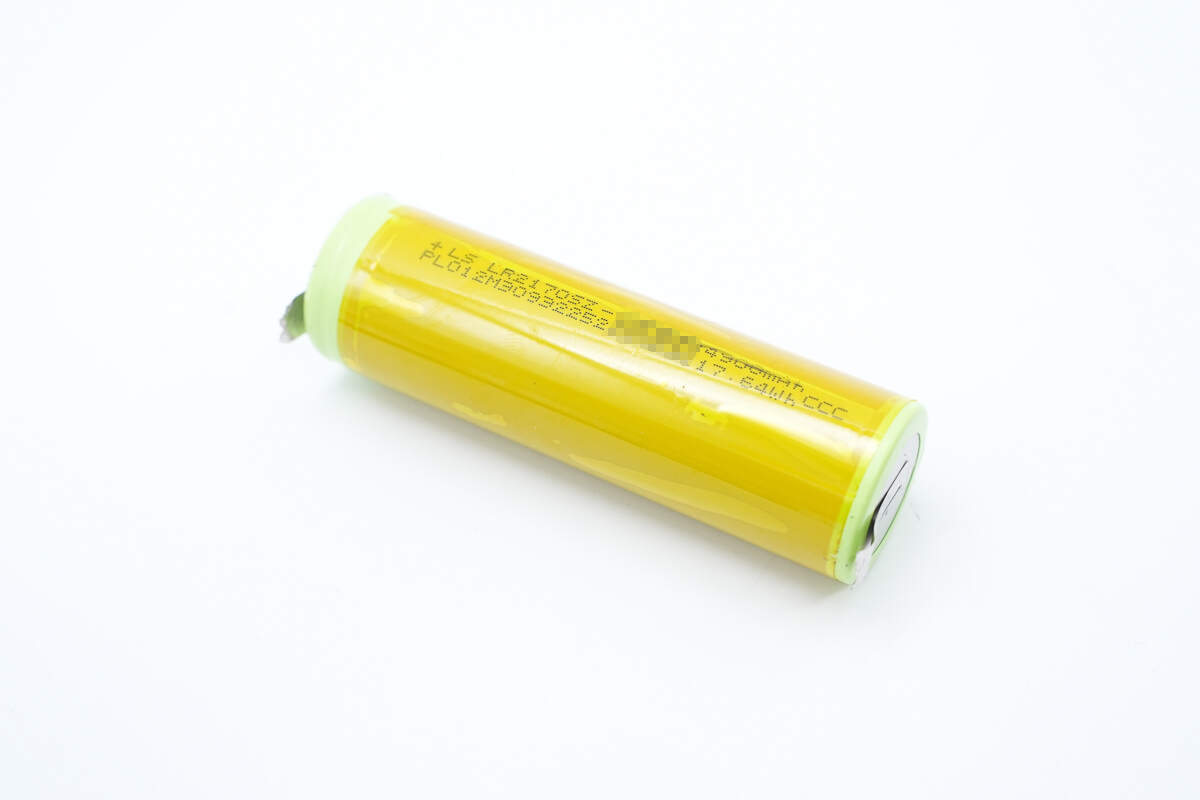
The battery cell is wrapped with yellow high-temperature-resistant insulating tape.
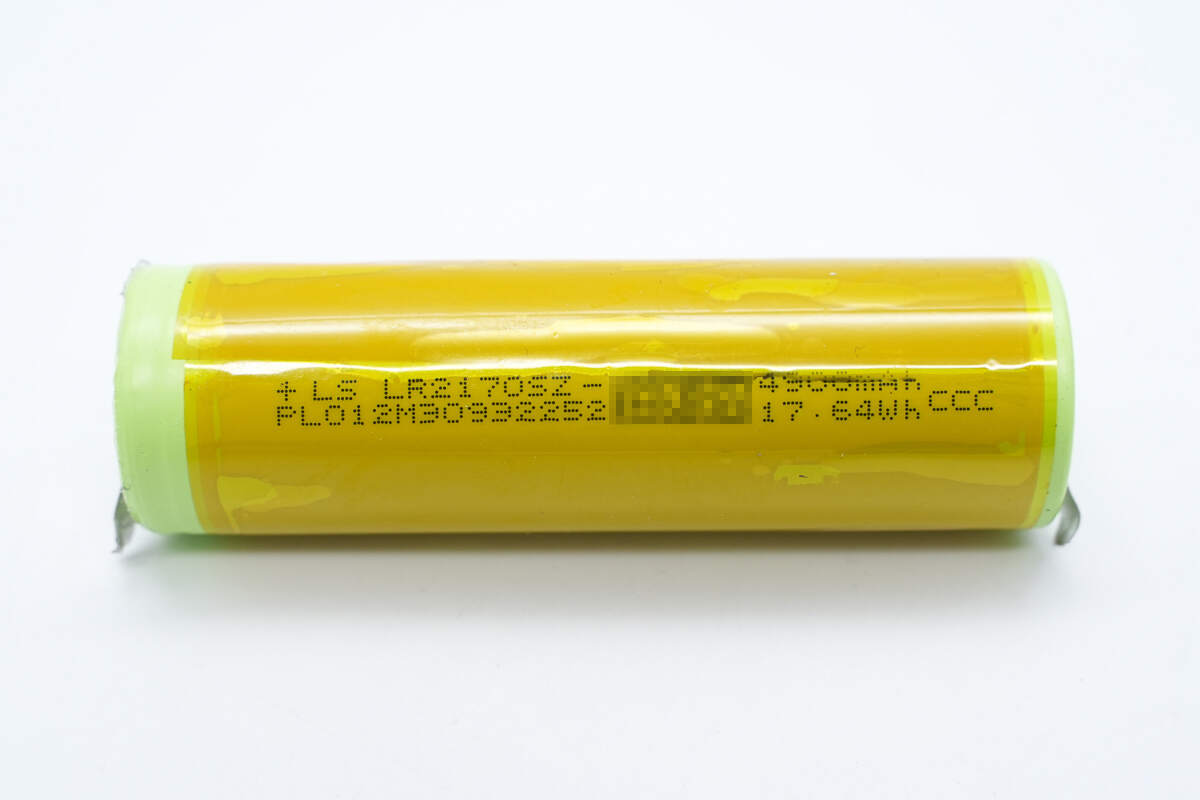
The battery cell is manufactured by LS, model LR2170SZ, with a capacity of 4900mAh and an energy rating of 17.64Wh. It has passed the CCC certification.
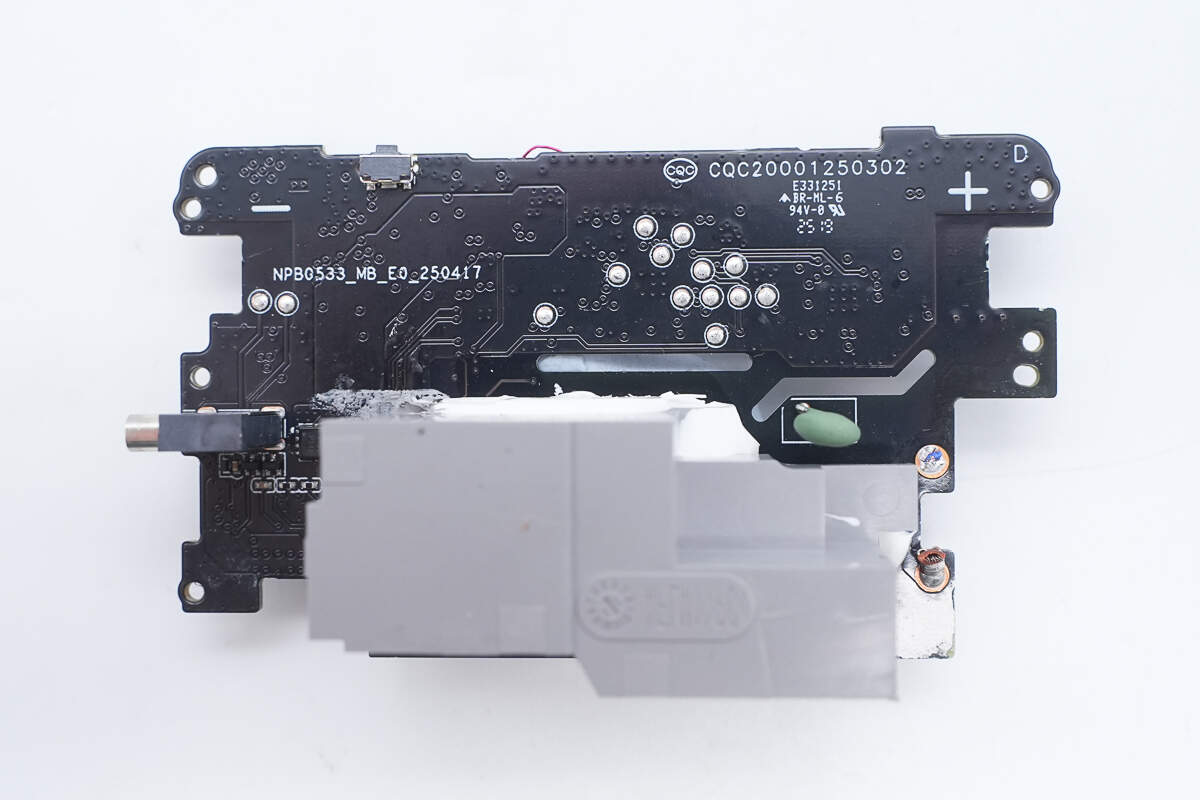
The components on the back are potted with thermal compound to form a solid unit, enhancing heat dissipation.
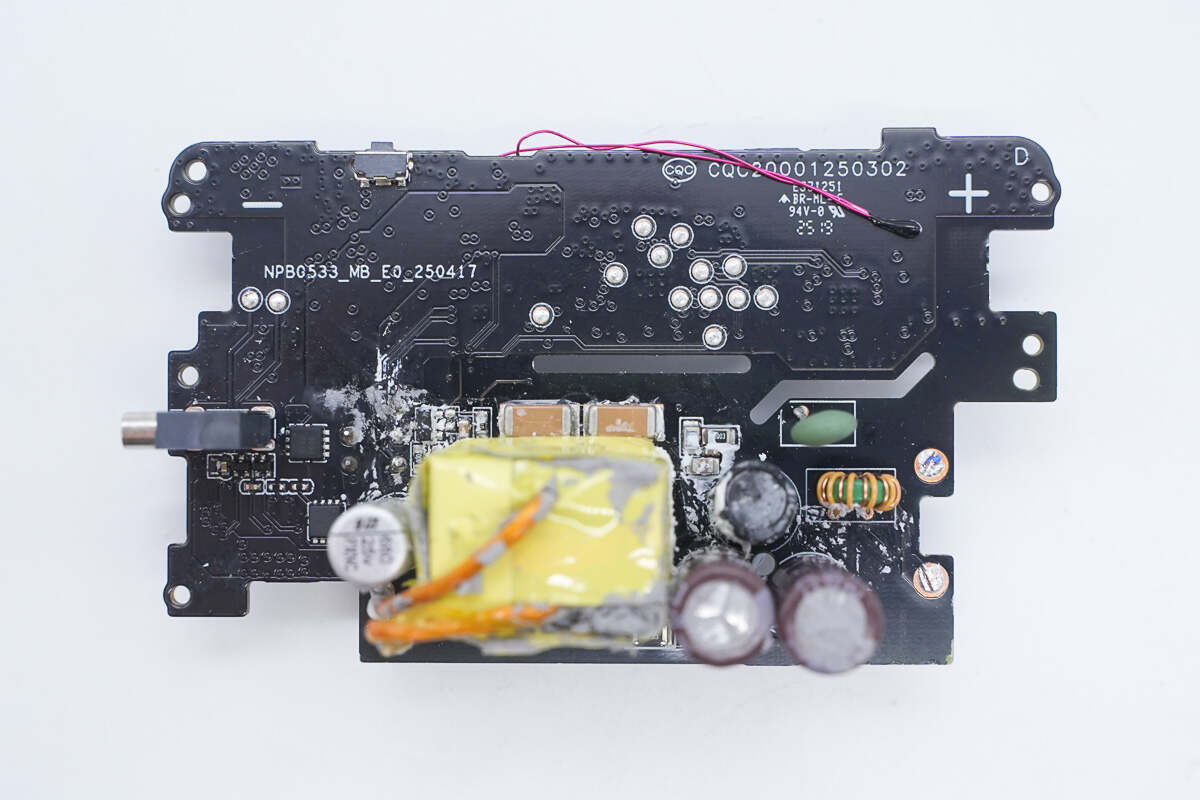
After removing the thermal compound, components such as an NTC thermistor, common mode choke, I-shaped inductor, electrolytic capacitors, transformer, solid capacitor, and VBUS MOSFETs can be seen.
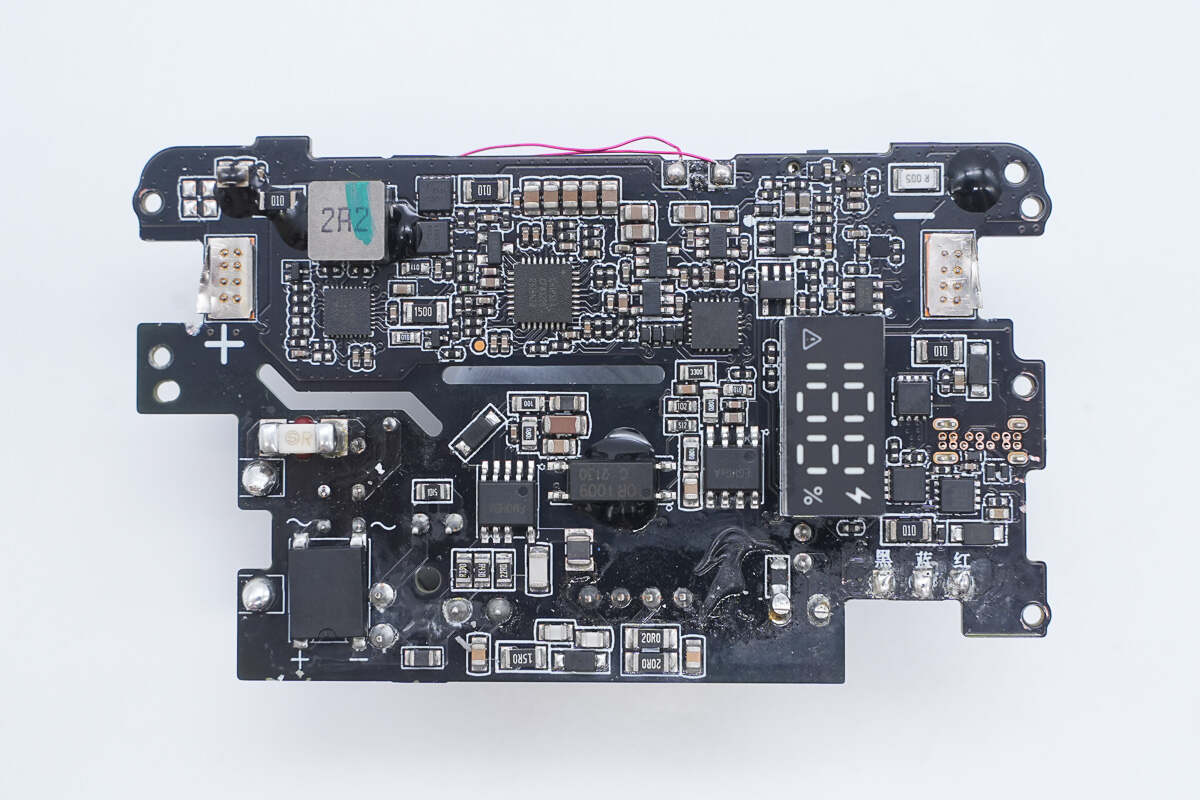
This side features components such as a bridge rectifier, master control chip, optocoupler, synchronous buck-boost controller, synchronous buck-boost MOSFETs, battery protection chip, and VBUS MOSFETs.
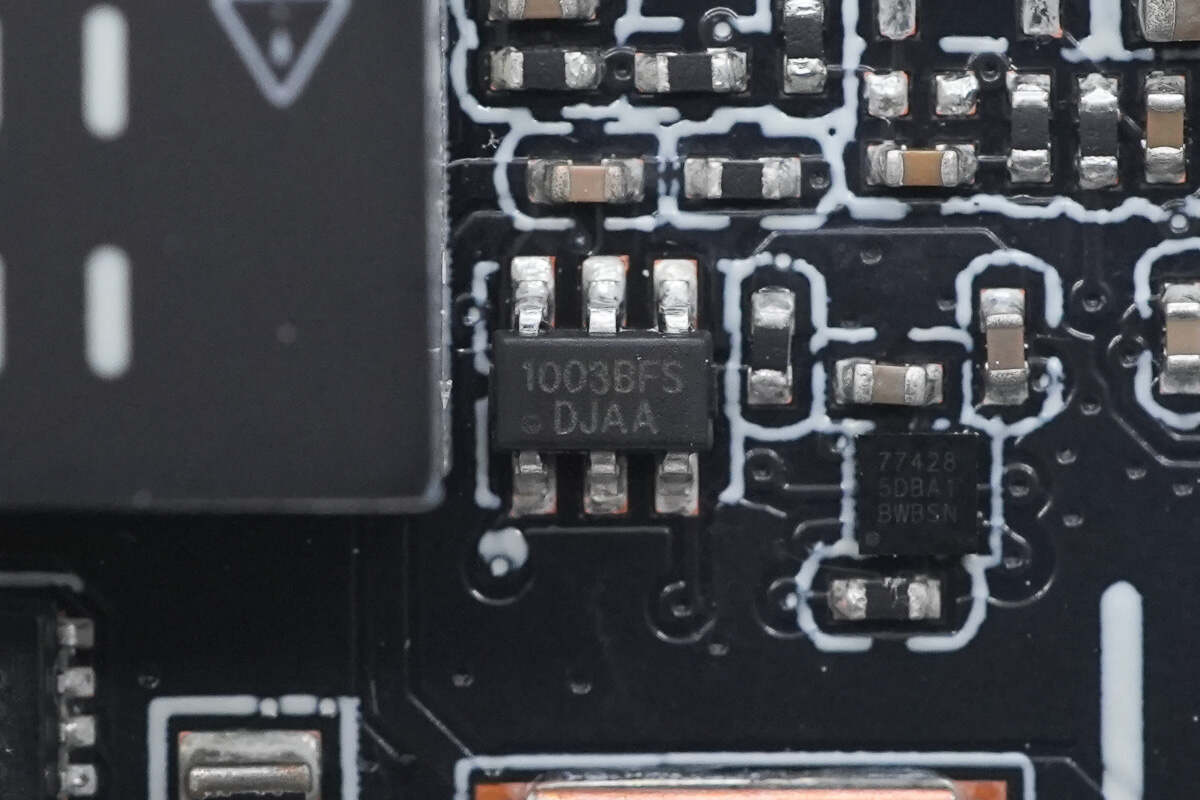
The battery protection chip is from iCM, model CM1003-BFS. It integrates a high-precision voltage detection circuit and delay circuit, protecting against overcharge, over-discharge, and overcurrent by monitoring the battery’s voltage and current. It is designed for use in protection circuits of single-cell lithium-ion or lithium-polymer rechargeable batteries.
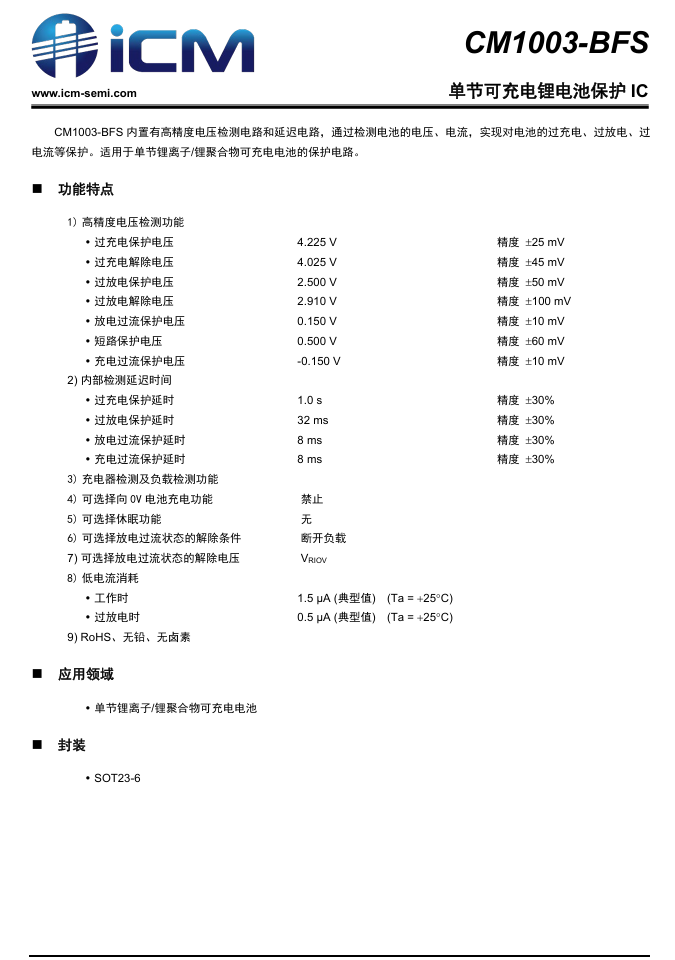
Here is the information about iCM CM1003-BFS.
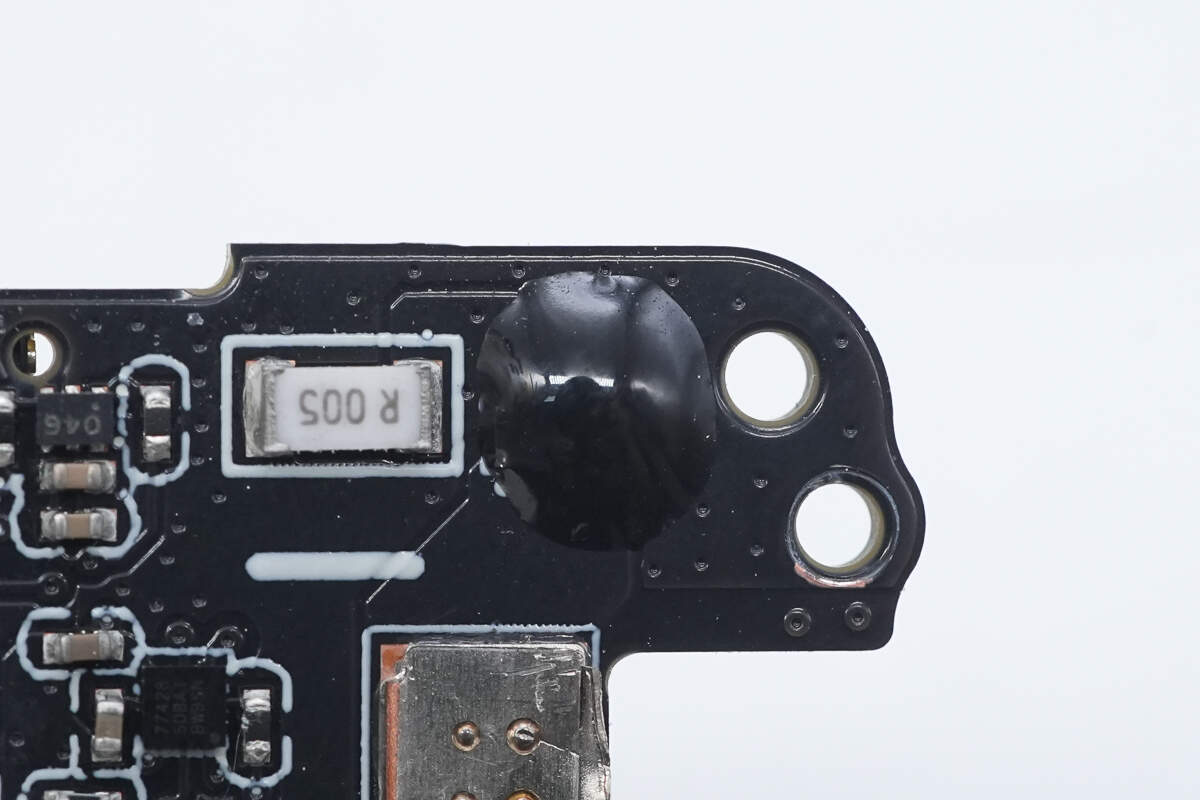
The battery protection MOSFET is covered with hard epoxy resin.
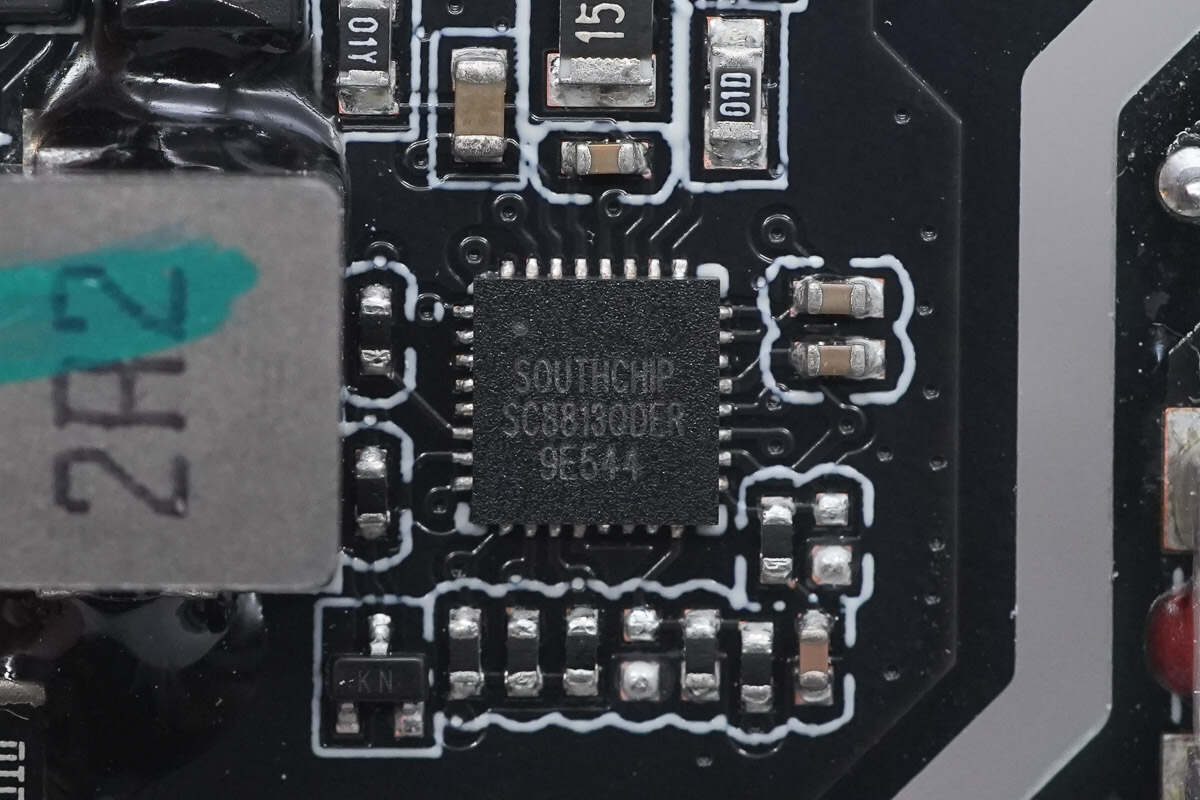
The synchronous buck-boost controller is the SouthChip SC8813, which features an integrated I²C interface for configuring operating modes and parameters. The SC8813 supports a wide input and output voltage range, making it suitable for applications with 1 to 4 series lithium-ion cells.
In charging mode, as long as the input voltage is higher than the battery voltage, it steps down the input voltage efficiently to charge the battery. It supports automatic trickle charging, constant current charging, and constant voltage charging management. In discharge mode (reverse boost mode), it can efficiently boost the output voltage up to 36V.
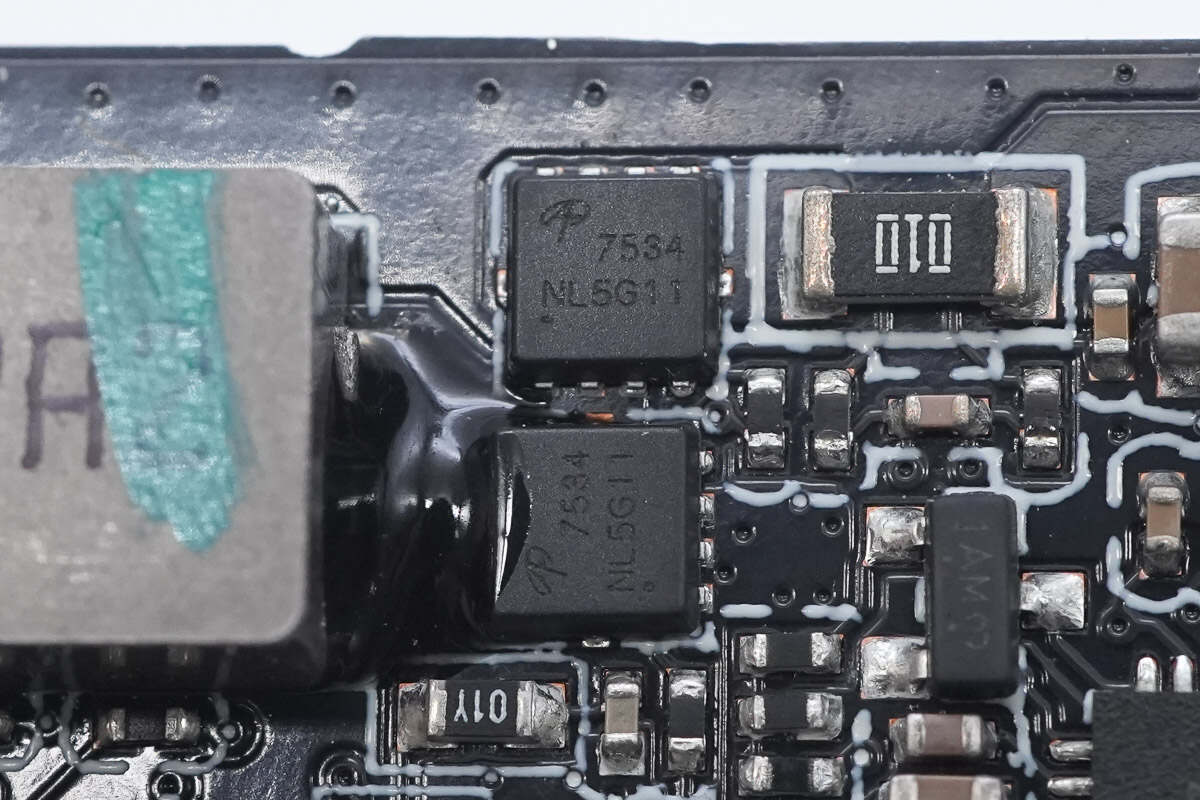
The synchronous buck-boost MOSFETs are AOS AON7534 N-channel MOSFETs, rated for 30V, with an on-resistance of 5mΩ. They come in a compact DFN3×3EP package.
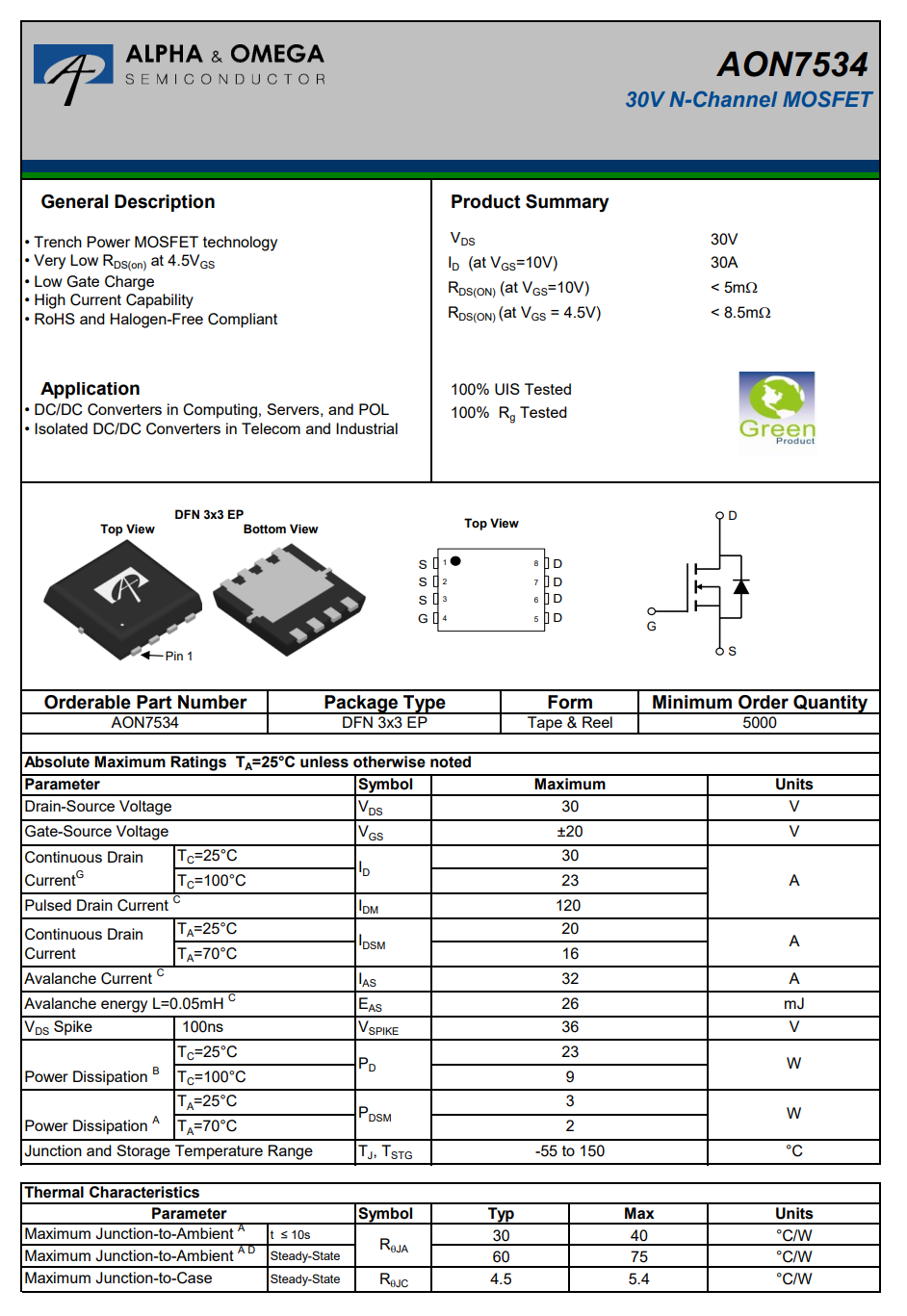
Here is the information about AOS AON7534.
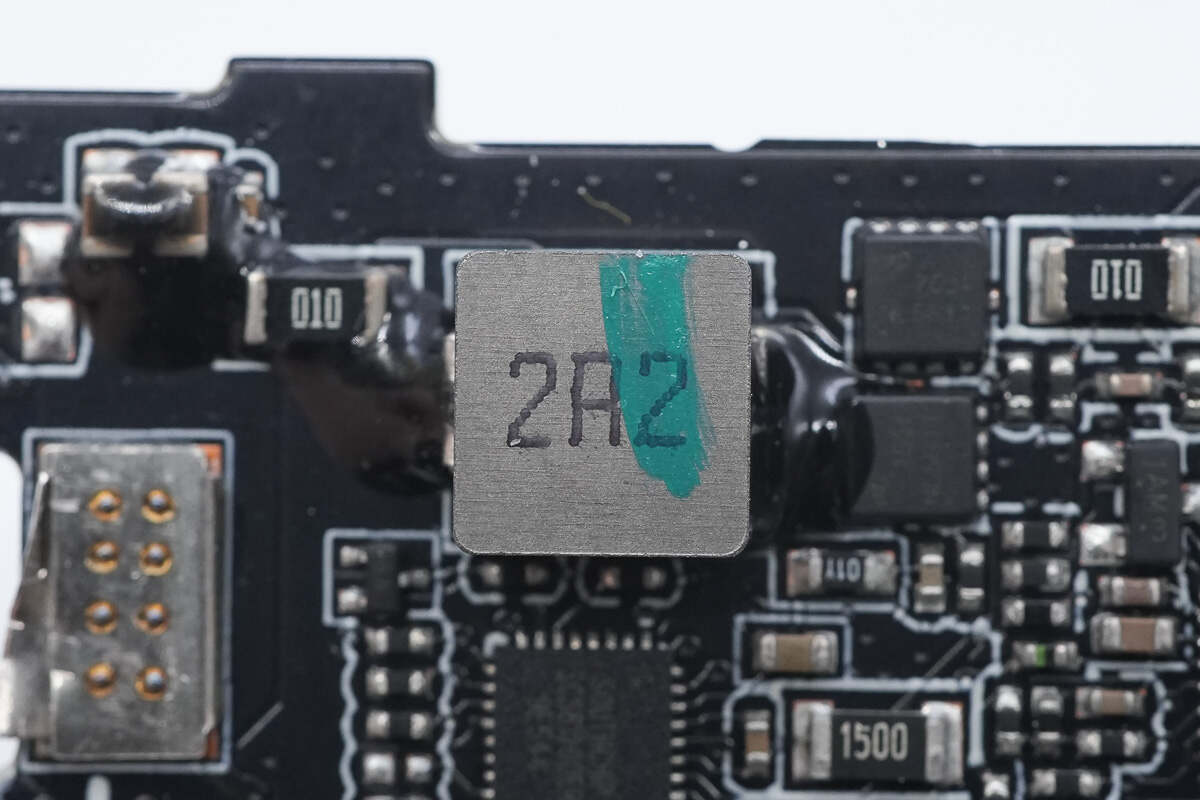
Close-up of the paired 2.2μH buck-boost inductor.
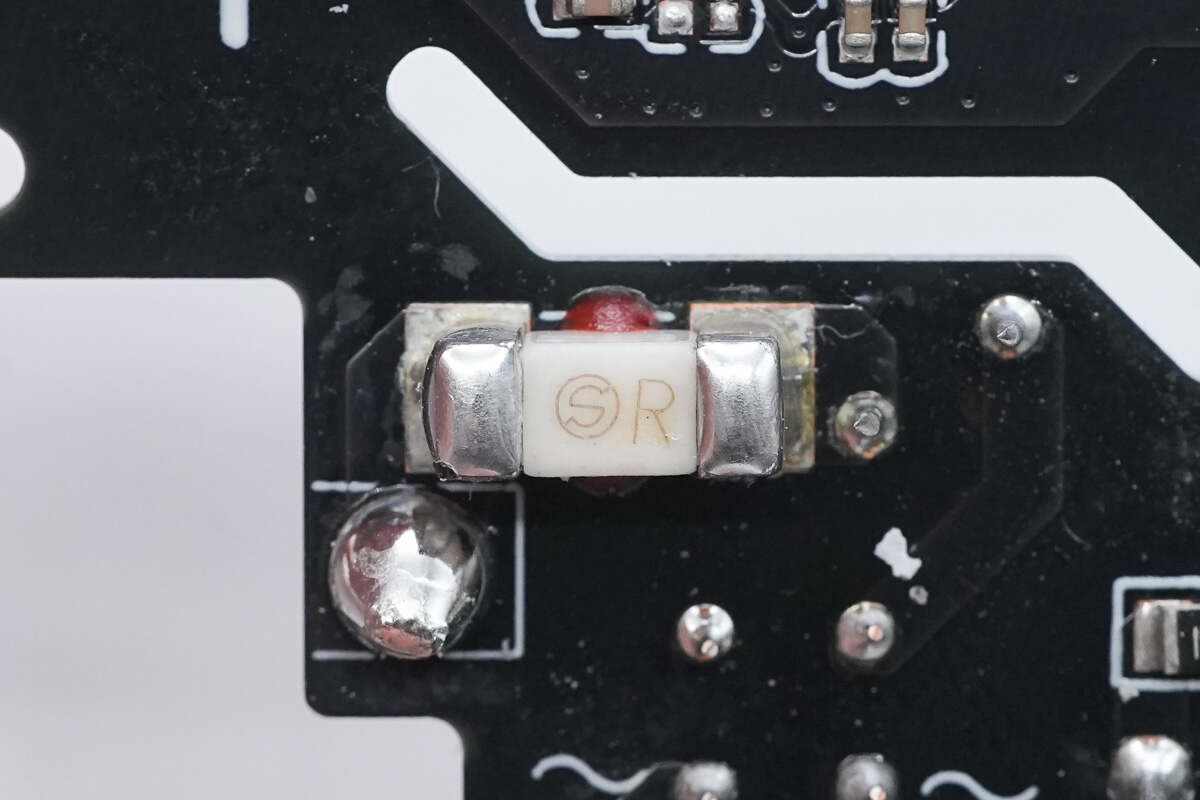
Close-up of the SMD fuse at the AC input side.
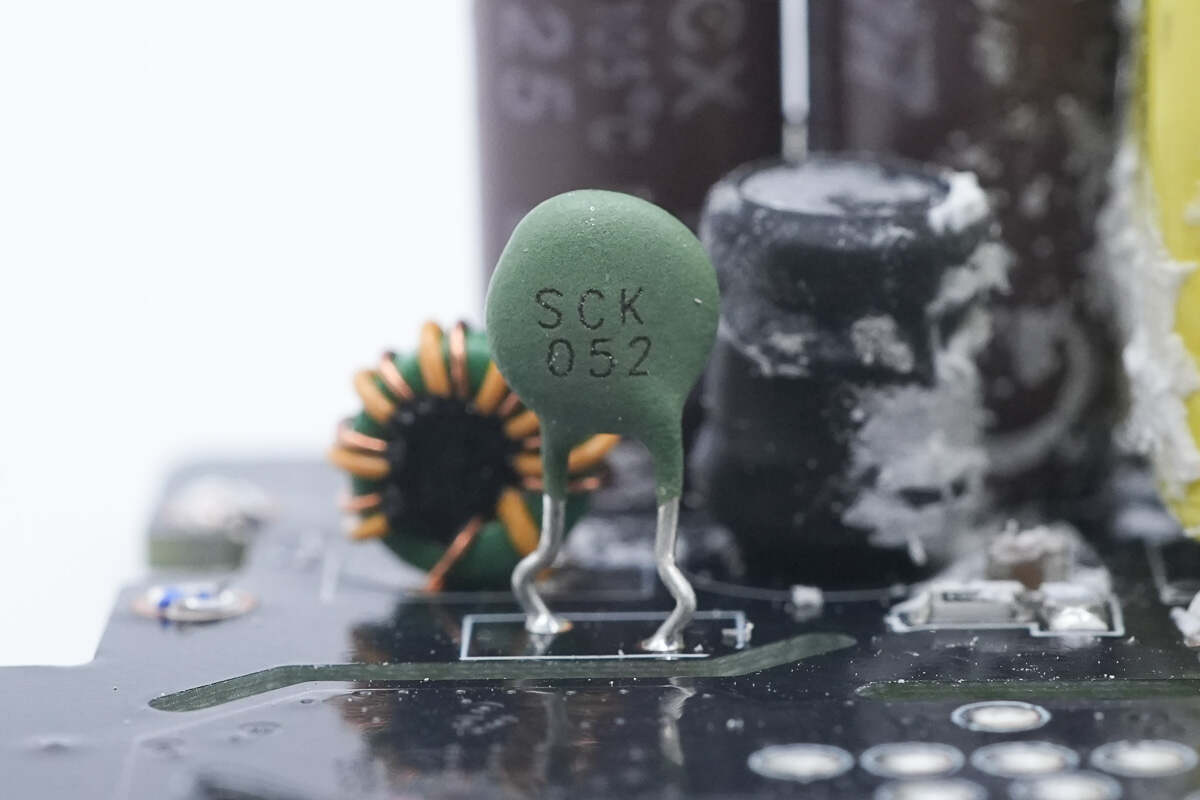
The NTC thermistor is used to suppress inrush current during power-up.
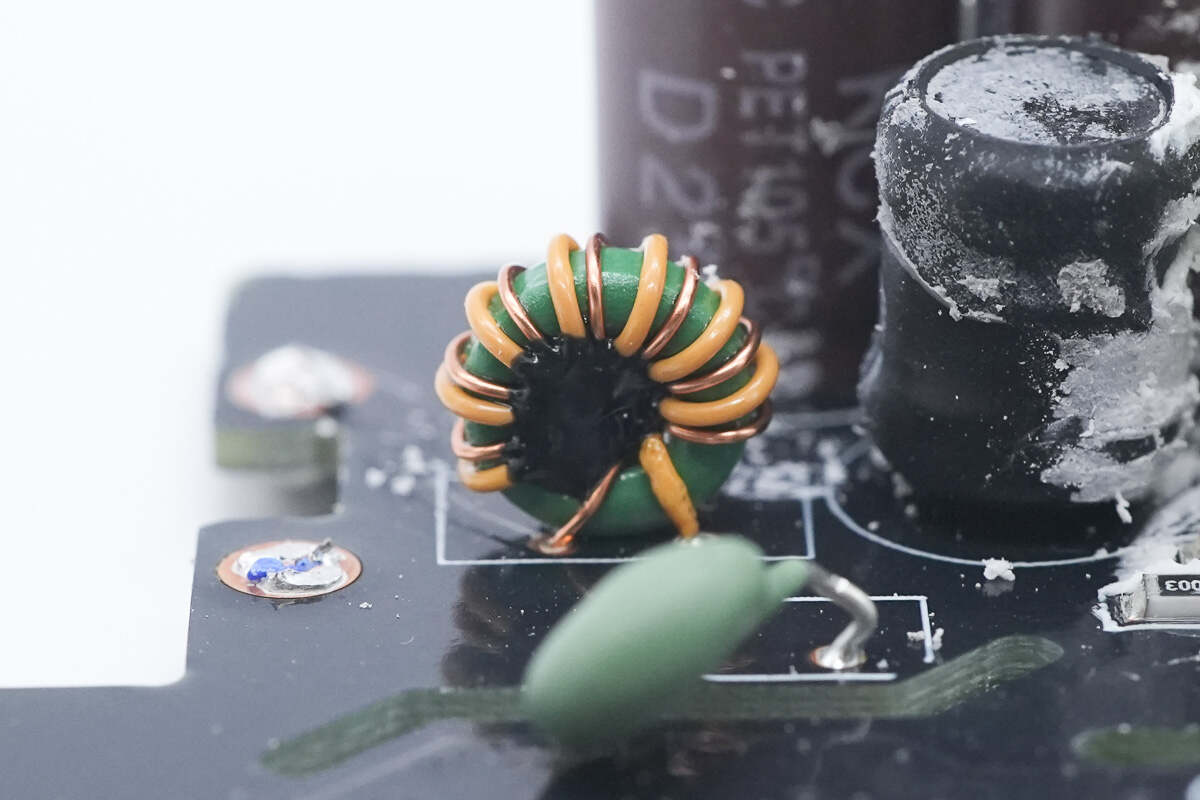
The common mode choke is wound with dual wires and is used to filter out EMI interference.
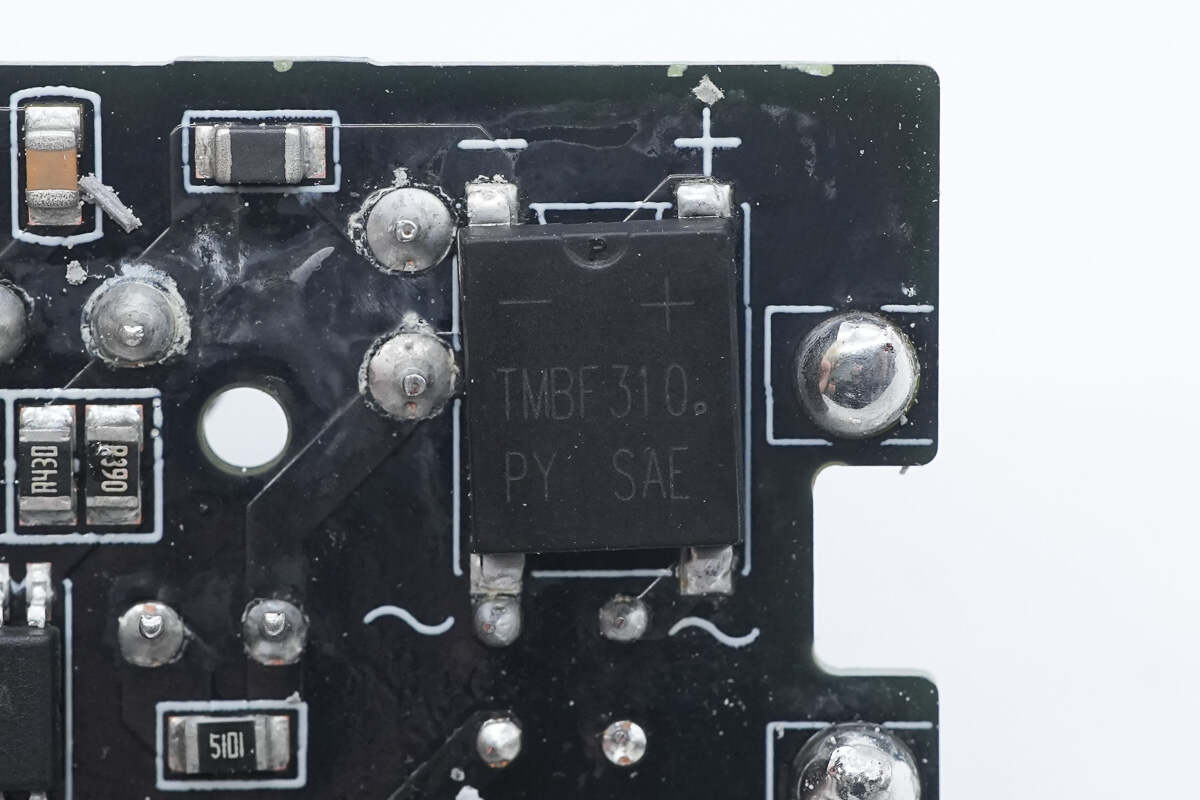
The Pingwei TMBF310 bridge rectifier is rated at 3A, 1000V, and comes in a TMBF package.
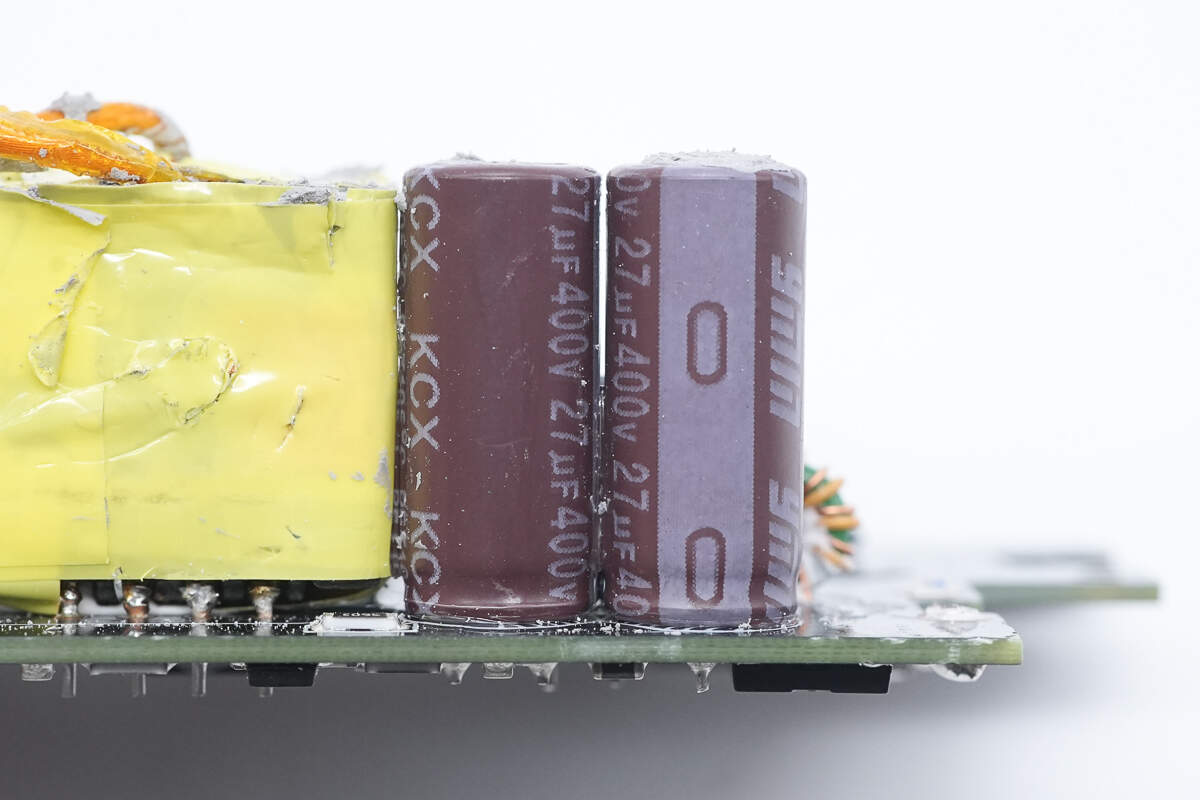
The two electrolytic capacitors are from YMIN, both rated at 400V 27μF.
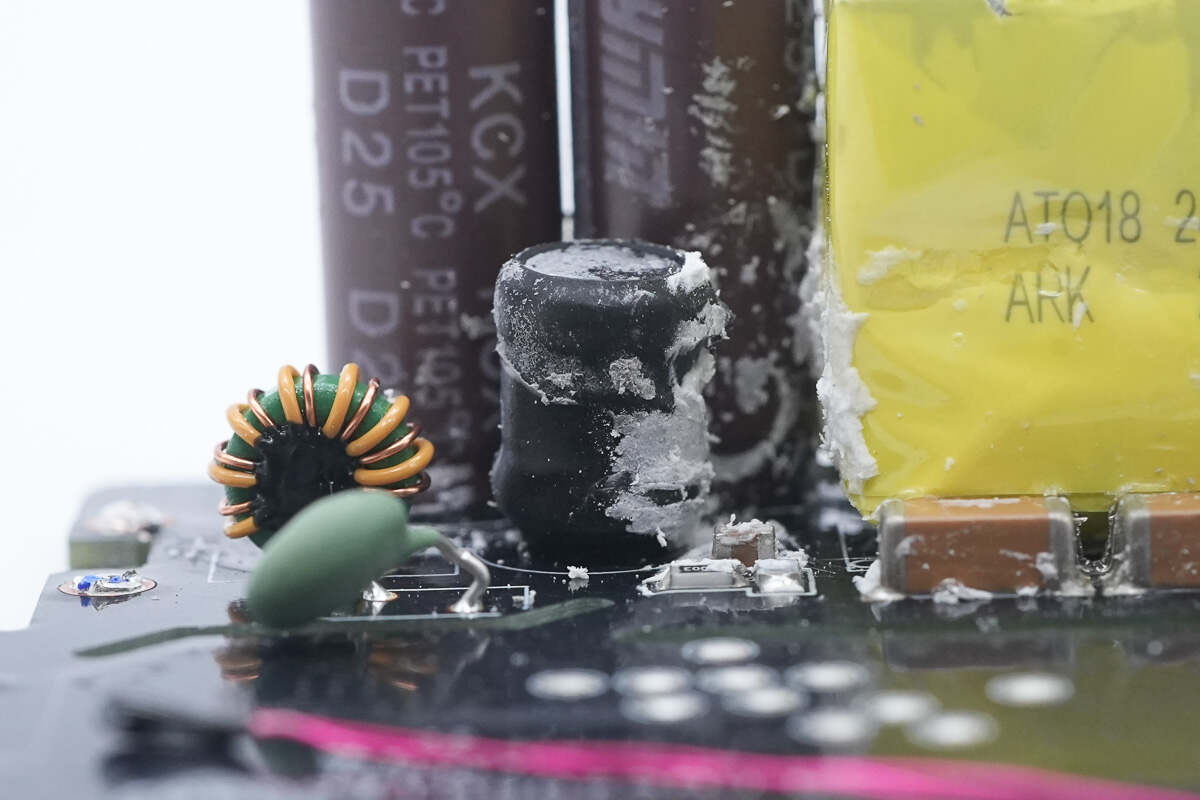
The I-shaped inductor is insulated with a heat-shrink tube.
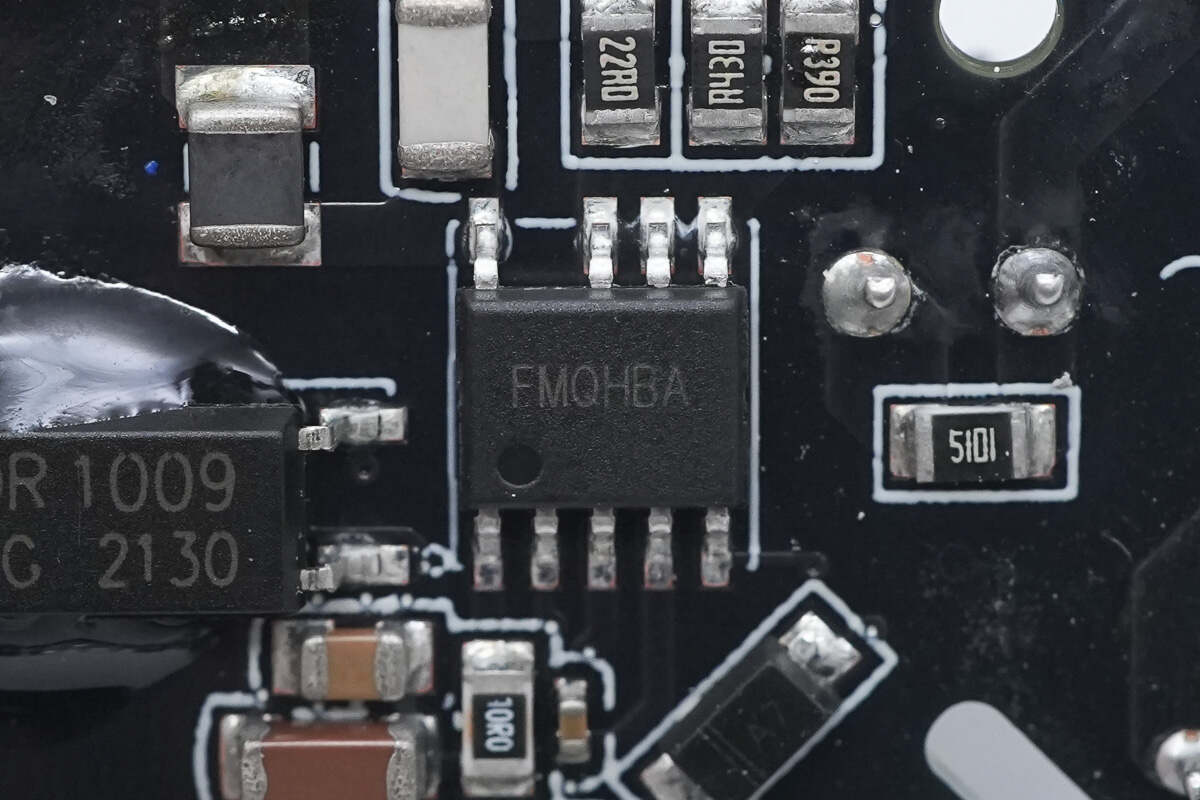
The master control chip is from Silergy, marked “FMQ”, model SY50294HZP. It is a high-frequency quasi-resonant flyback converter with an integrated enhanced GaN FET rated for 700V and 365mΩ, supporting applications up to 45W. It operates in both DCM and QR modes and supports a switching frequency range from 25kHz to 500kHz.
The SY50294HZP supports a 140V VCCH power supply, features automatic valley lock-in, high-precision output overcurrent protection, integrated 700V high-voltage startup, and soft-start functionality. It also includes programmable output over-voltage and under-voltage protection, sample resistor short-circuit protection, and built-in over-temperature protection. The chip comes in an SSOP9E package.
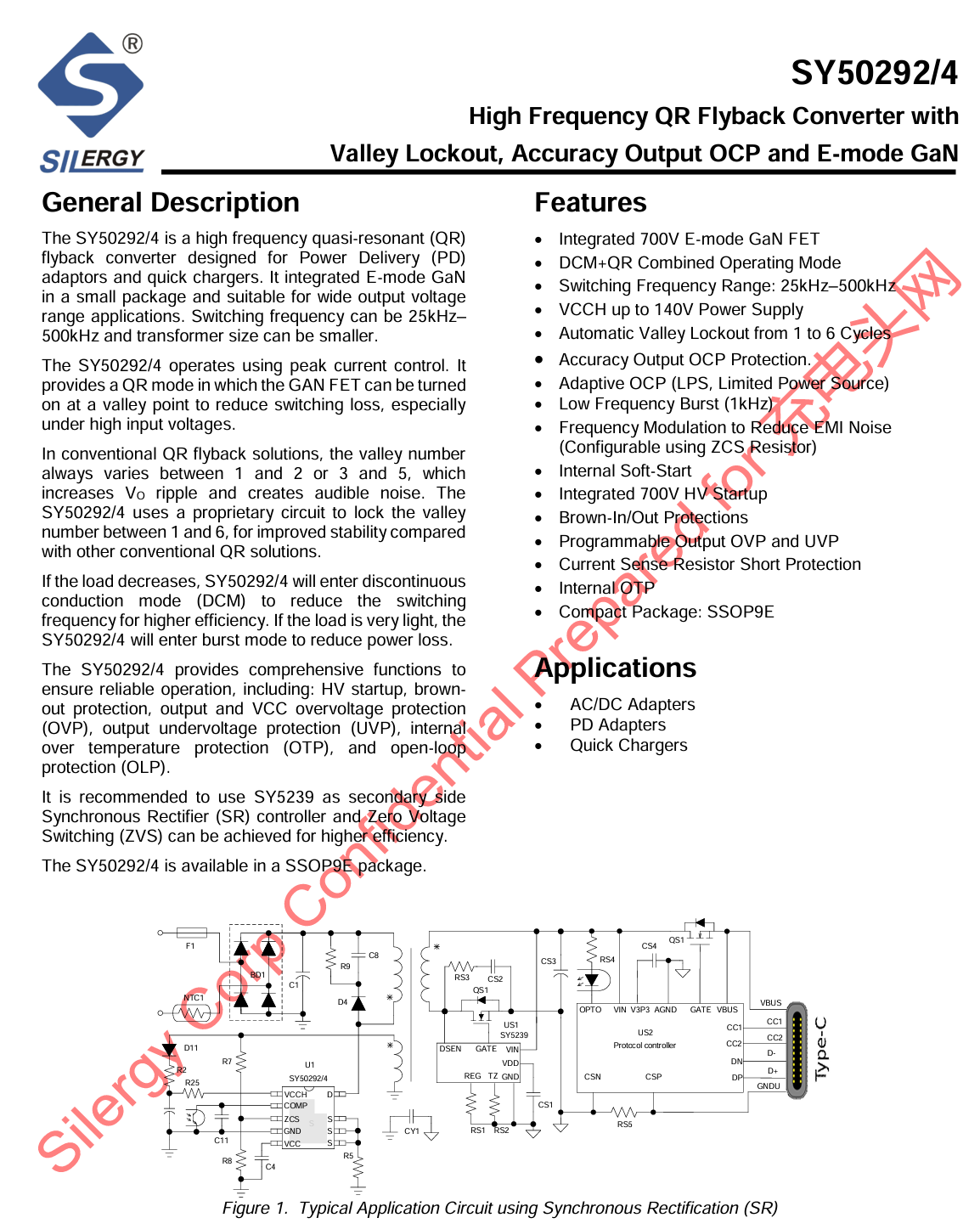
Here is the information about Silergy SY50294HZP.
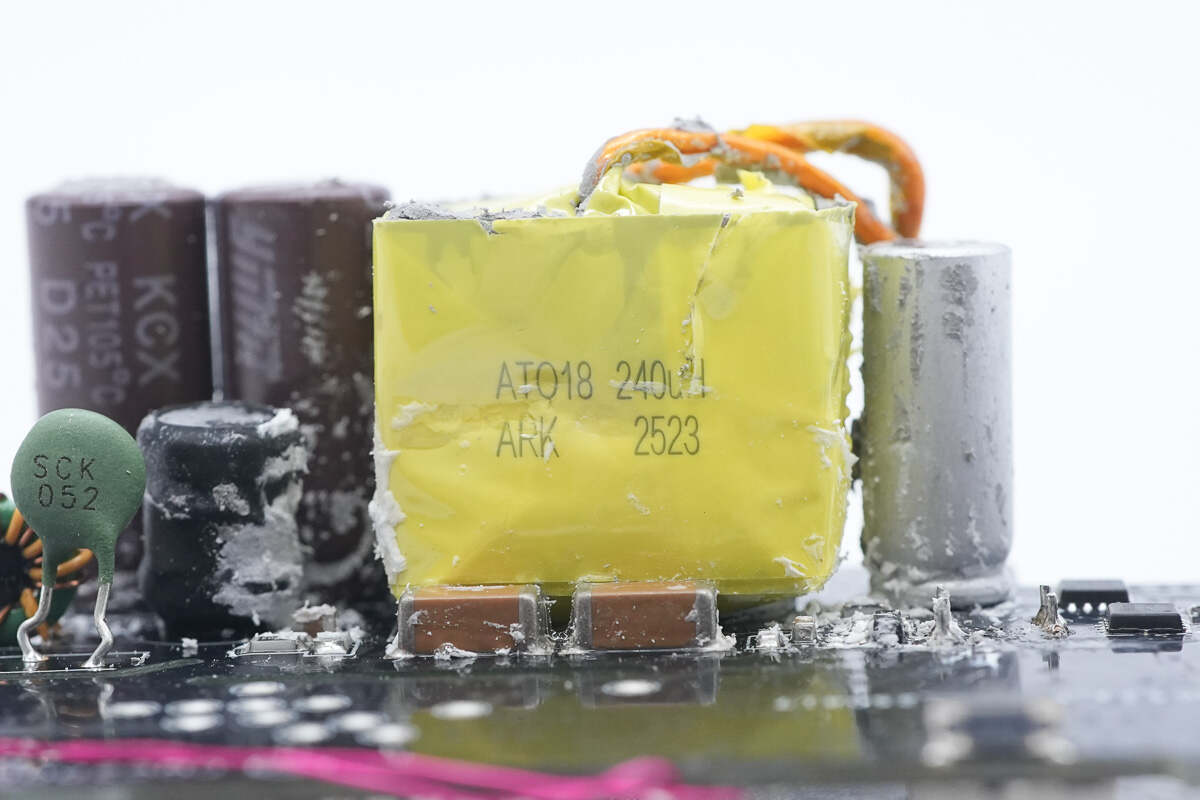
The transformer uses an ATQ18 magnetic core.
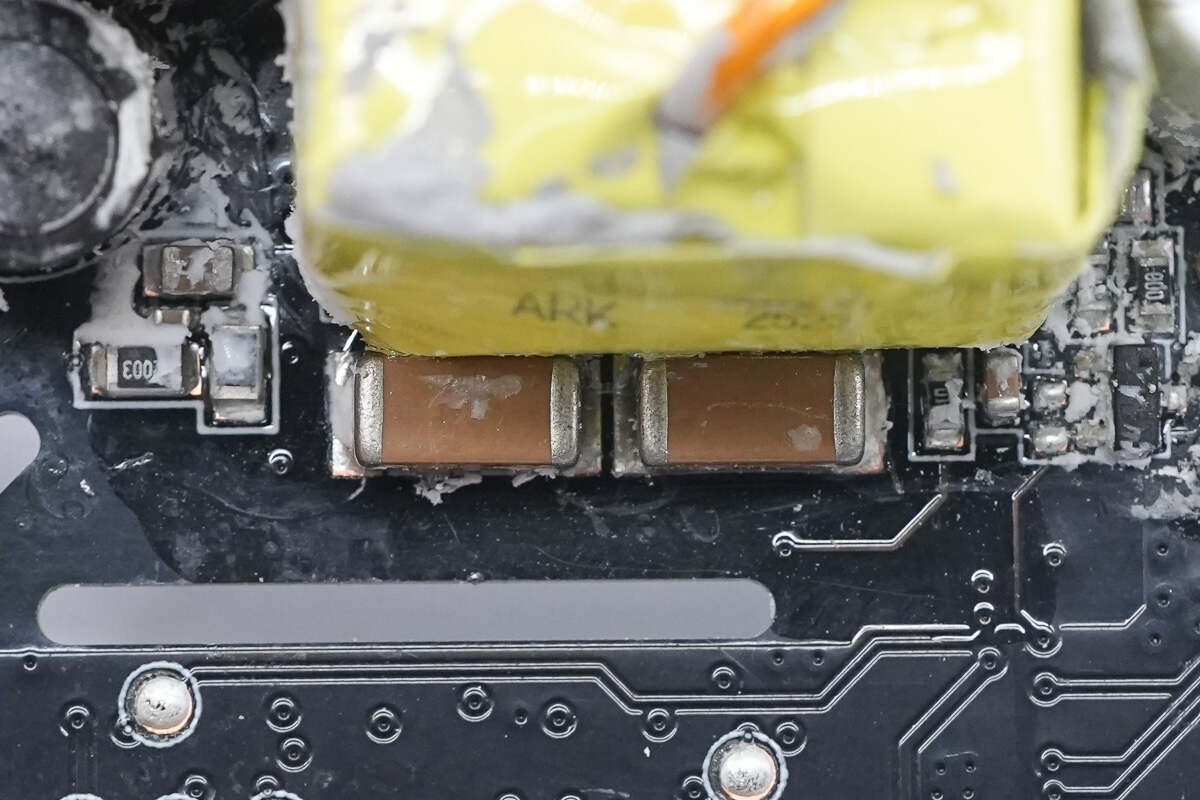
Two SMD Y capacitors are connected in series to enhance the safety rating.
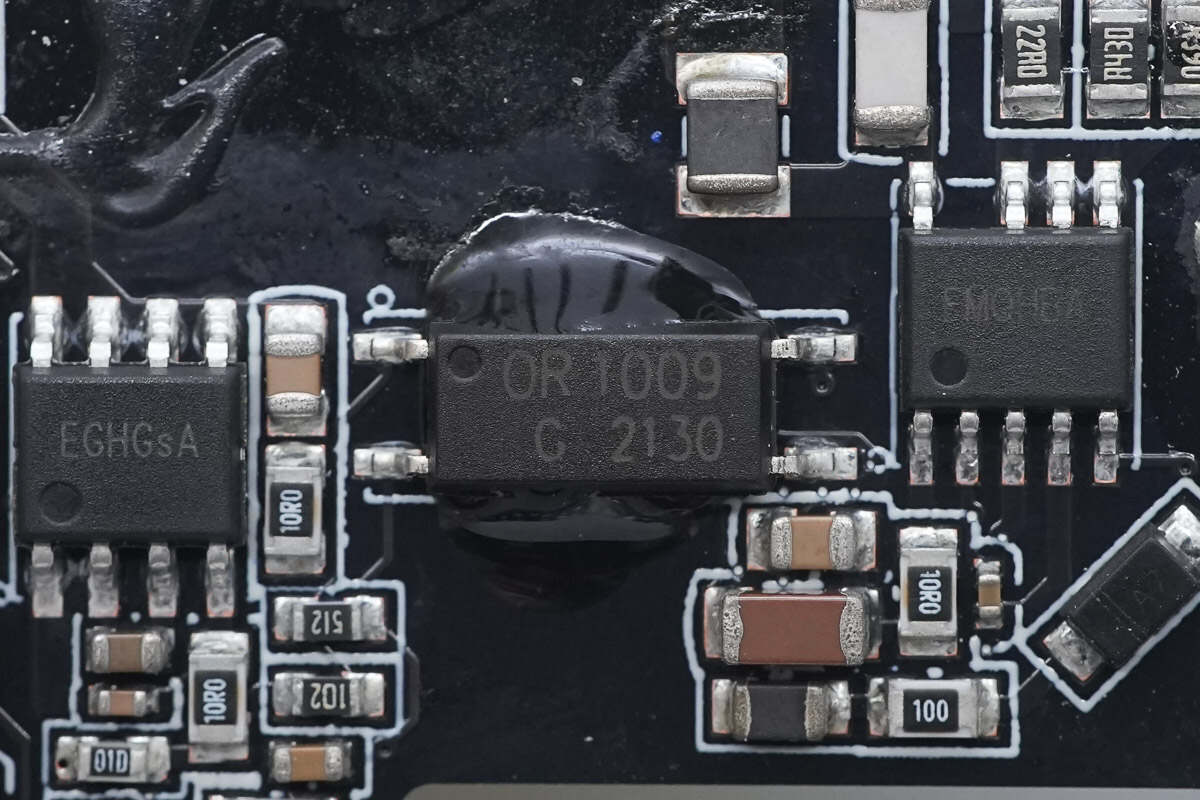
The OR 1009 optocoupler is used for output voltage feedback.
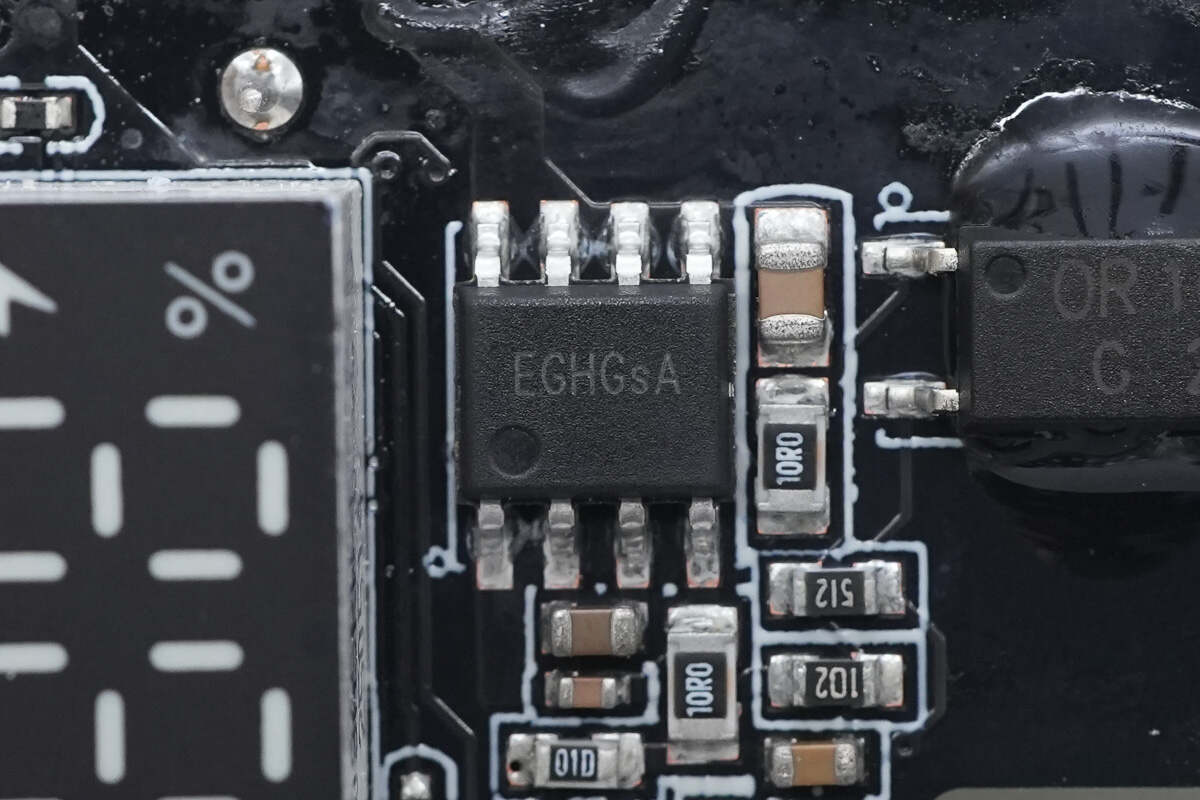
The synchronous rectifier controller is also from Silergy, marked “EGH”, model SY52441FAP. It is suitable for CCM, DCM, and QR flyback applications. The chip integrates a 100V-rated, 8mΩ synchronous rectifier MOSFET and supports a wide voltage range of 3.3V to 21V. It is ideal for adapters, PD fast charging, servers, and telecom applications. The package type is SO8.
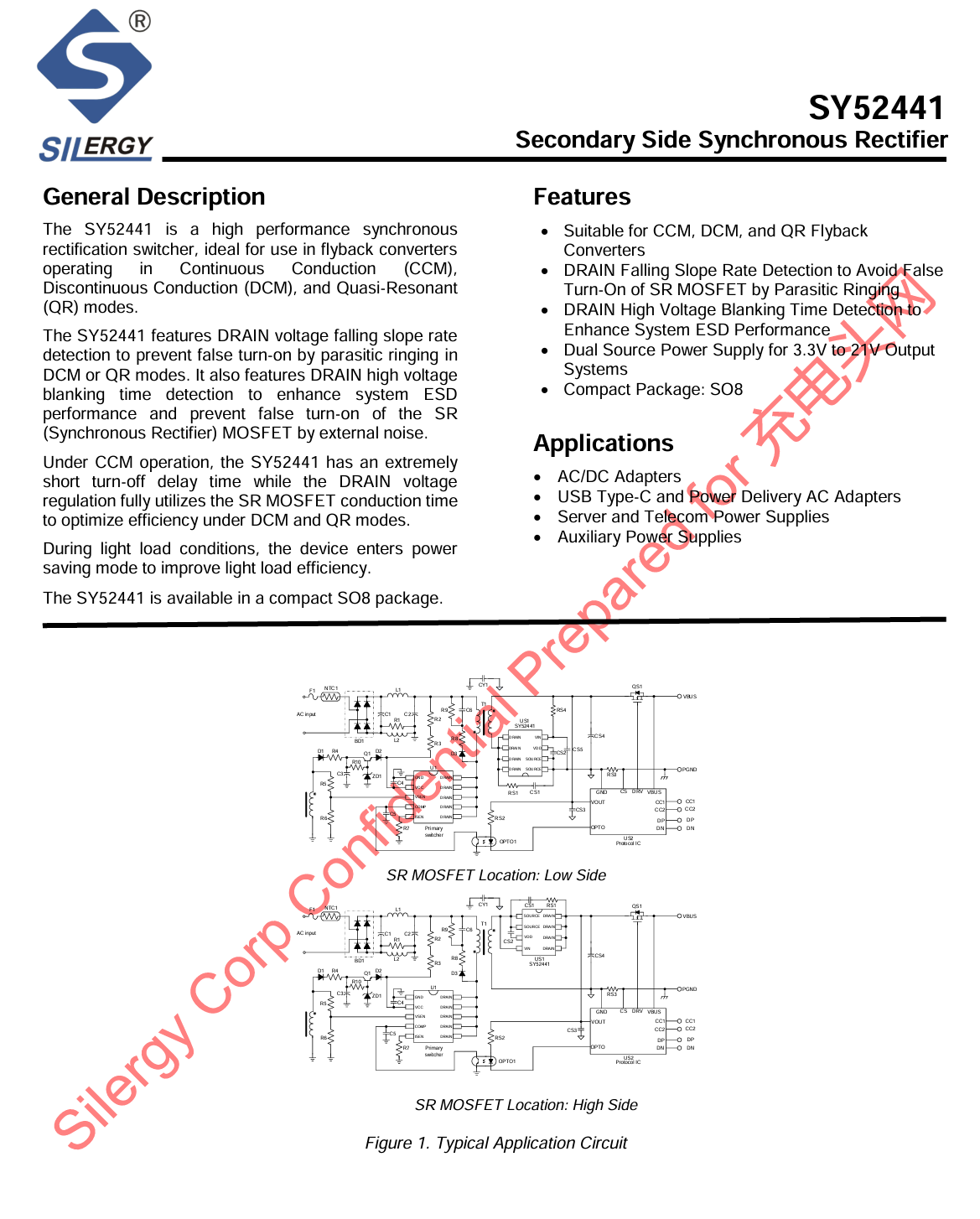
Here is the information about Silergy SY52441FAP.
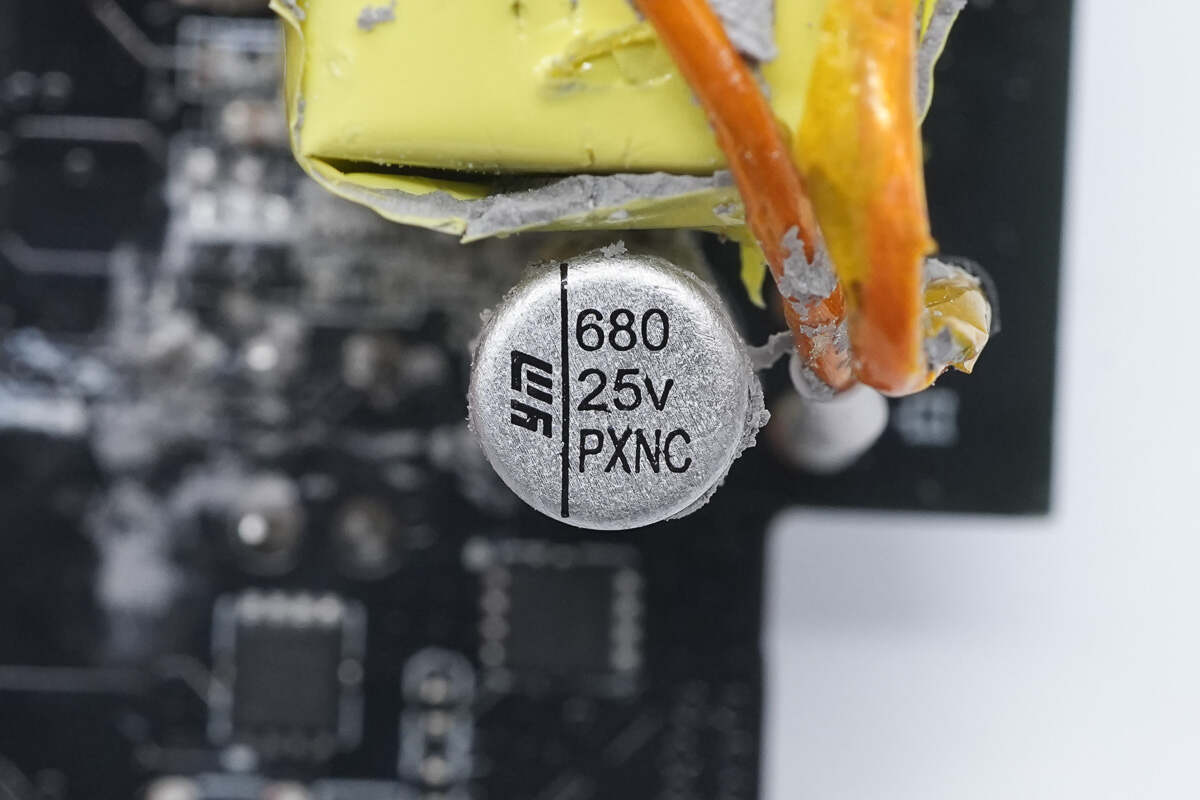
The solid capacitor is also from YMIN. It is an NPX solid-state capacitor rated at 25V 680μF.
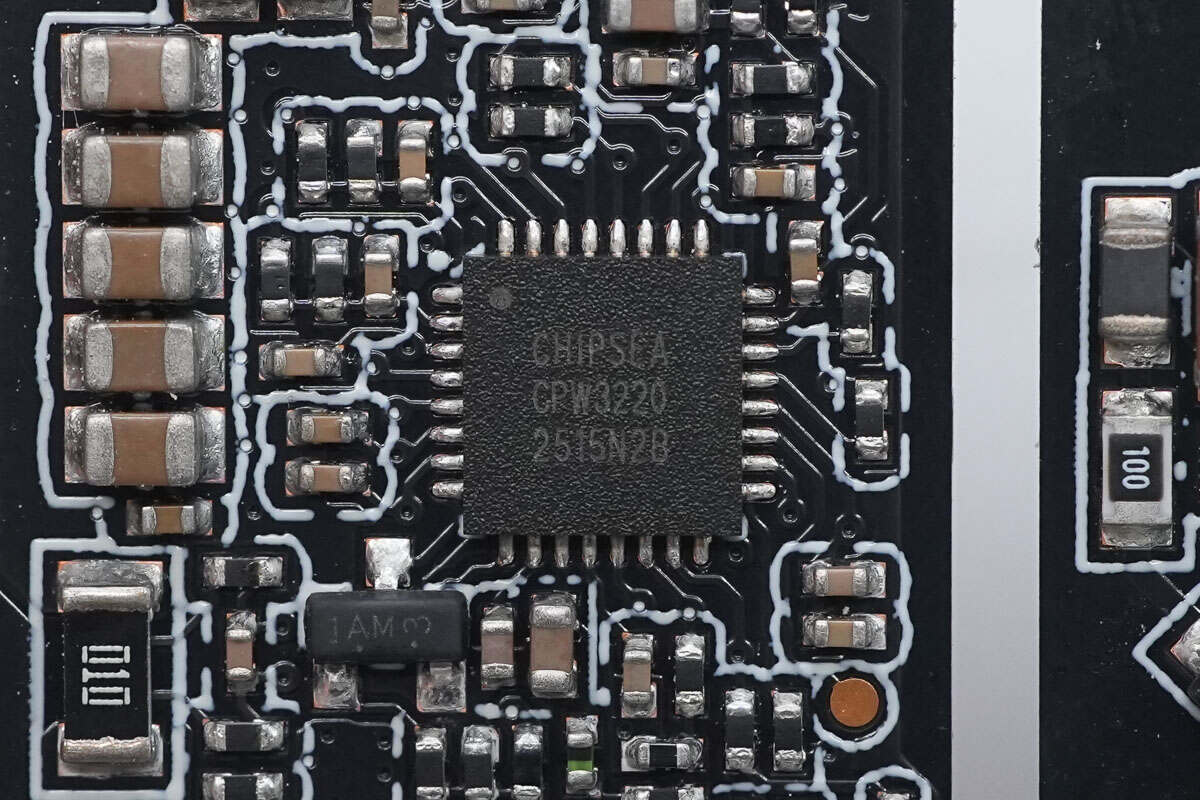
The Chipsea CPW3220 is a USB Type-C and USB PD controller designed for bidirectional battery applications. It integrates two independent Type-C CC and USB PD channels, a load switch driver, and USB BC1.2 support. Additionally, it supports multiple fast charging protocols from various smartphones to enhance charging compatibility. This chip is suitable for use in power banks, power tools, and other fields, enabling a dual Type-C port solution with a single chip.
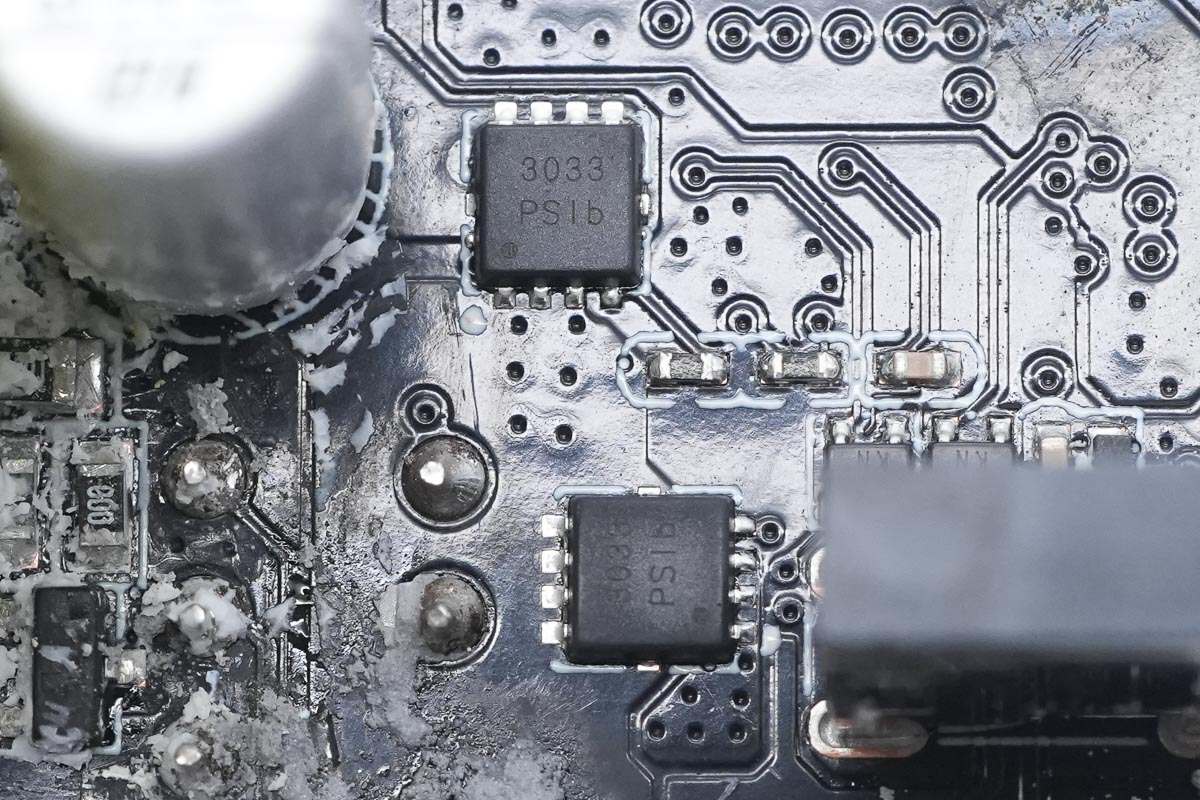
The USB-C interface VBUS MOSFET is marked with "3033."
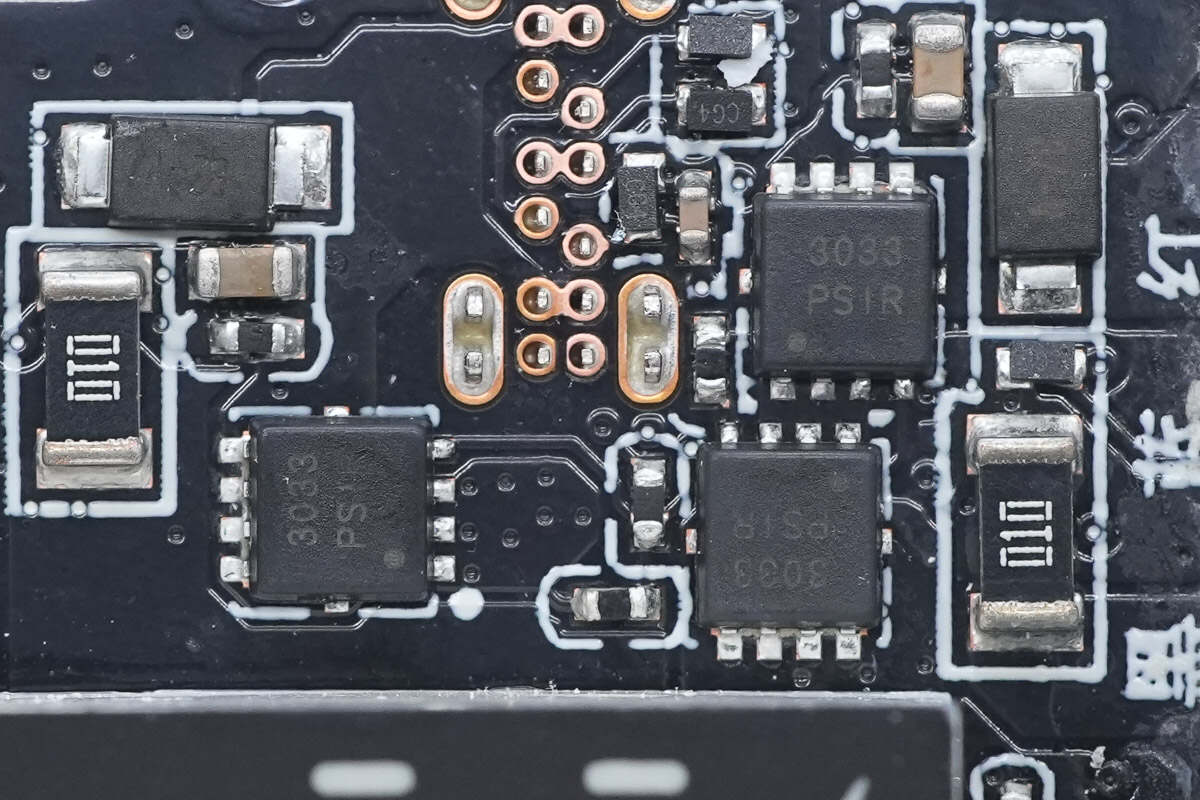
The VBUS MOSFETs used for both the USB-C integrated cable and charging switching have the same part number.
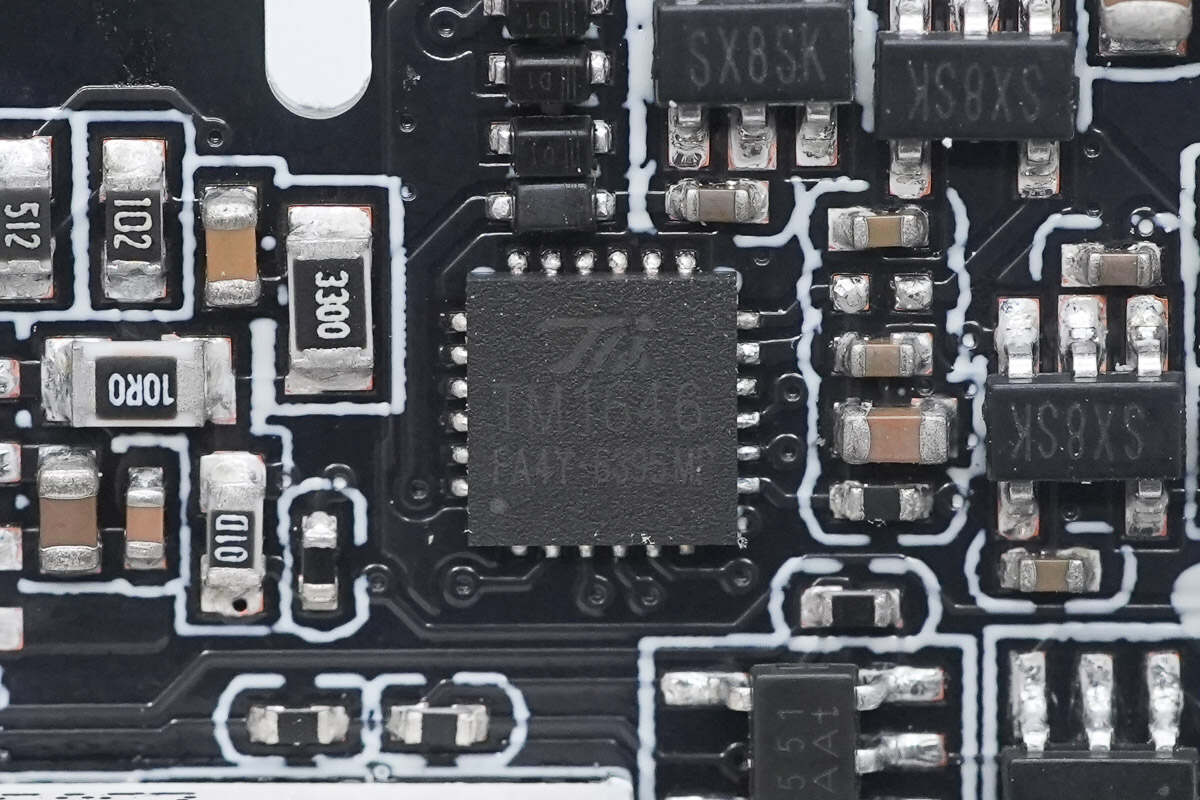
The TM TM1646 is used for driving the display.
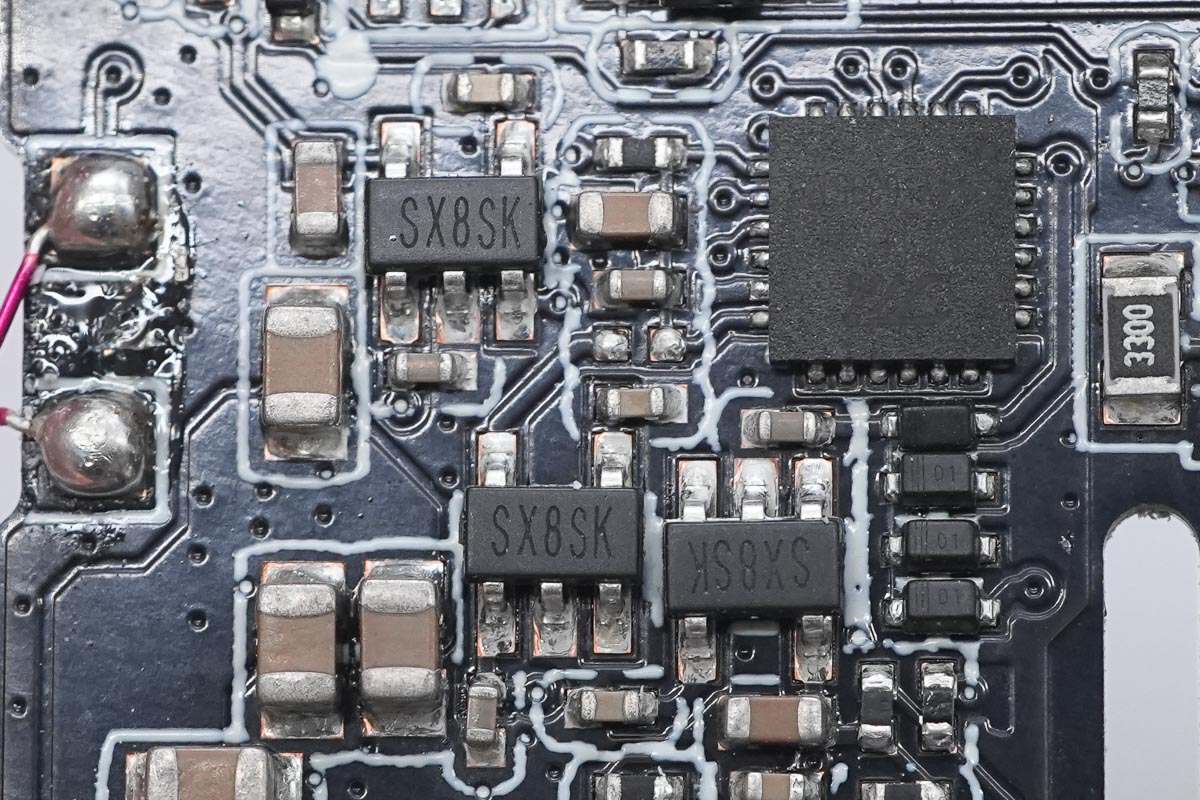
There are three voltage regulator chips marked with SX8SK.
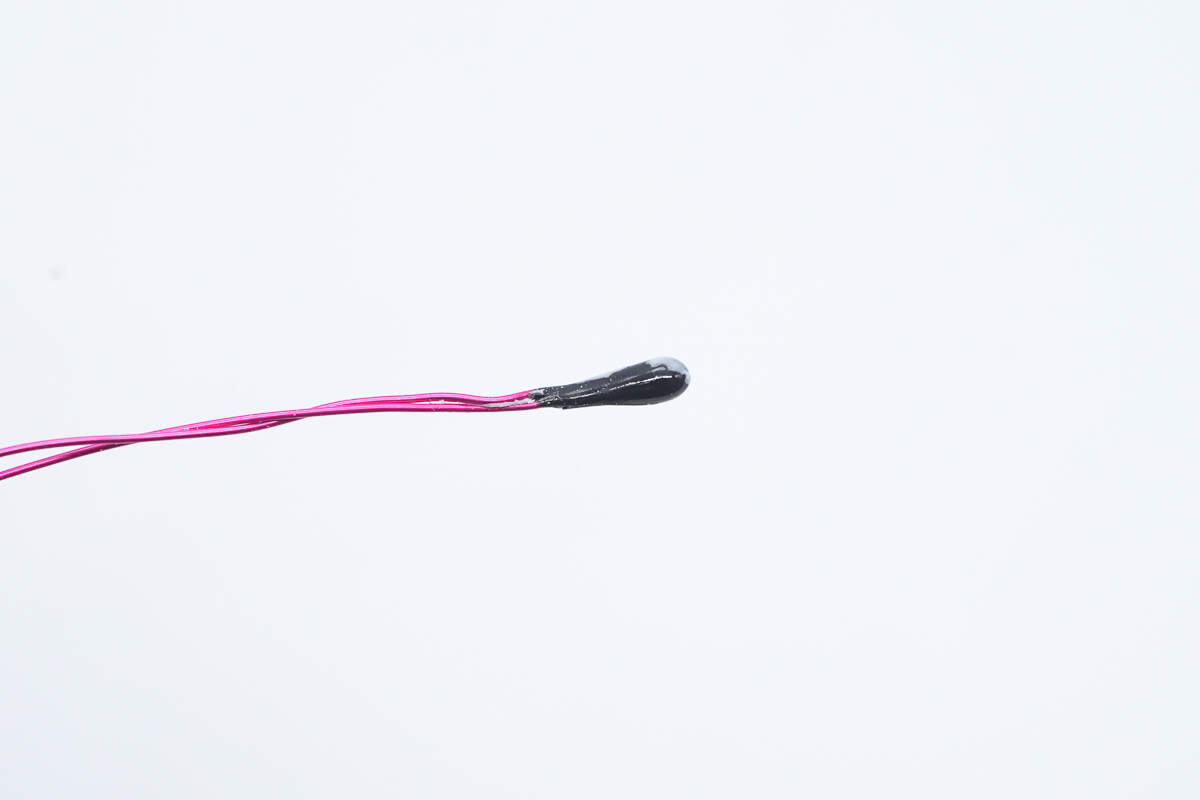
Close-up of the thermistor.
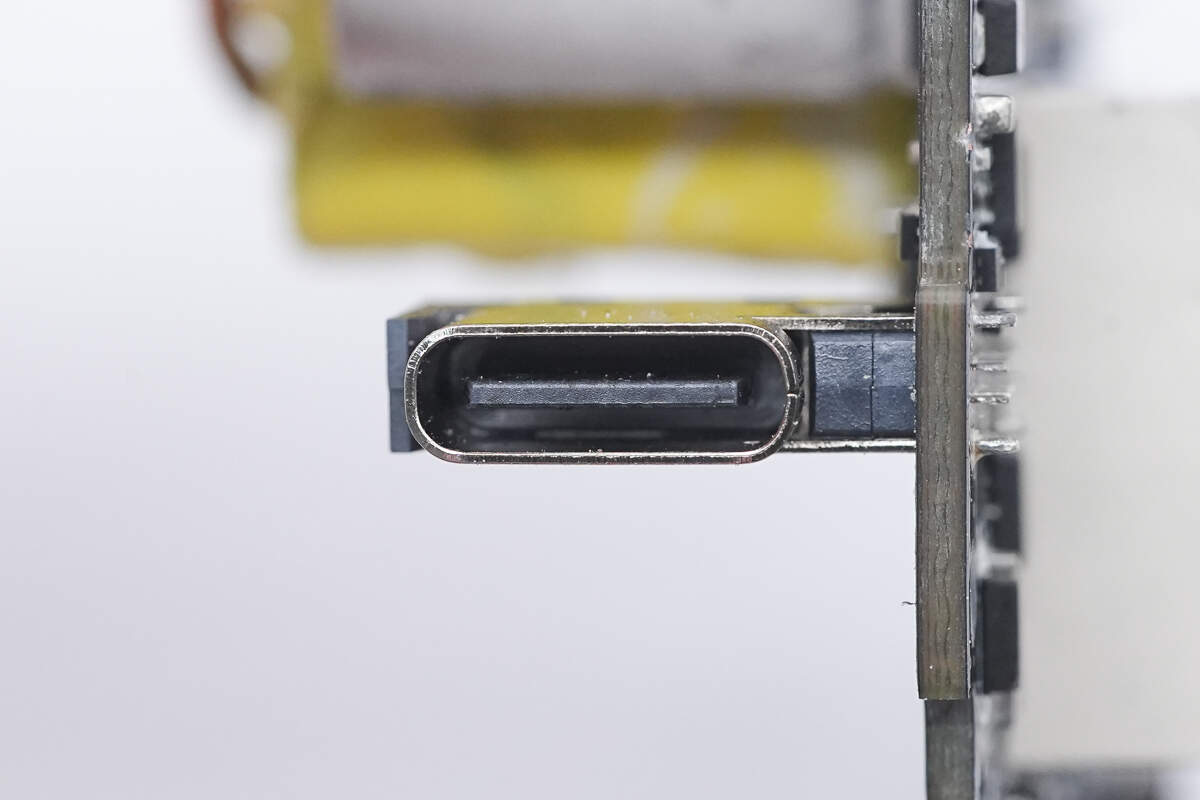
Close-up of the USB-C socket.
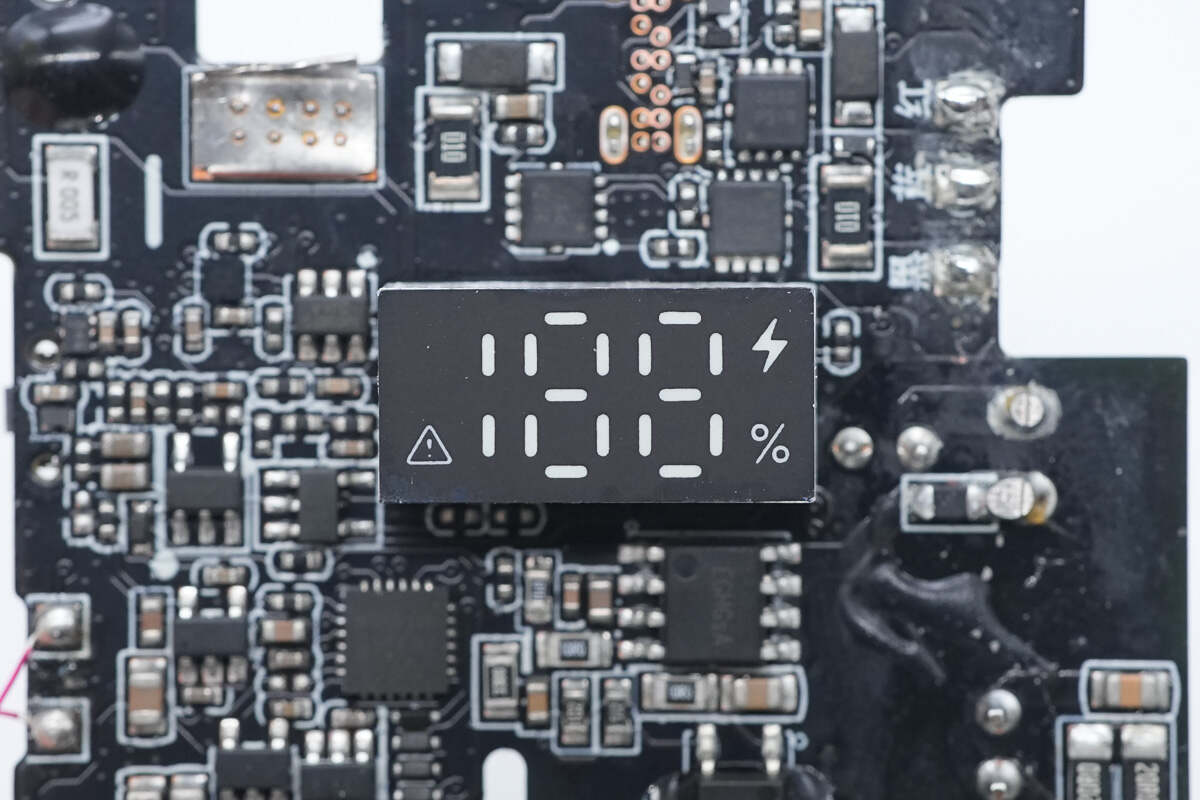
Close-up of the digital display.
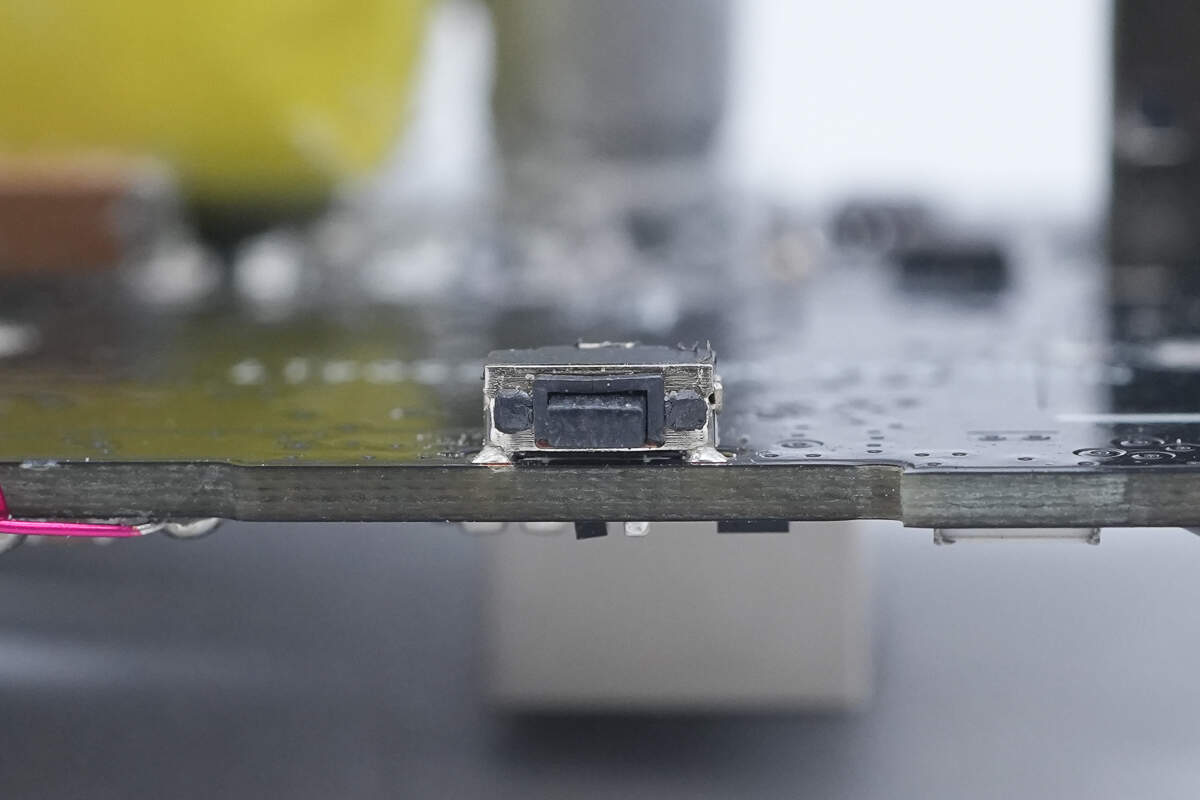
Close-up of the SMD power button.
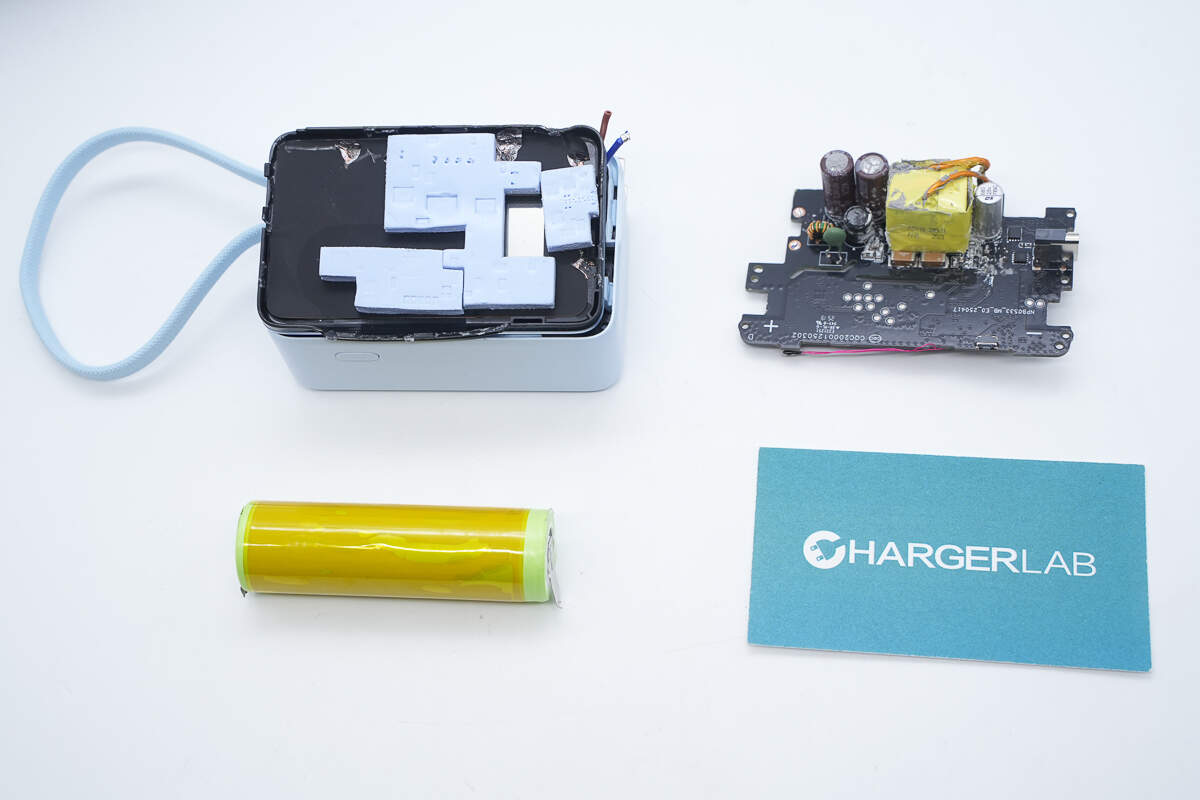
Well, those are all components of the Xiaomi 33W 5000mAh 3-in-1 Power Bank.
Summary of ChargerLAB
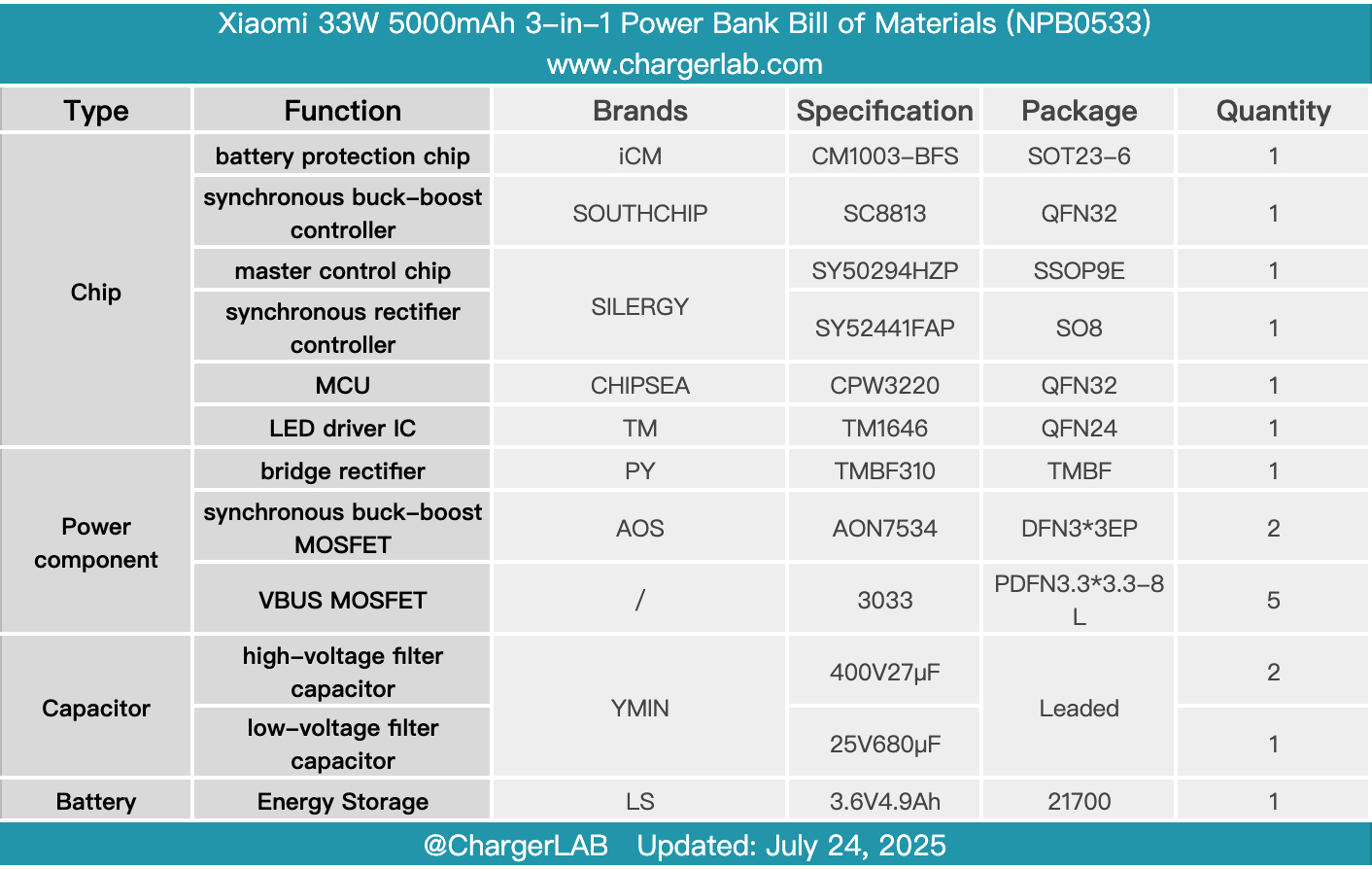
Here is the component list of the Xiaomi 33W 5000mAh 3-in-1 Power Bank for your convenience.
Despite integrating the charger module, the body remains compact. With the integrated cable doubling as a strap, plus a digital display and USB-C port, it’s both portable and practical. Equipped with a 5000mAh battery cell, it supports 33W Xiaomi fast charging and 30W PD fast charging.
After taking it apart, we found that it uses an LS 21700 lithium battery cell, which is CCC certified. It features the iCM CM1003-BFS battery protection solution and uses the SouthChip SC8813 buck-boost controller to manage battery charging and discharging. The charger section adopts a highly integrated power solution consisting of Silergy SY50294HZP and SY52441FAP, while the Chipsea CPW3220 MCU handles port and integrated cable output control. The overall component selection is reliable.
Related Articles:
1. Teardown of 90W GaN Charger for Xiaomi 15 Pro (MDY-14-EC)
2. Teardown of CUKTECH 67W CP6 GaN Charger (AD653W)
3. Teardown of Bitmain 1600W Power Supply (APW3++-12-1600-A3)

